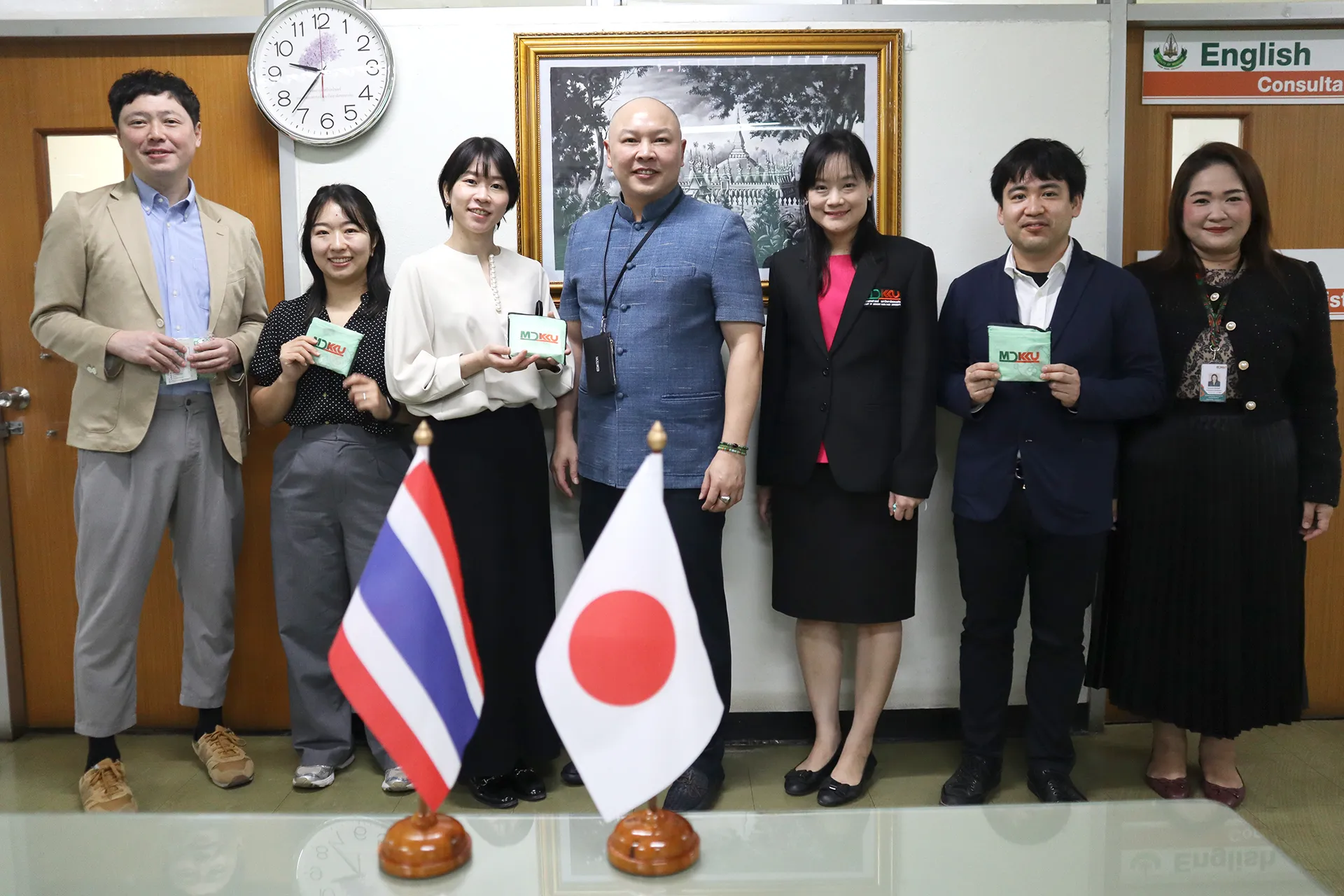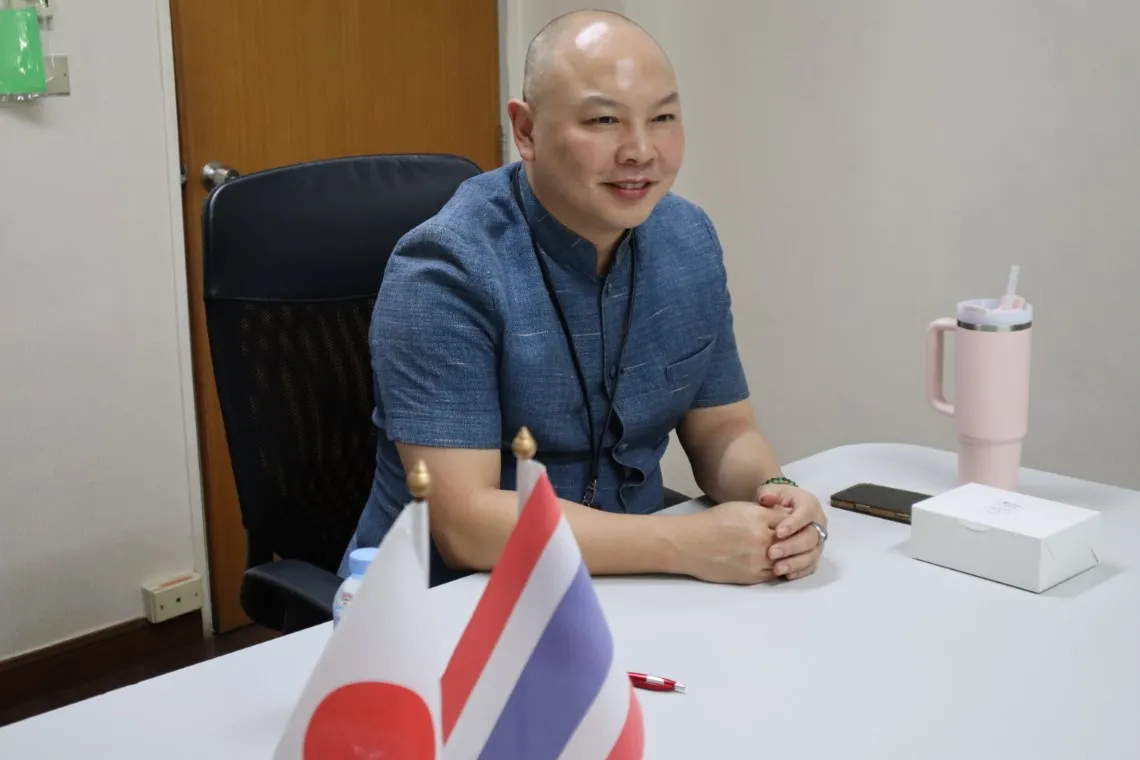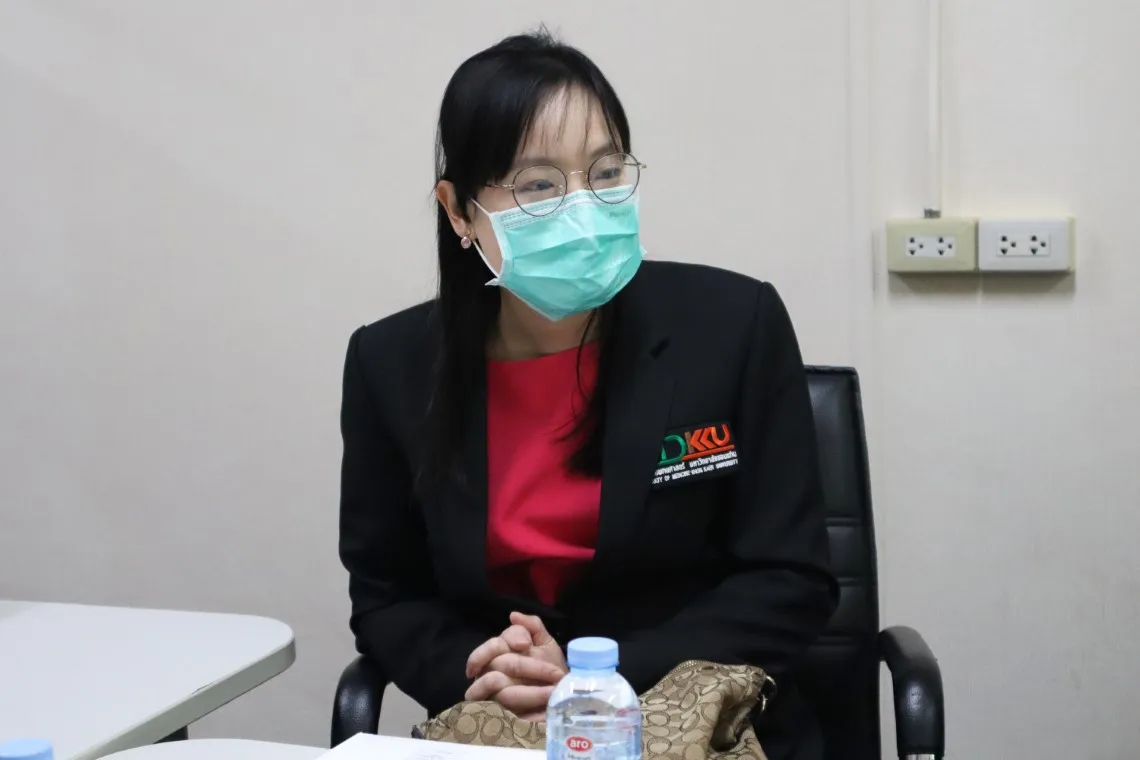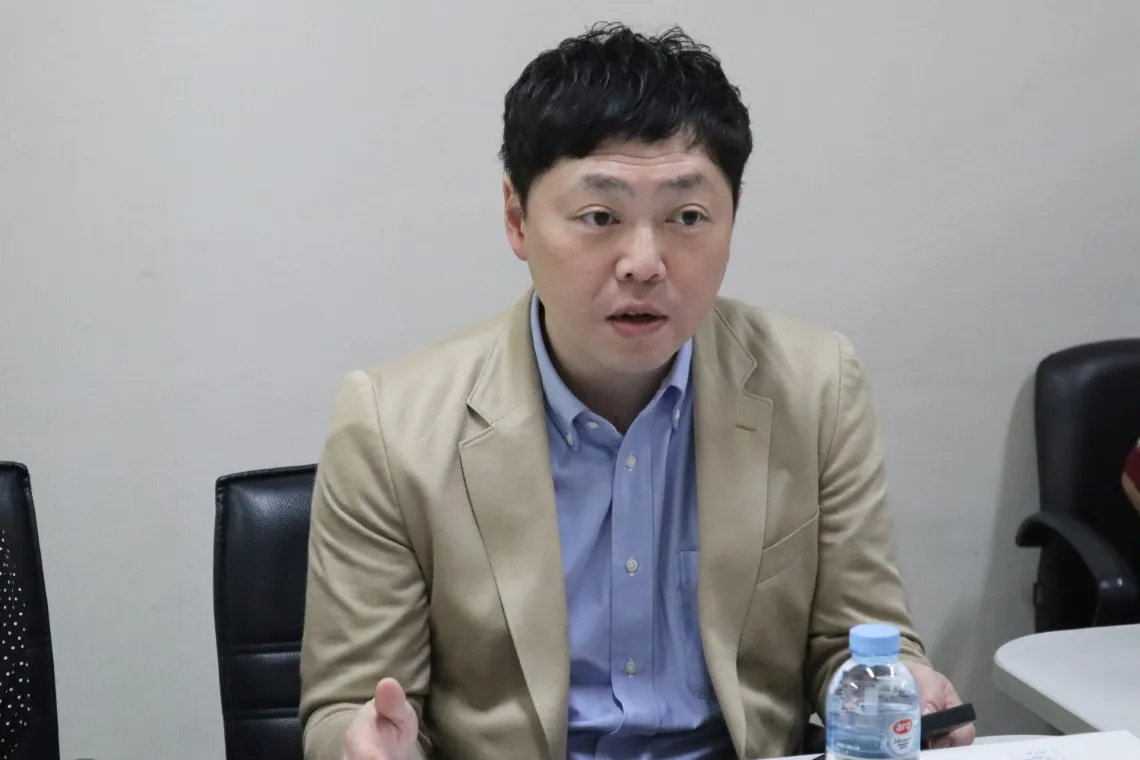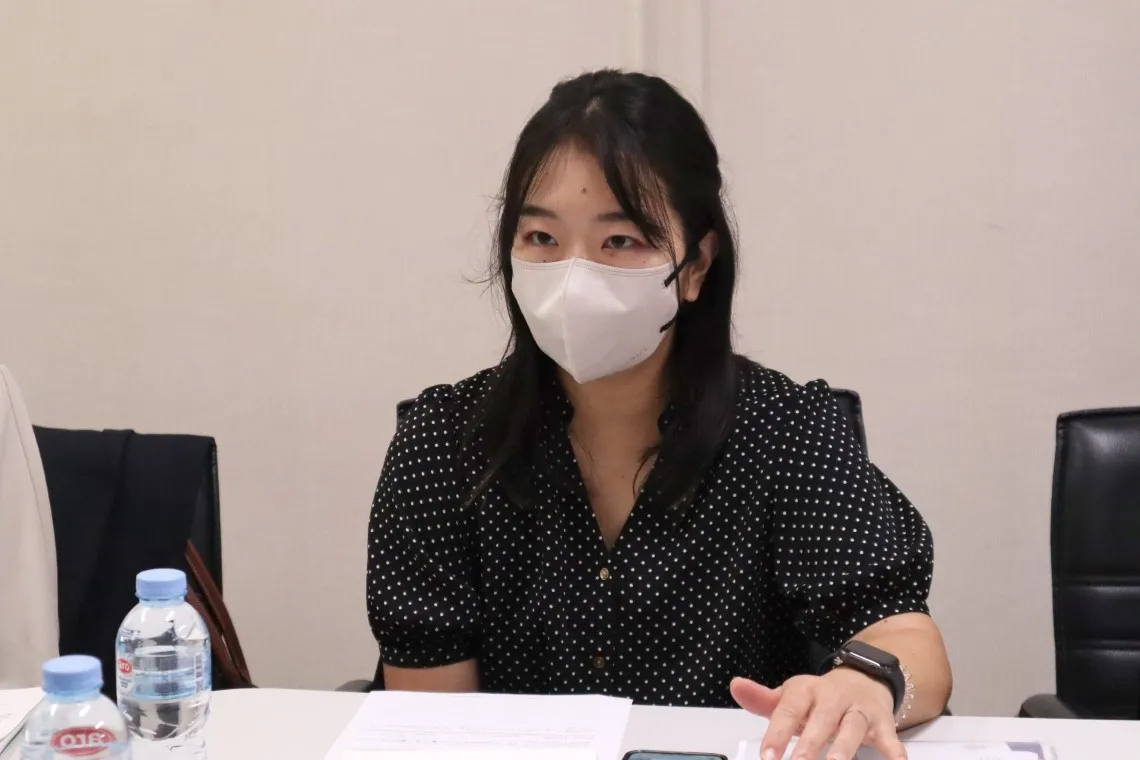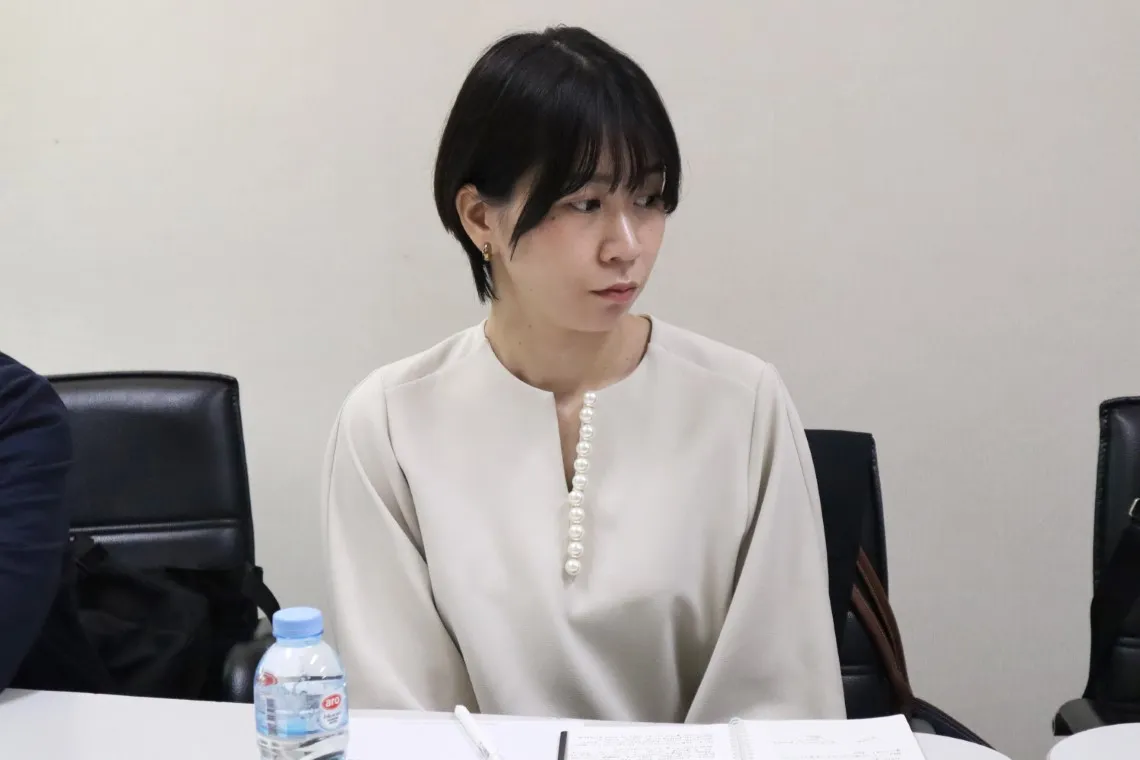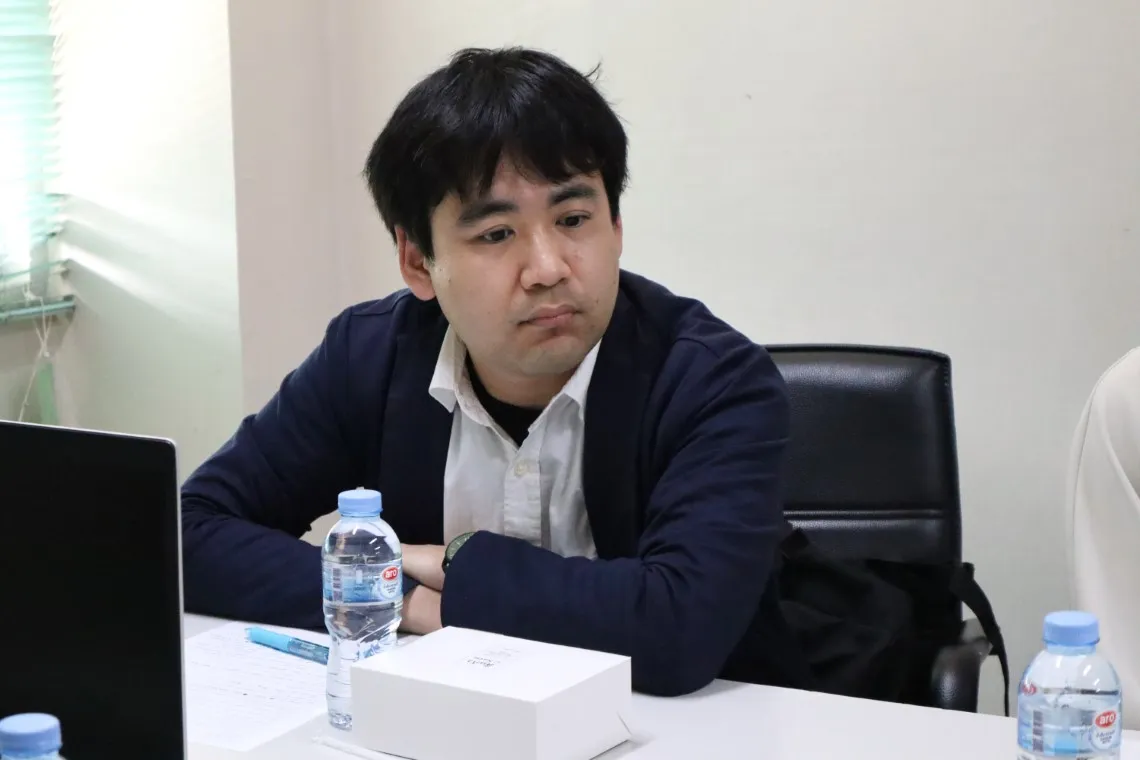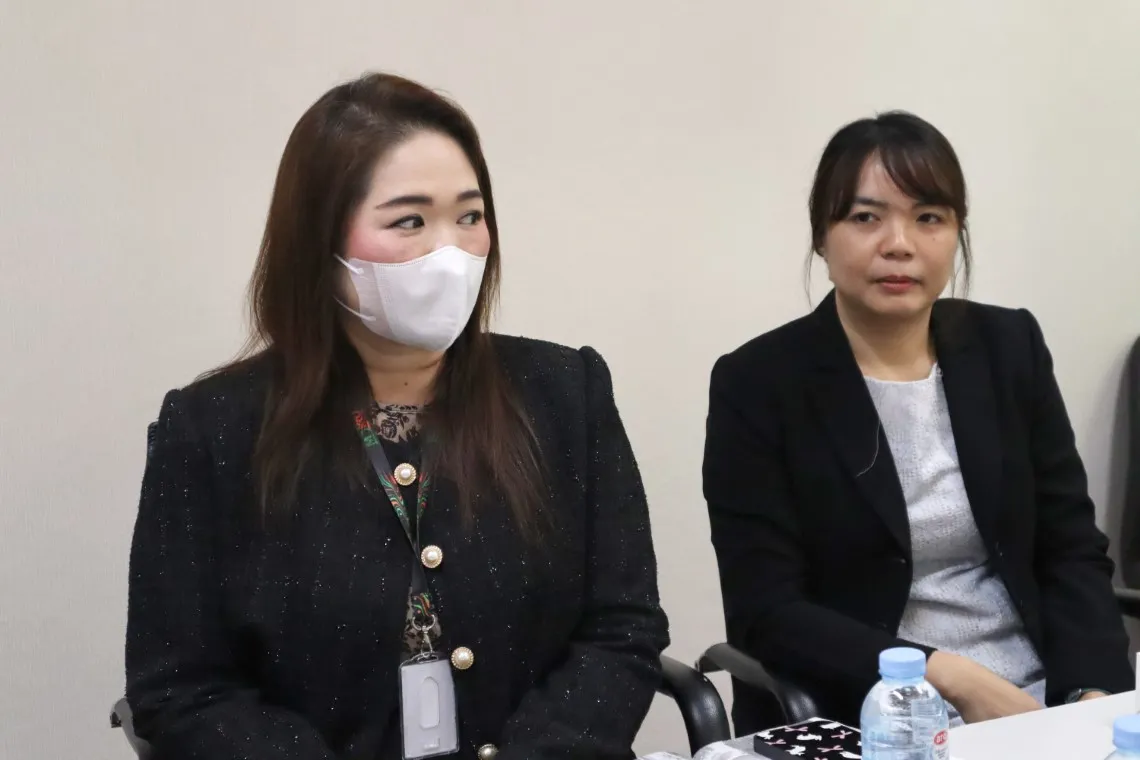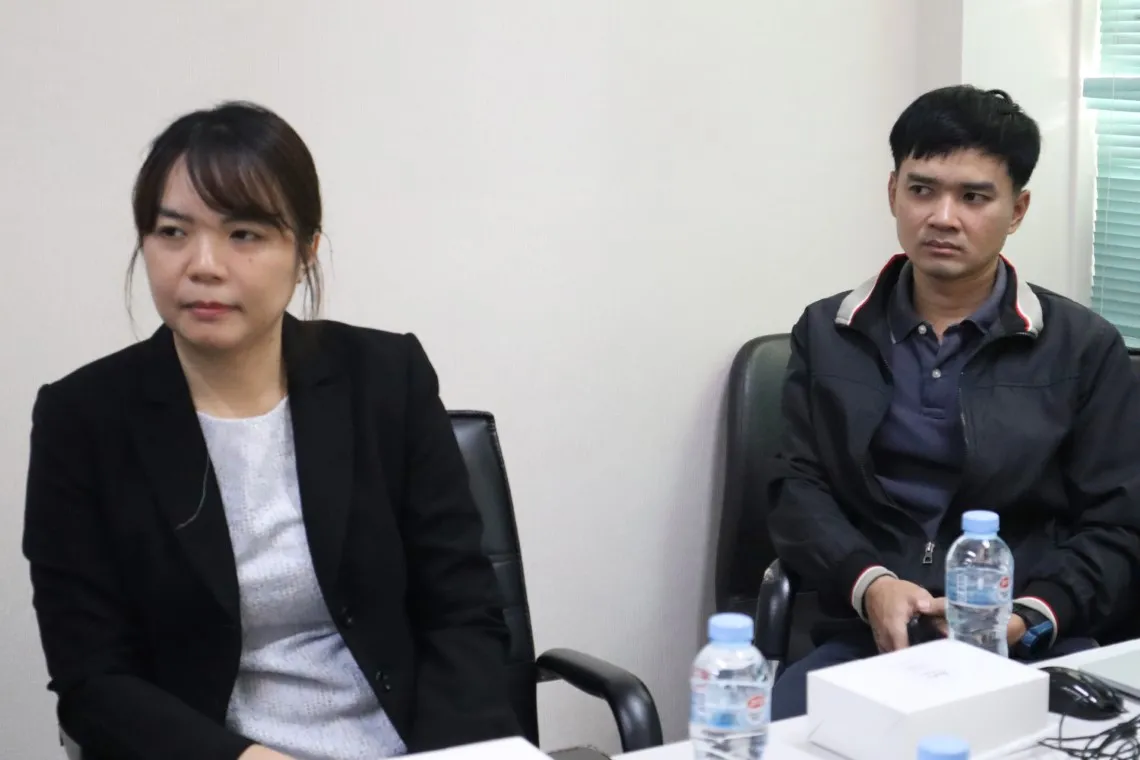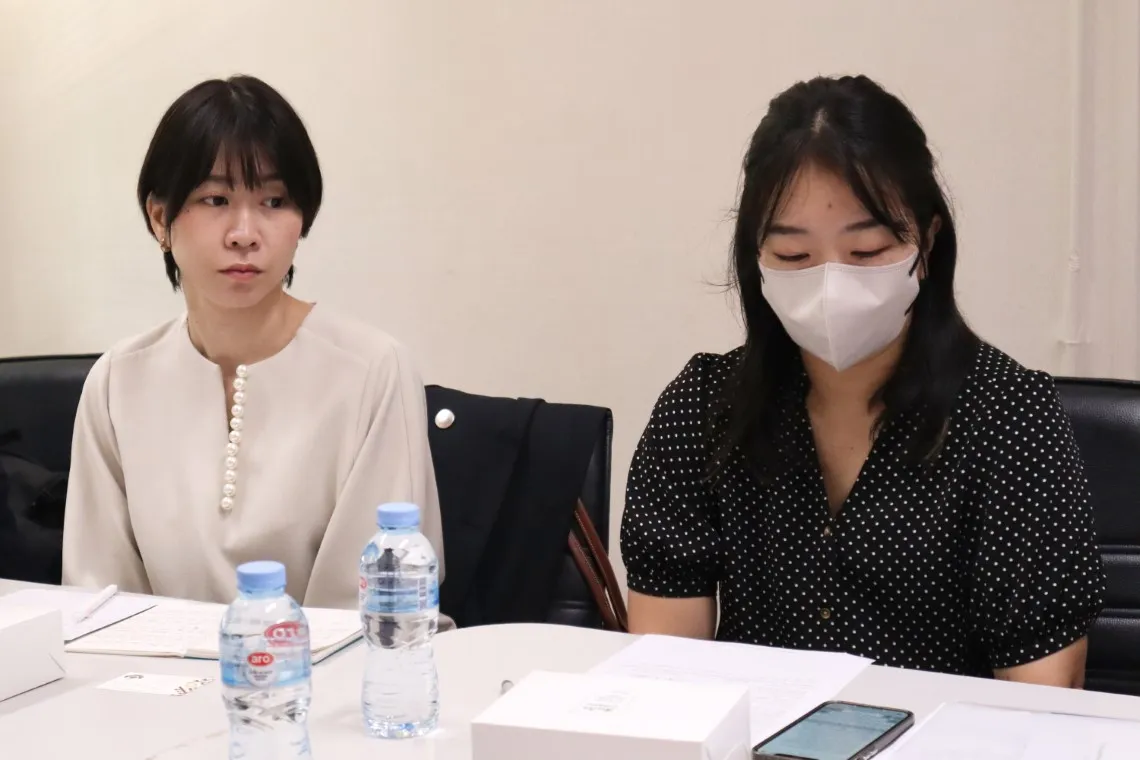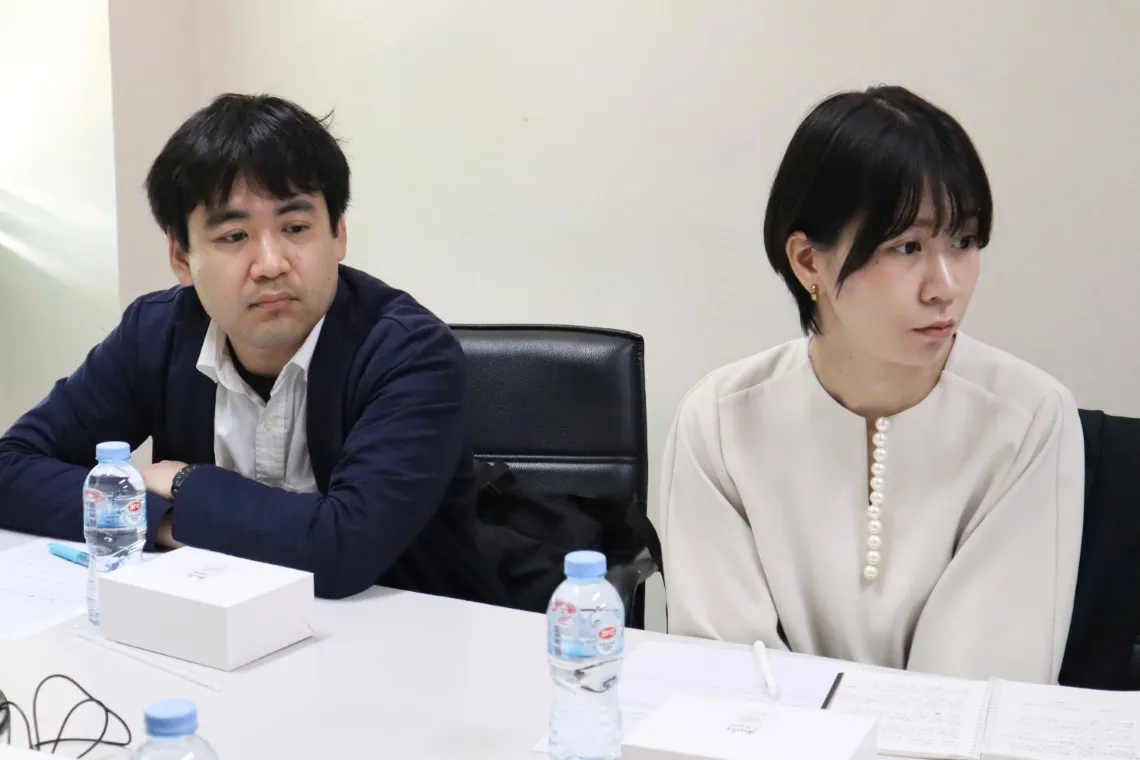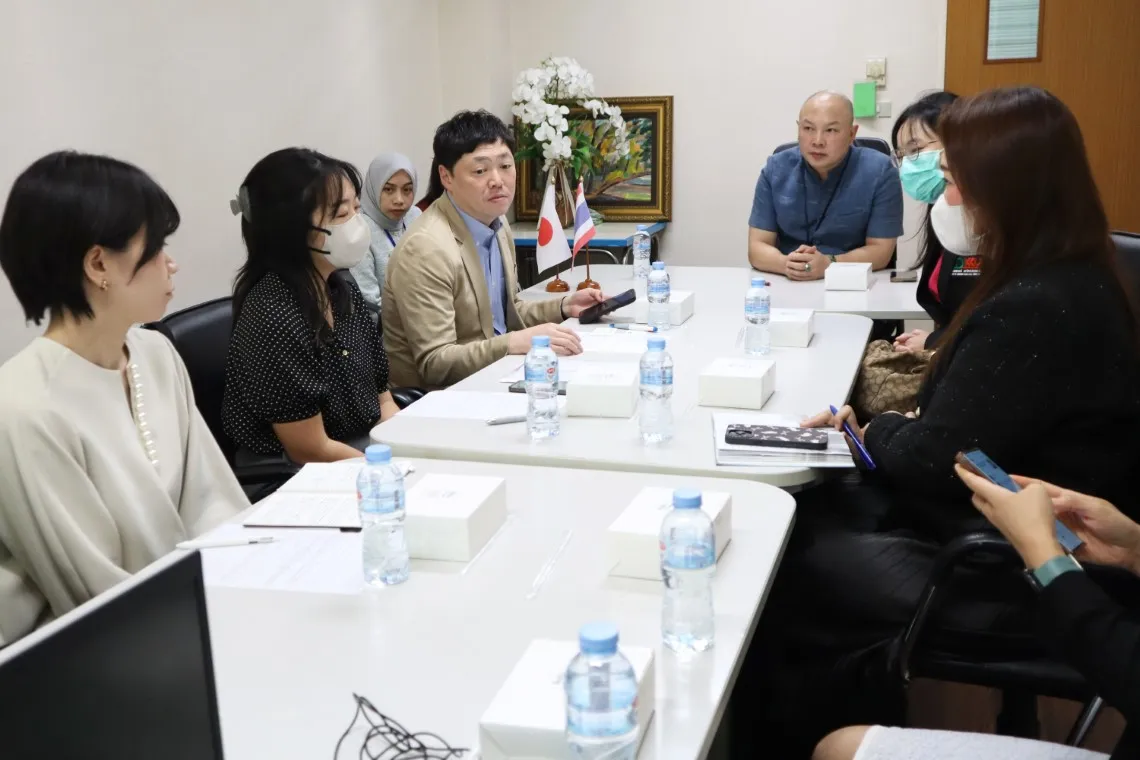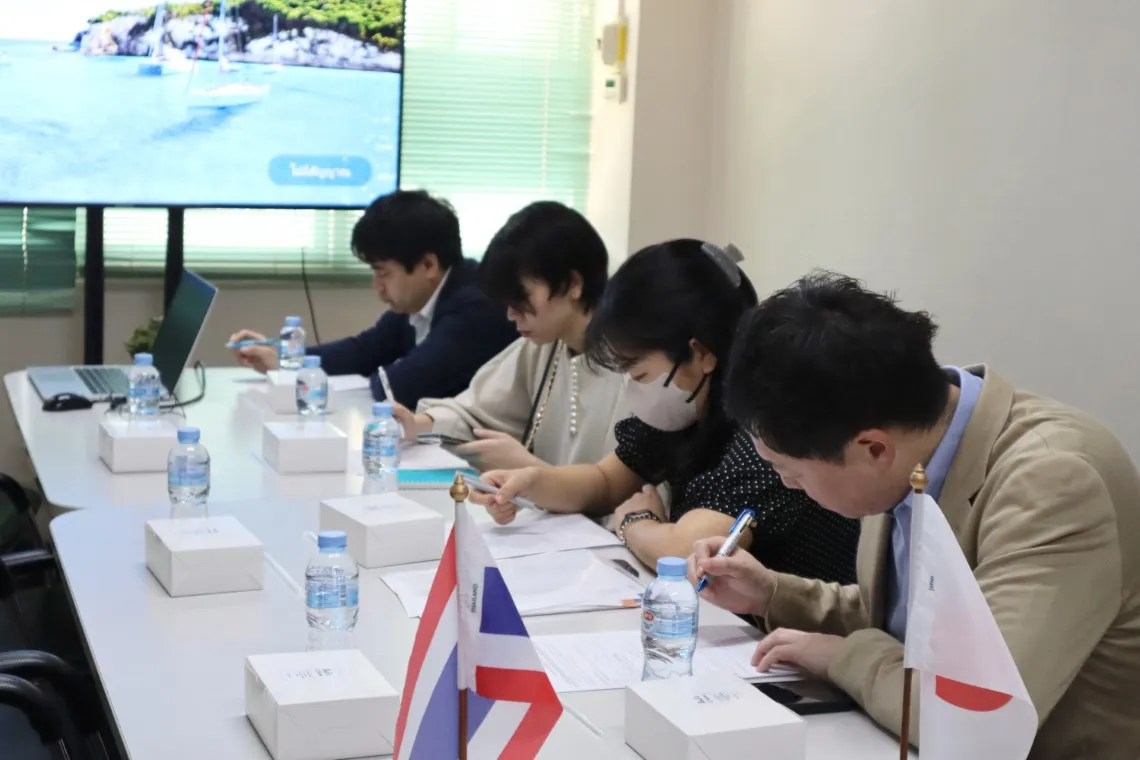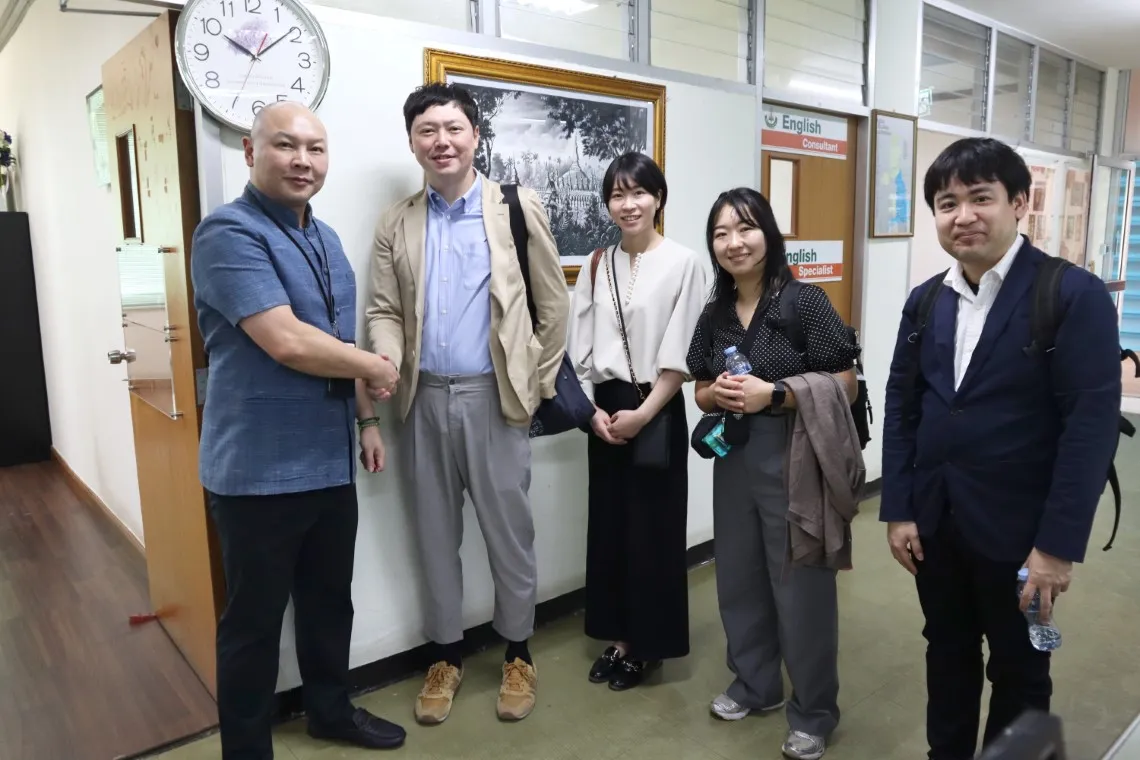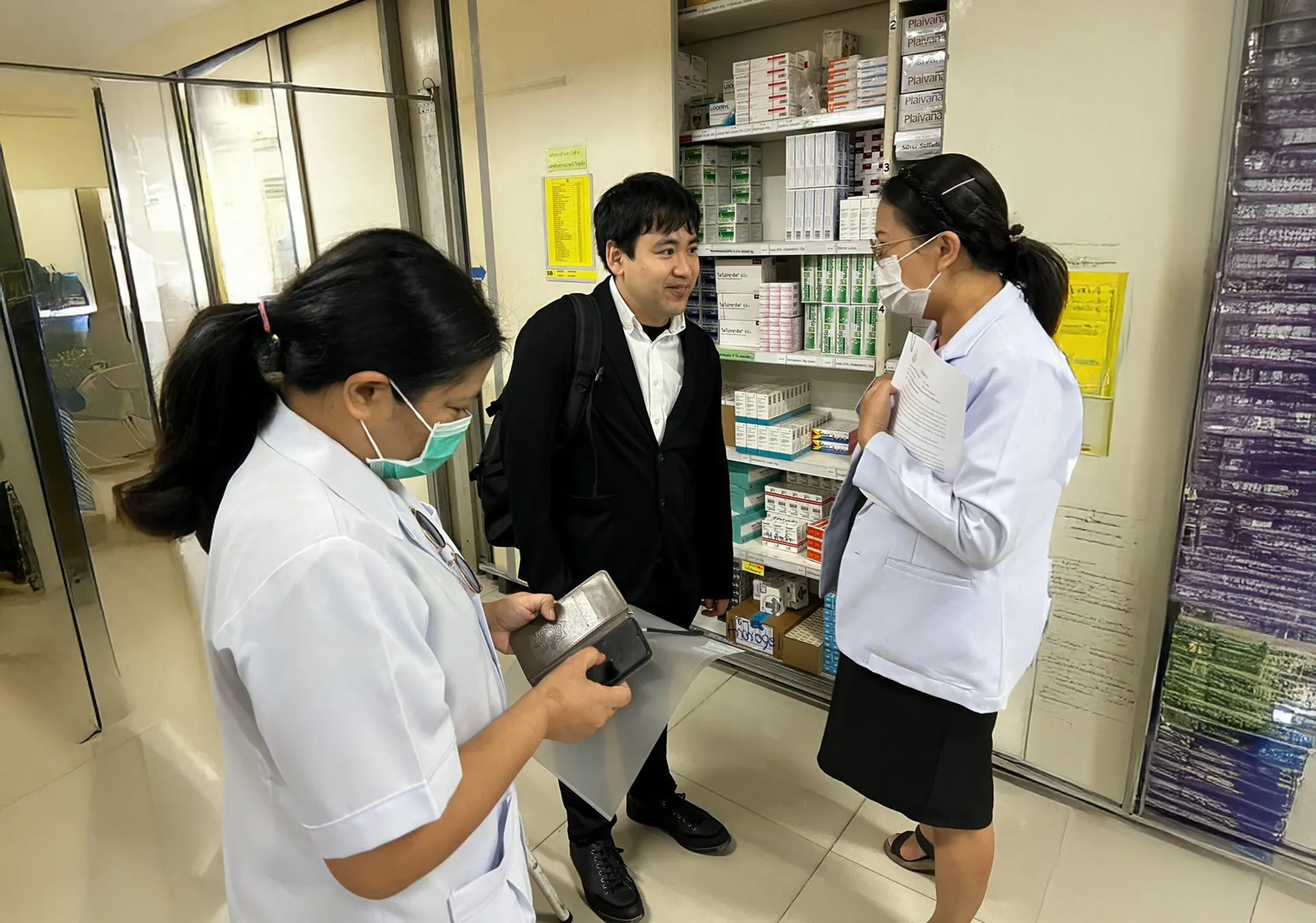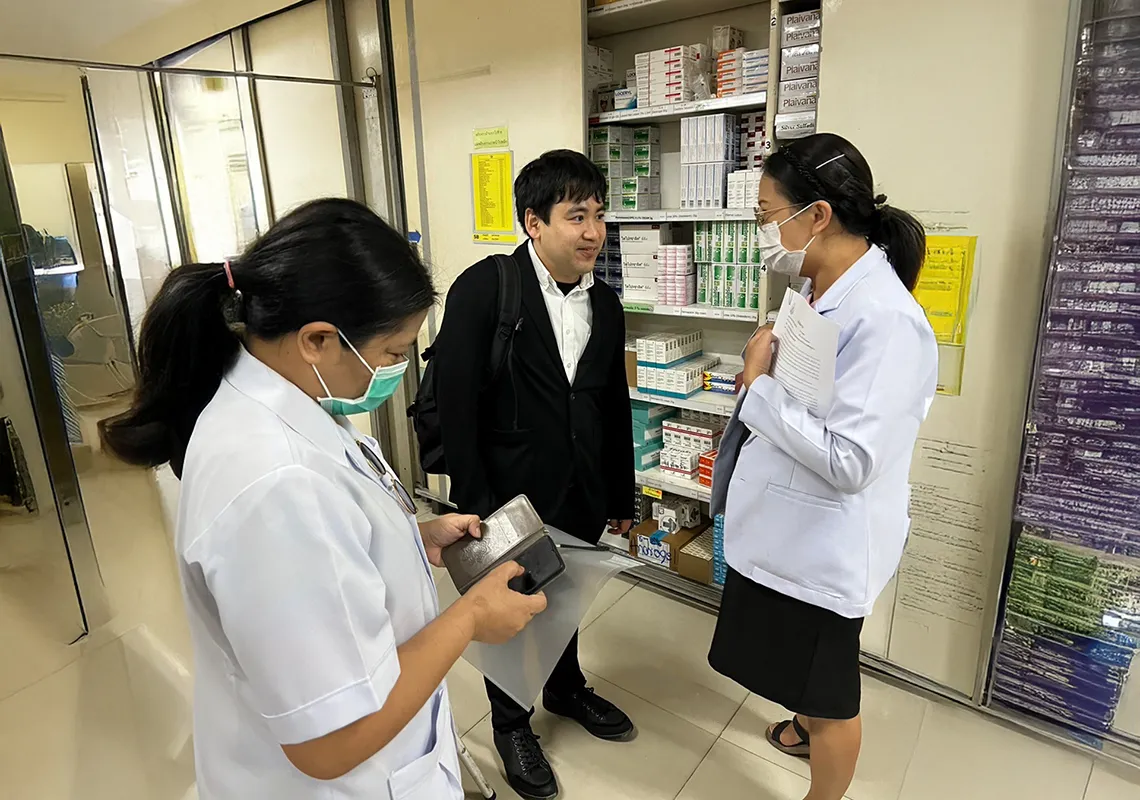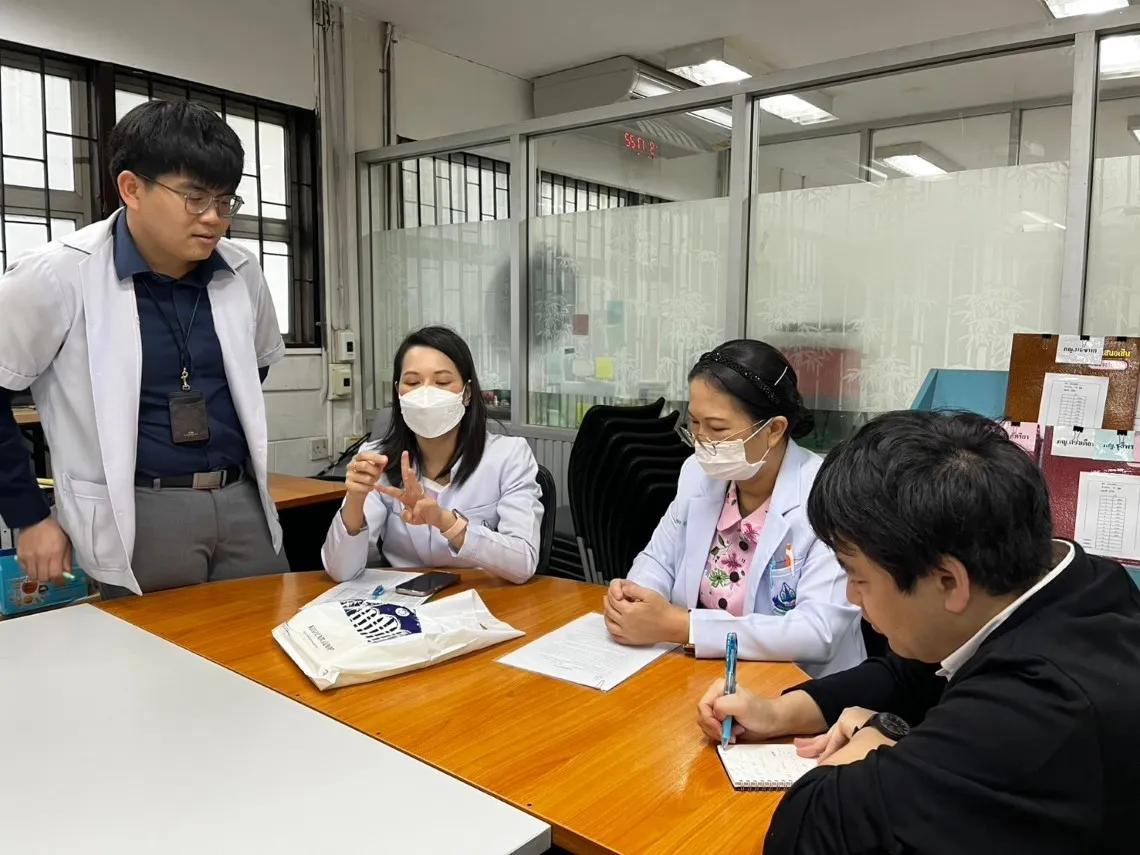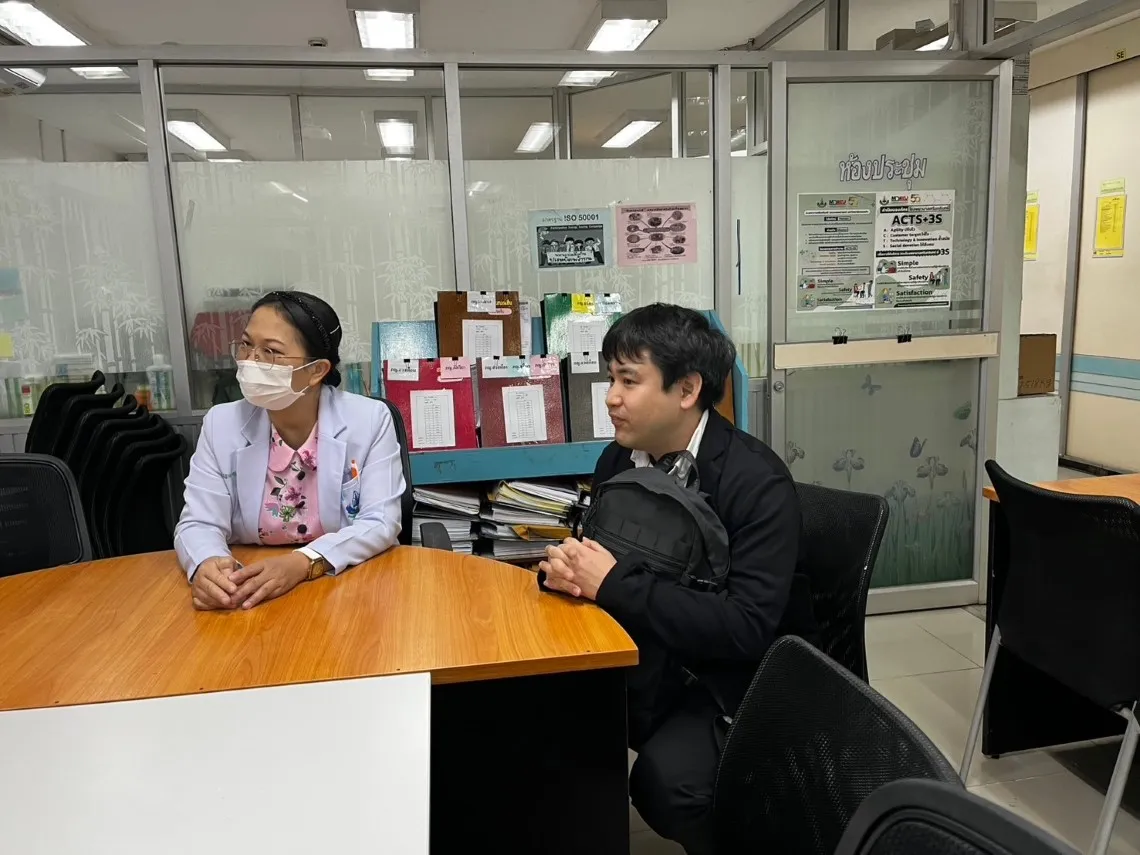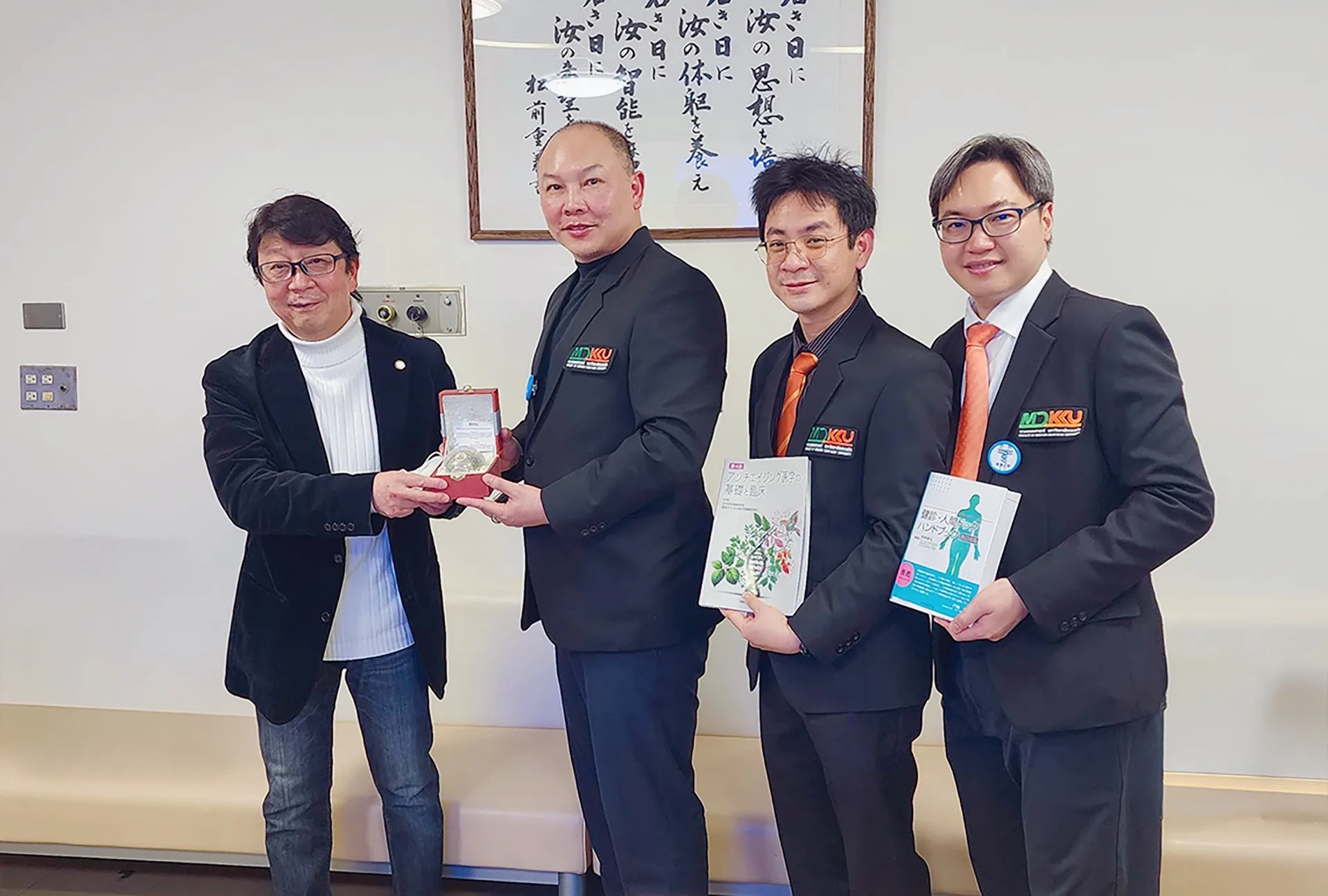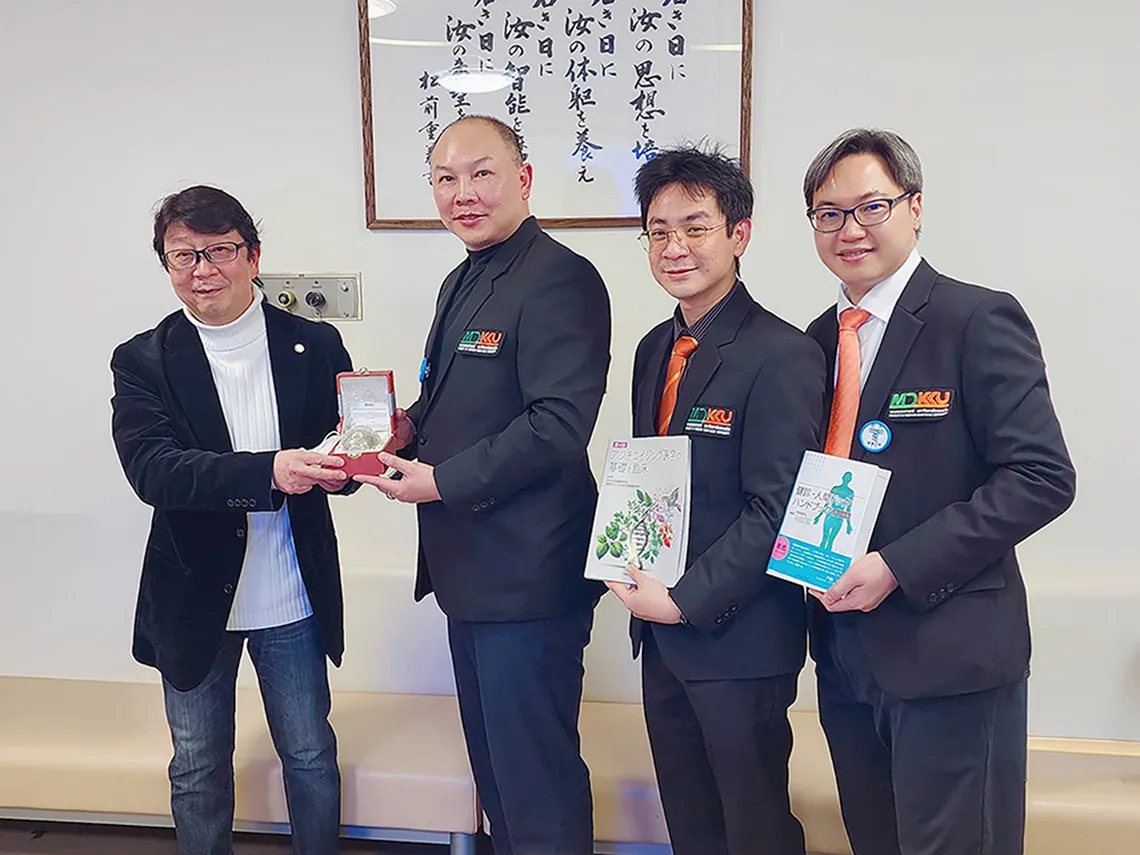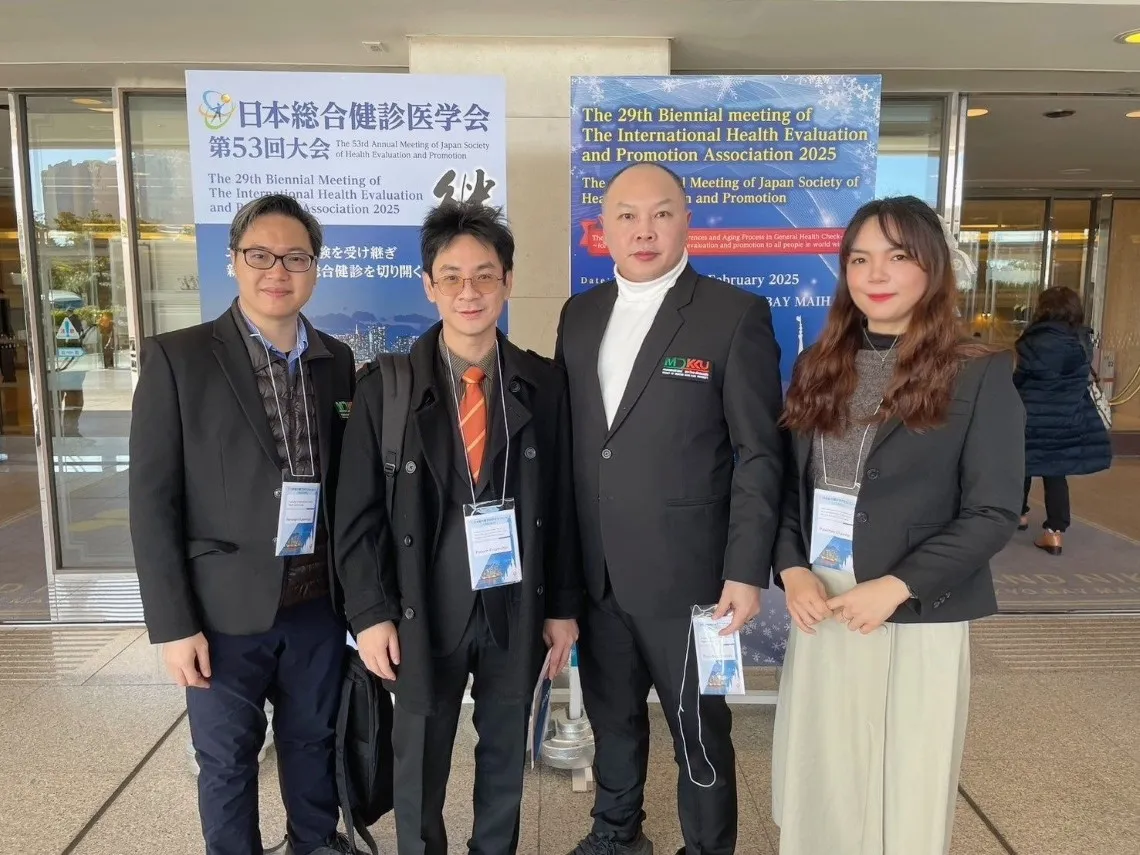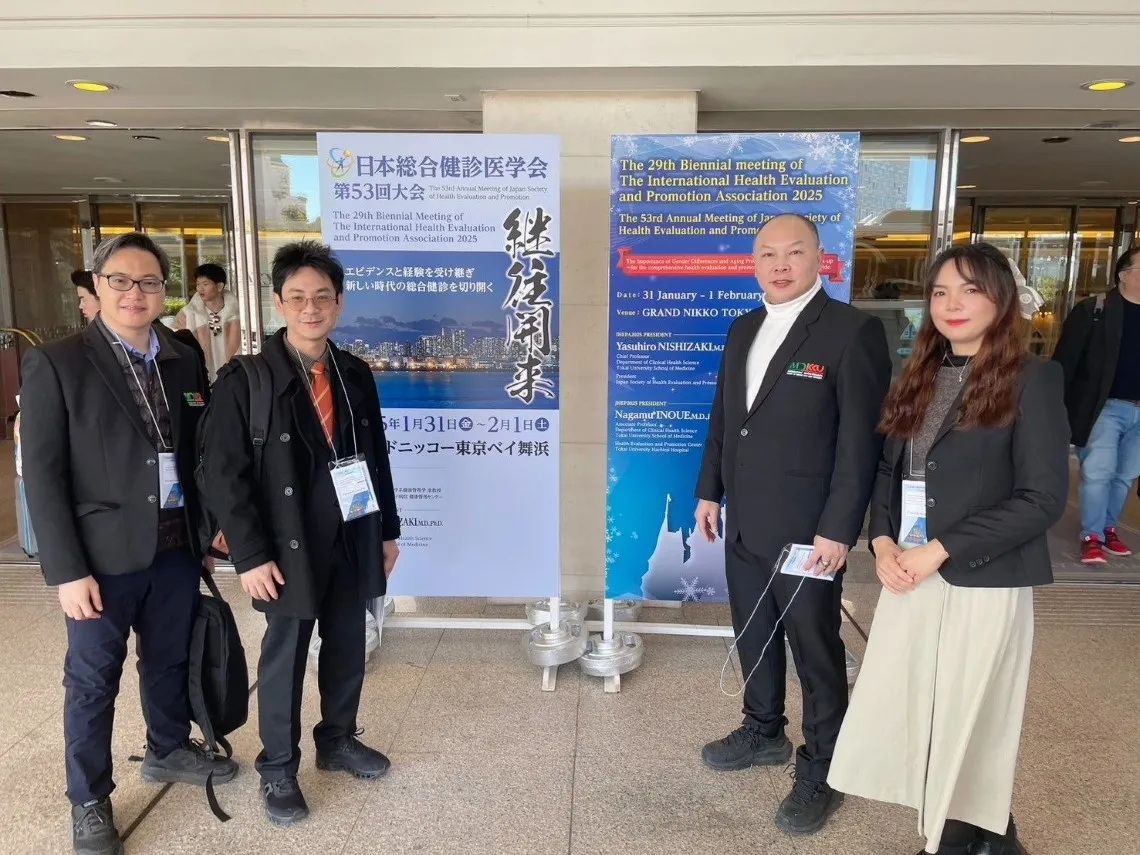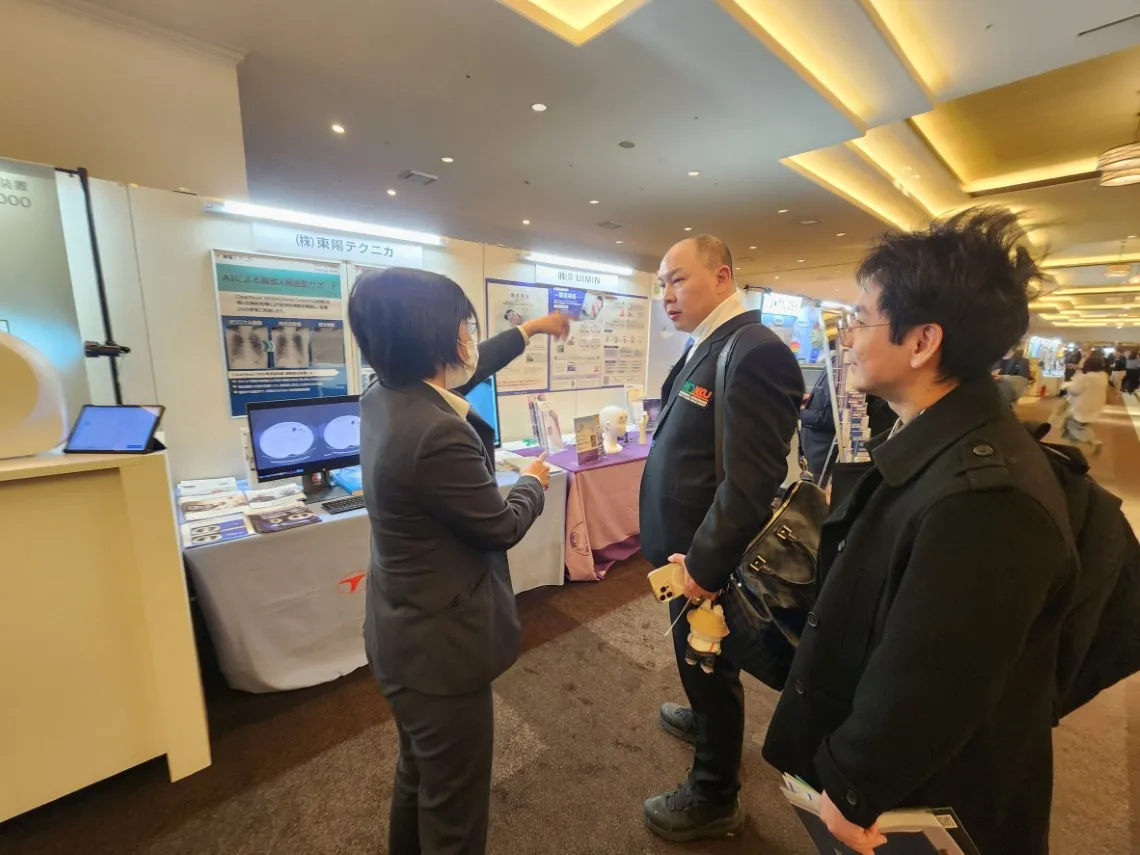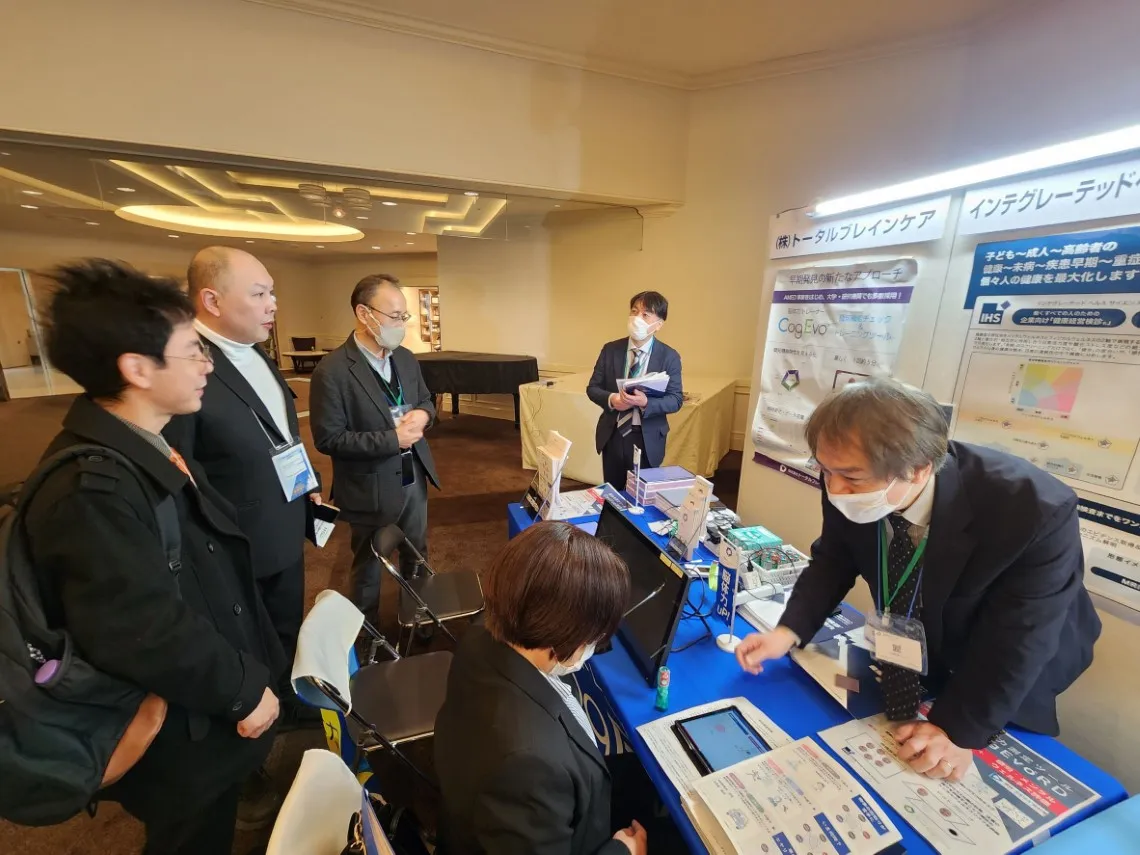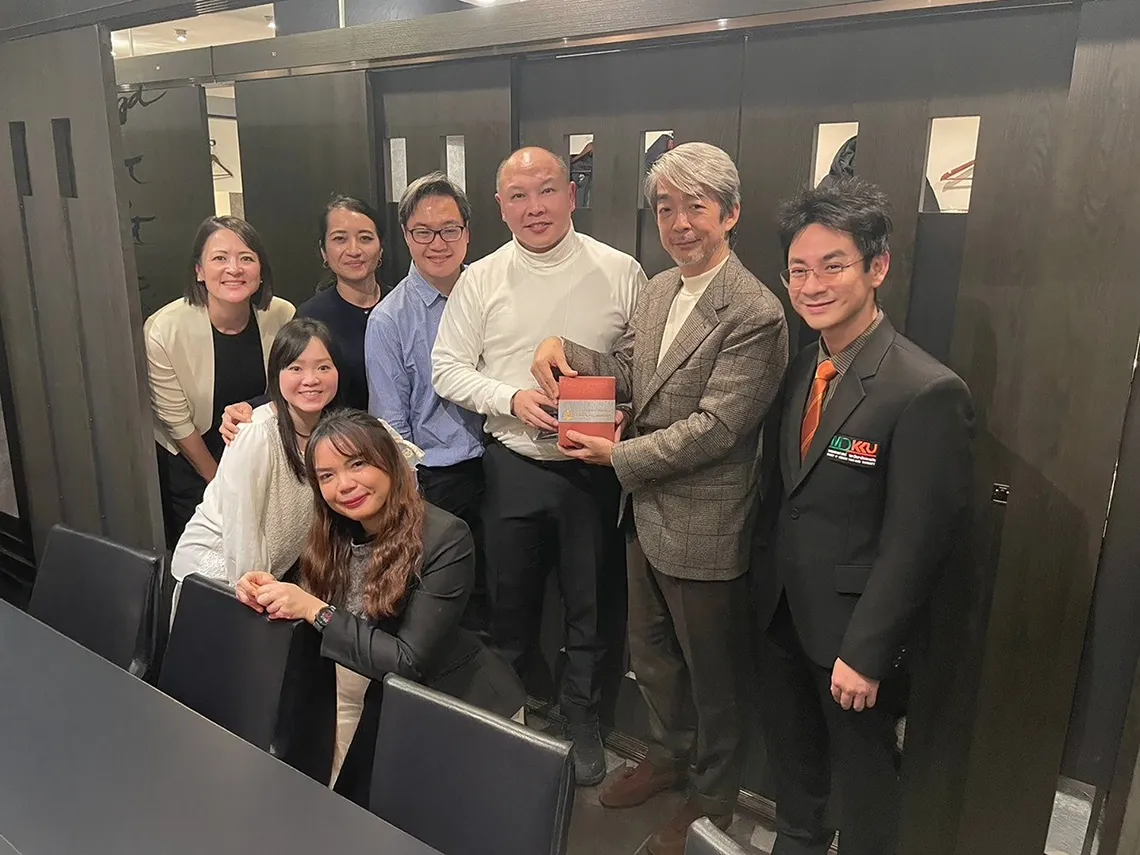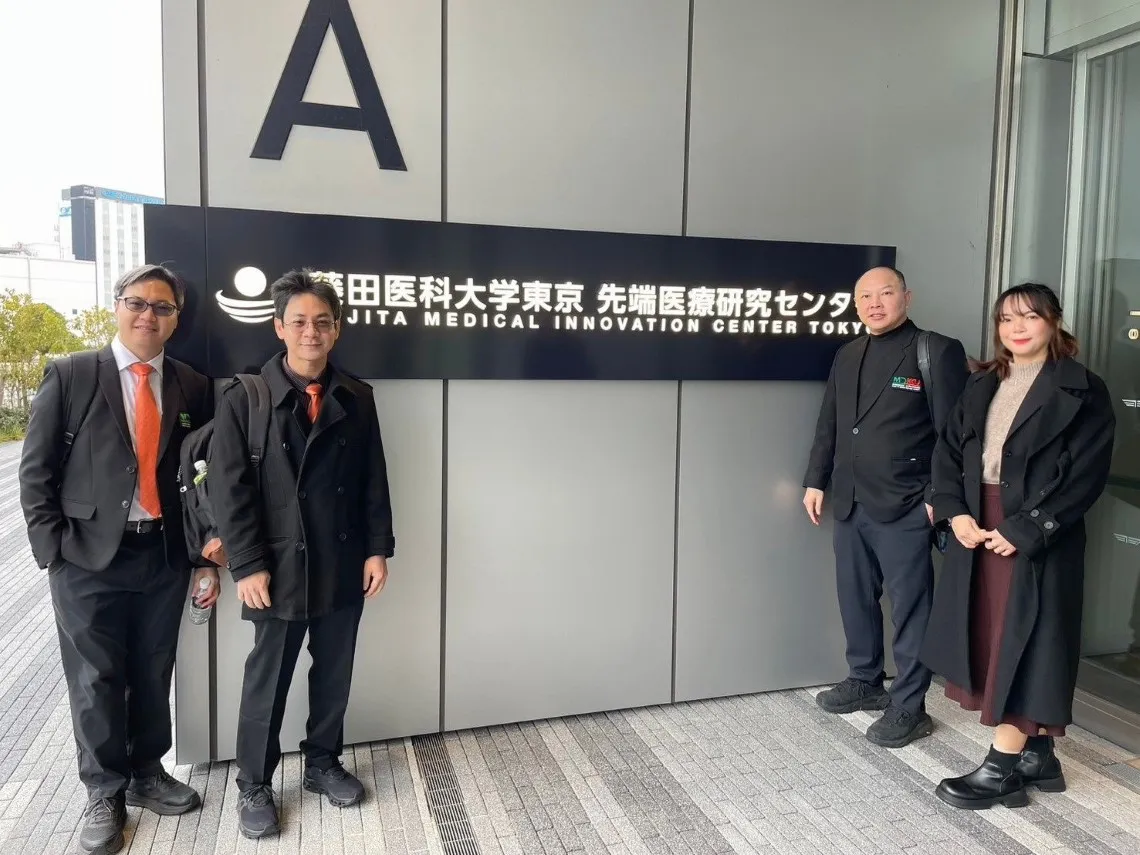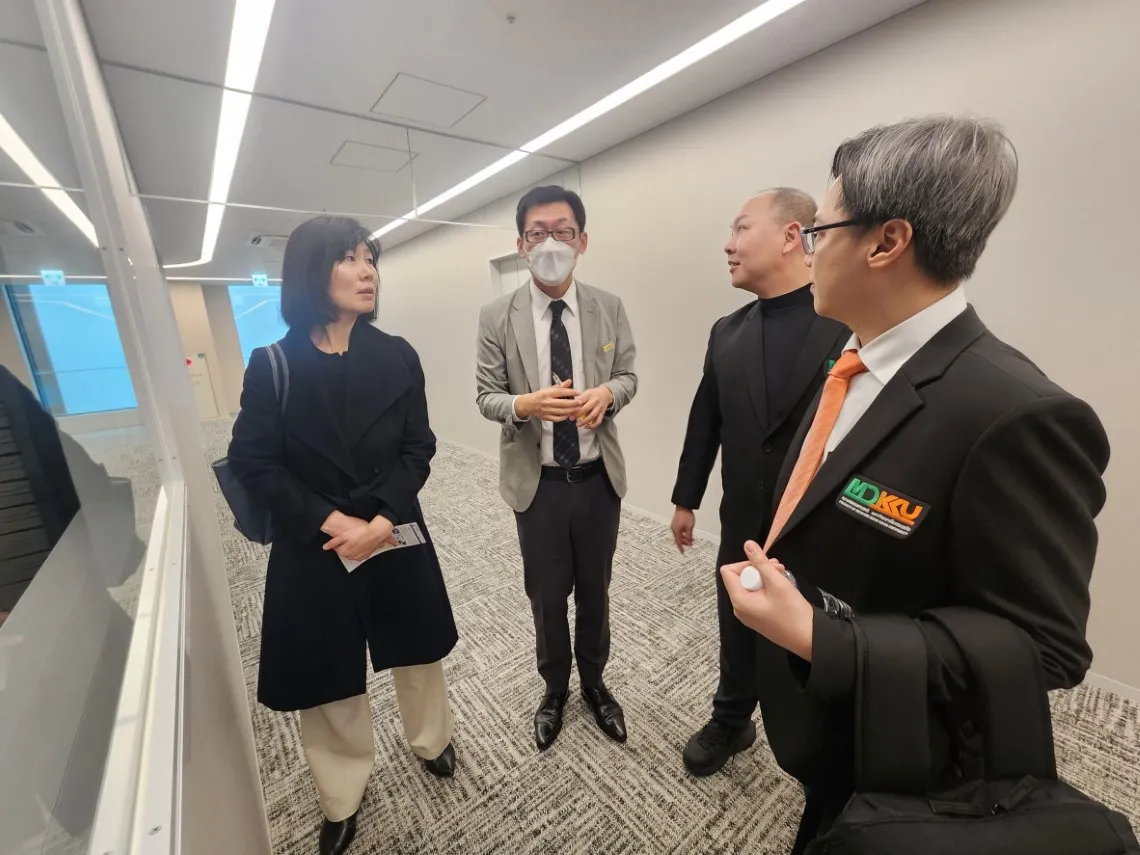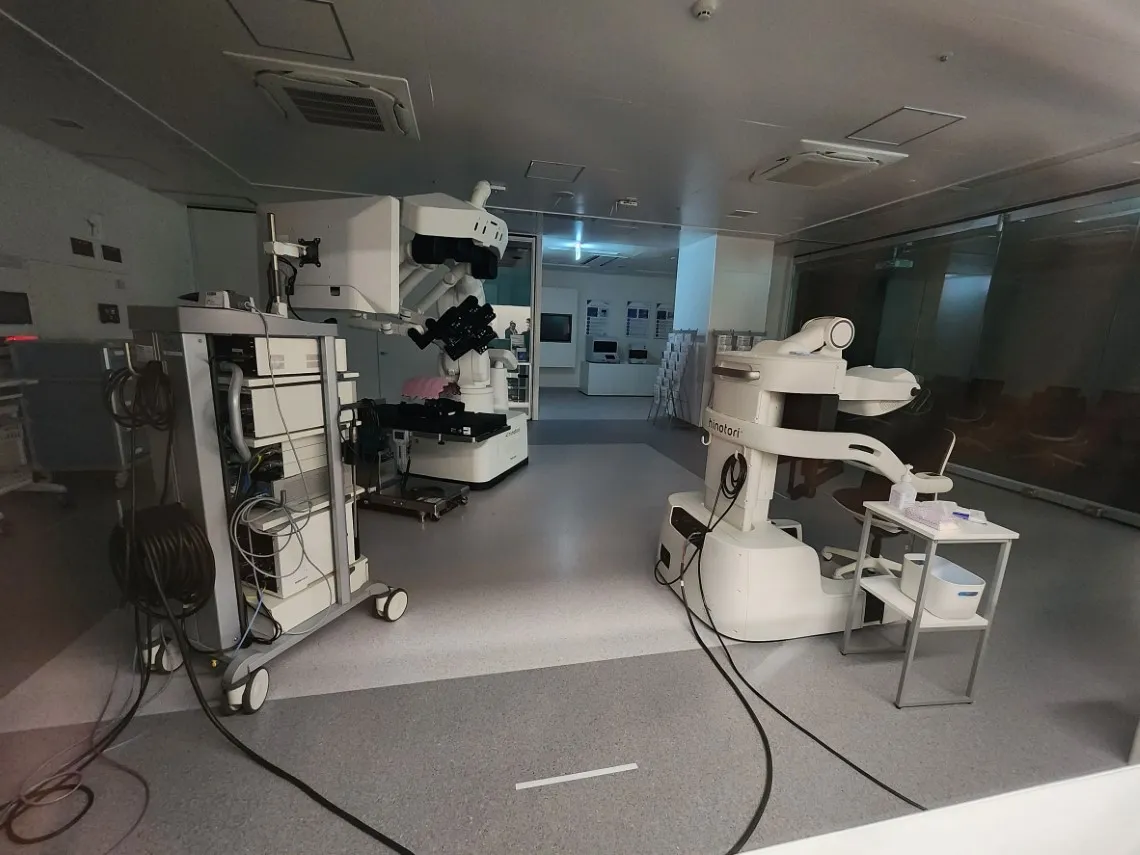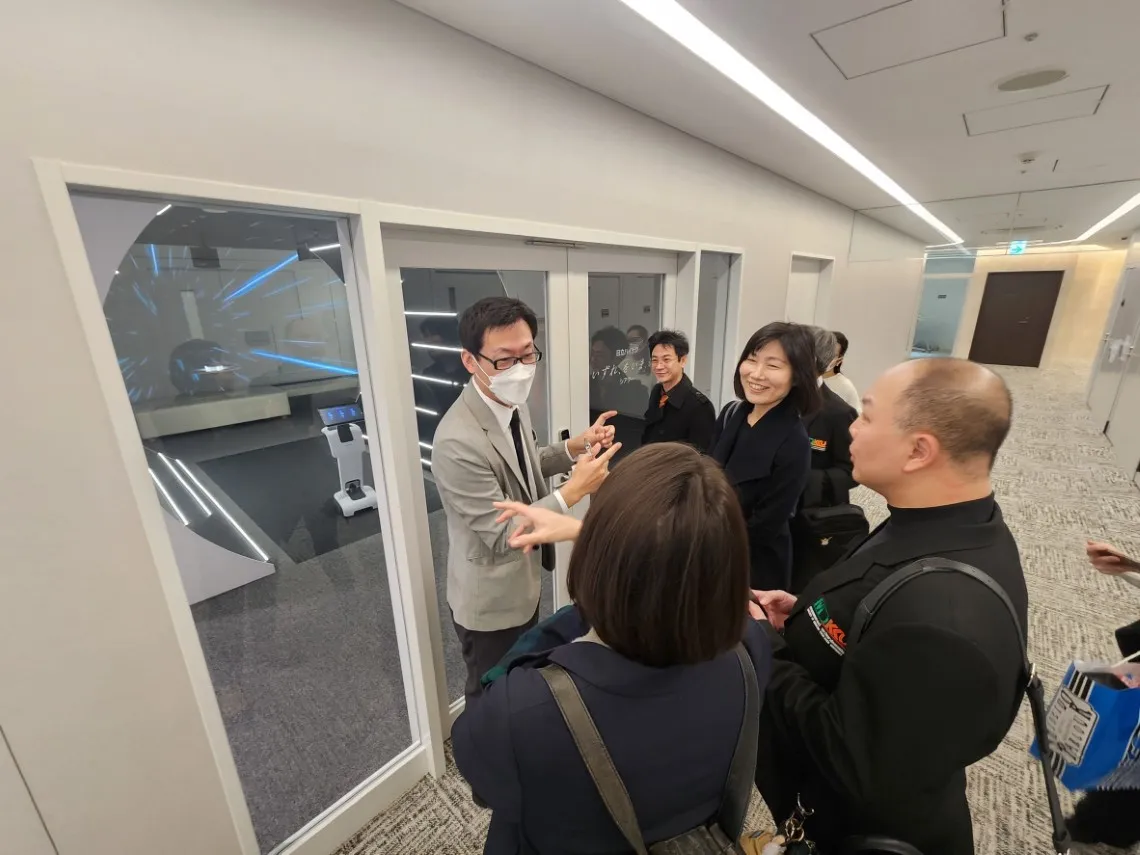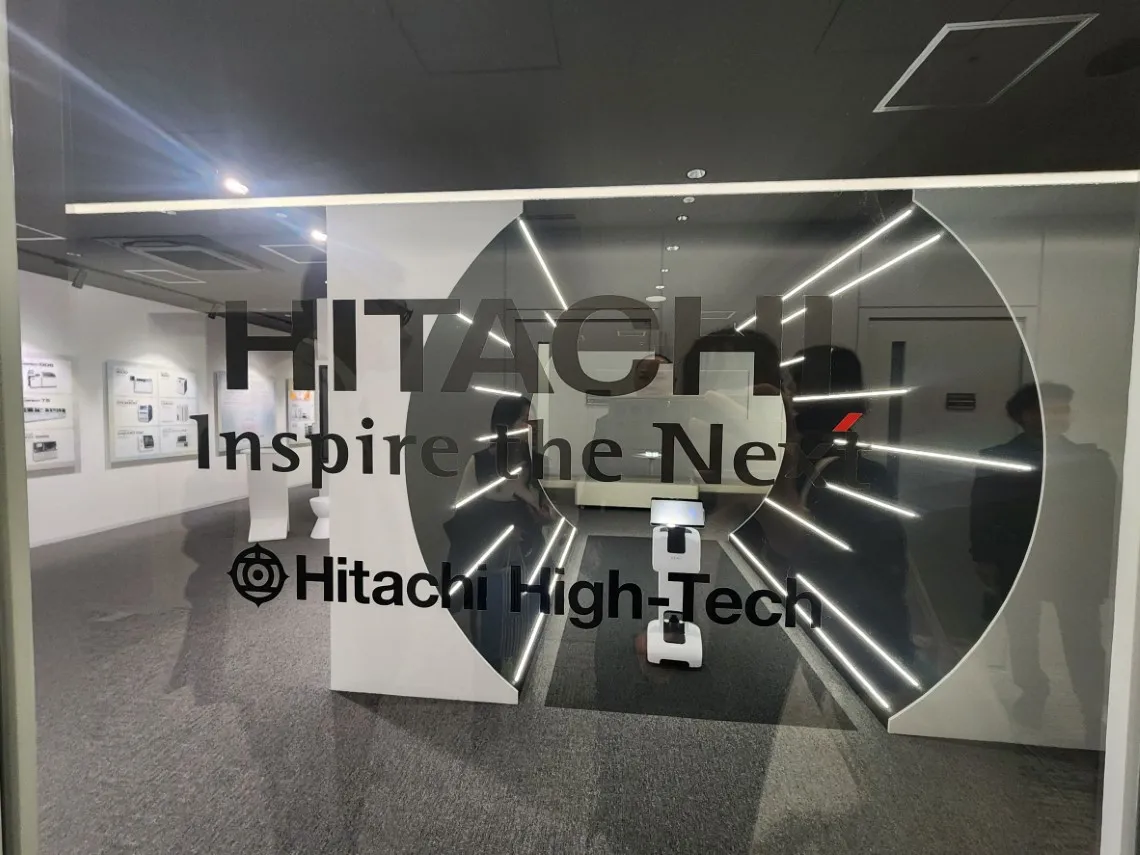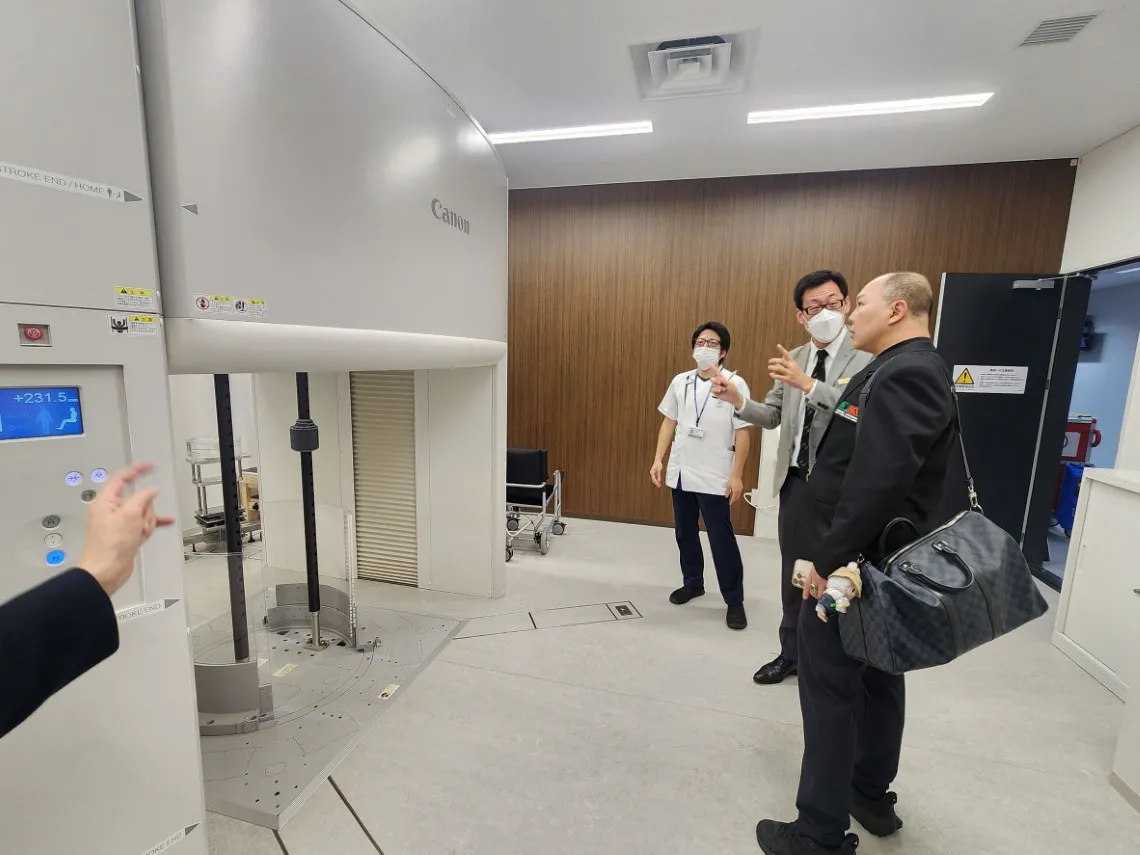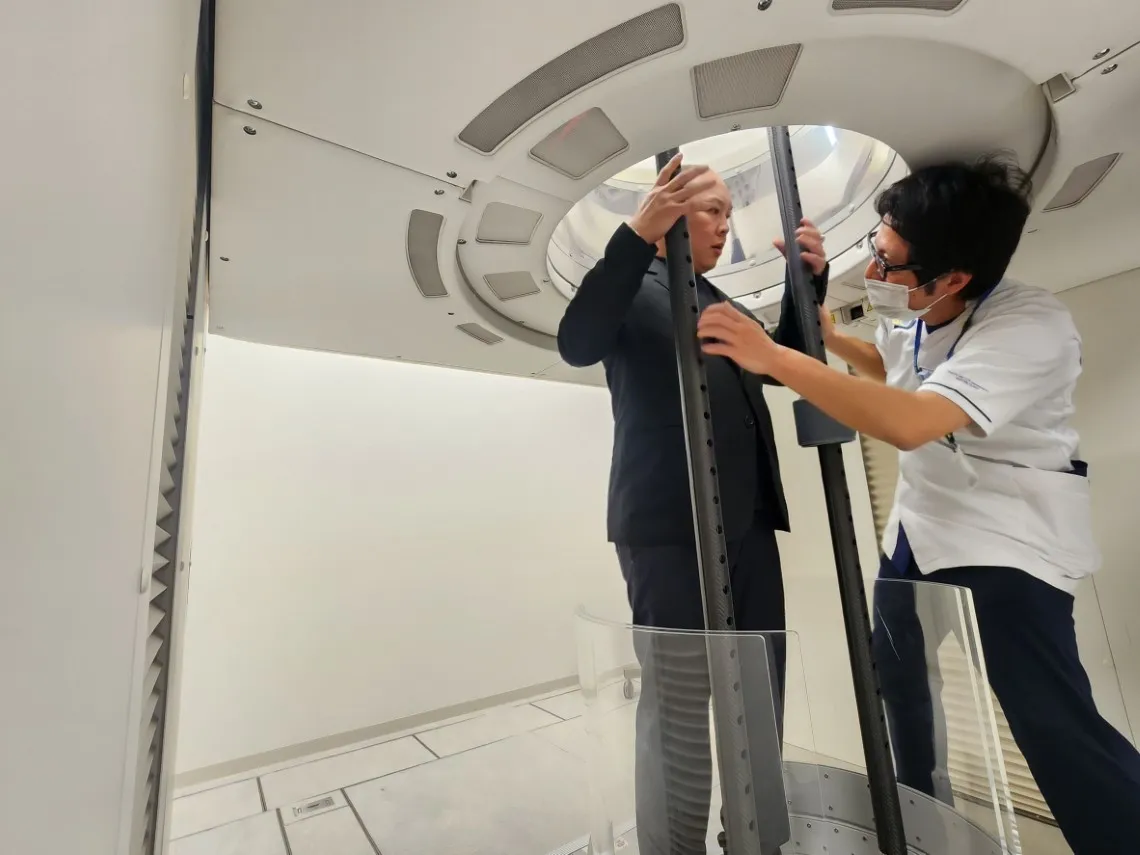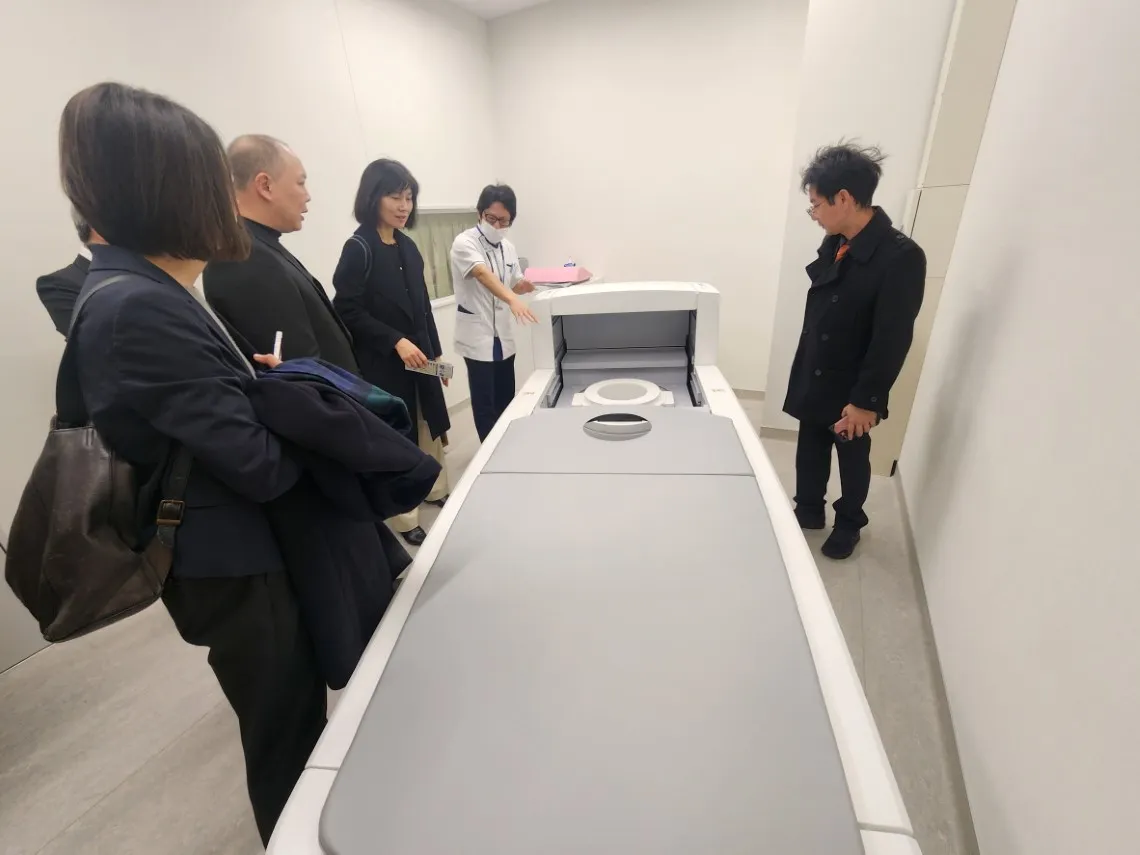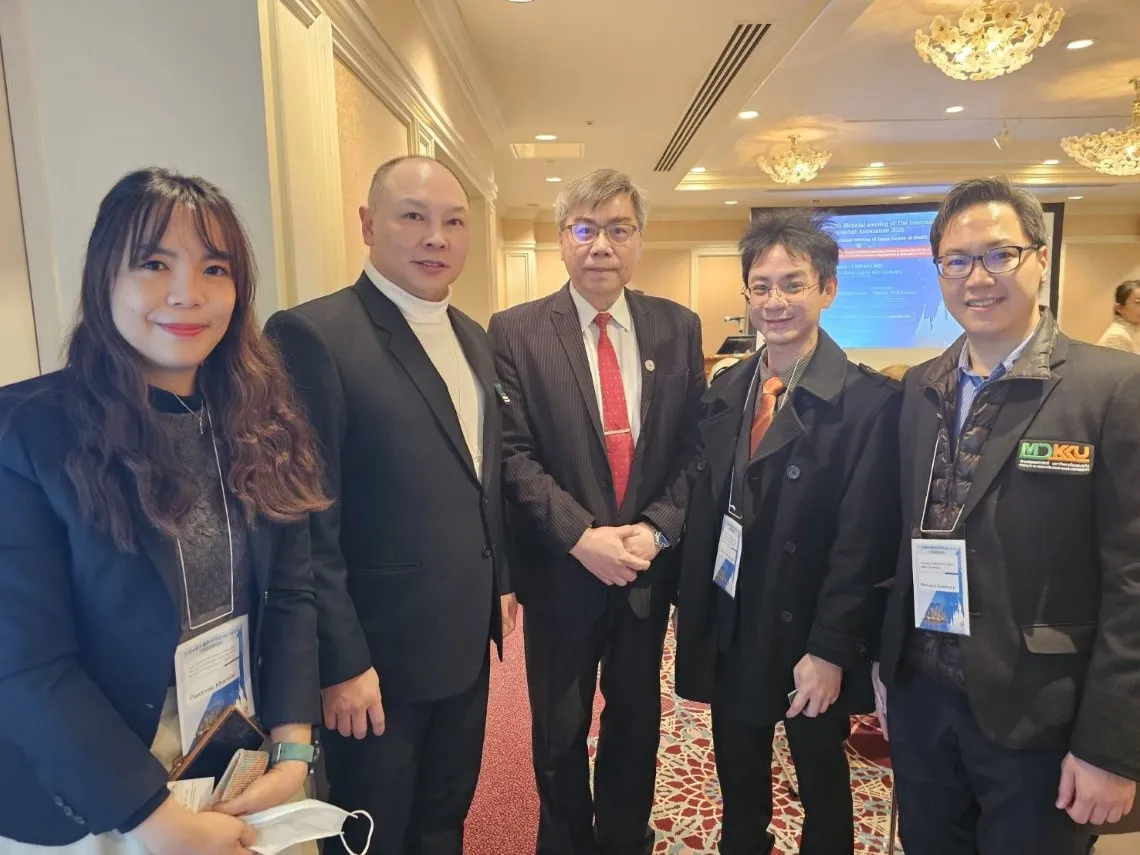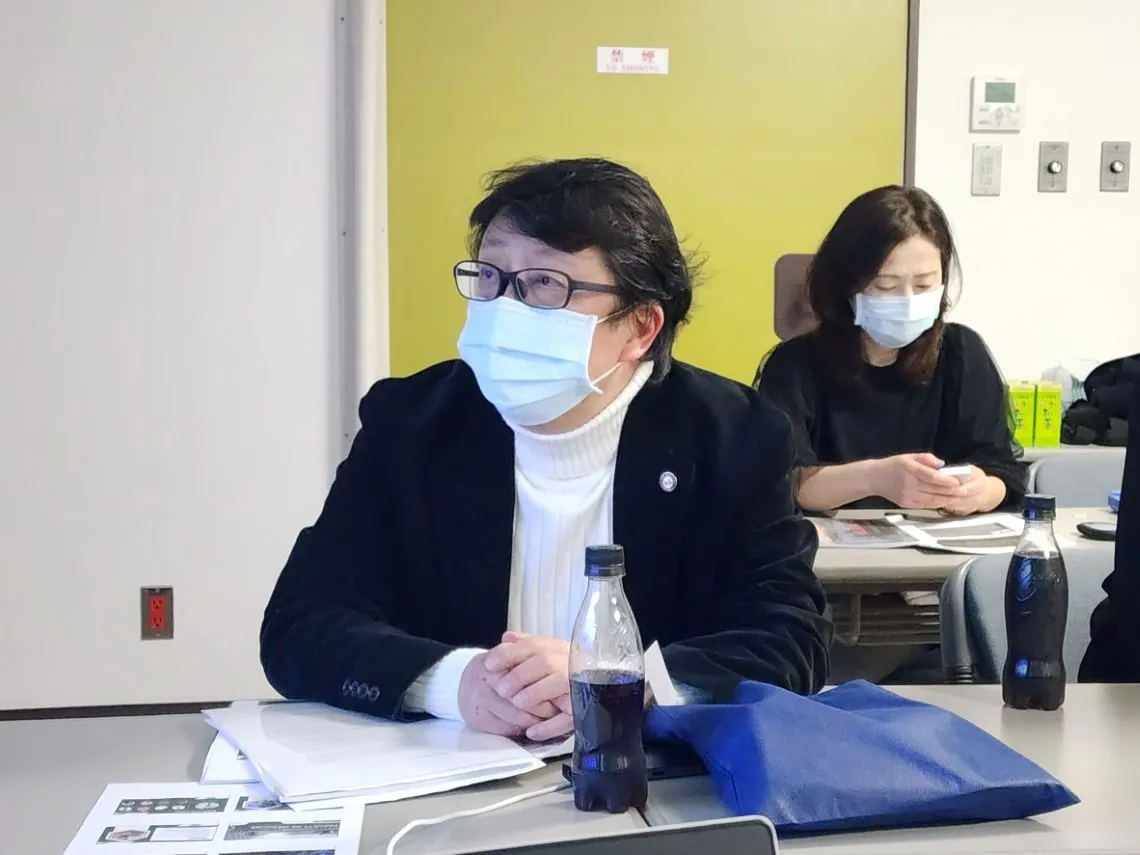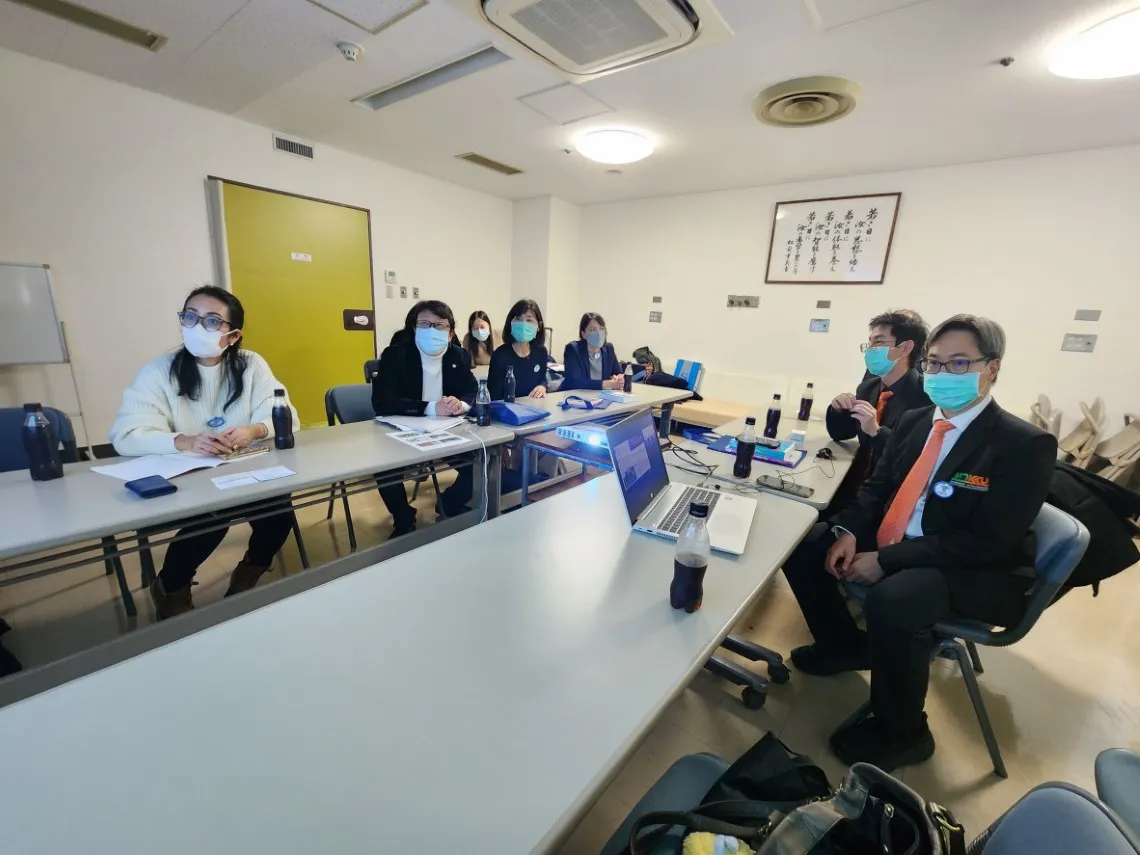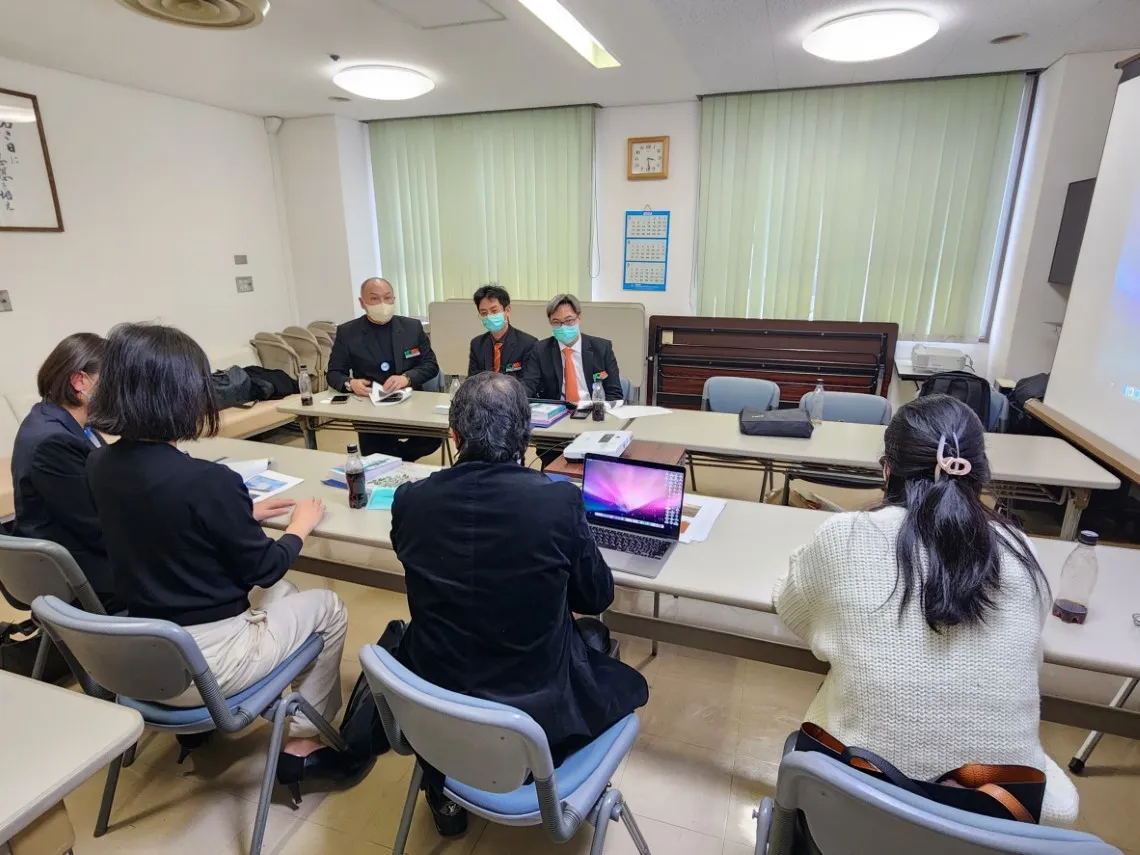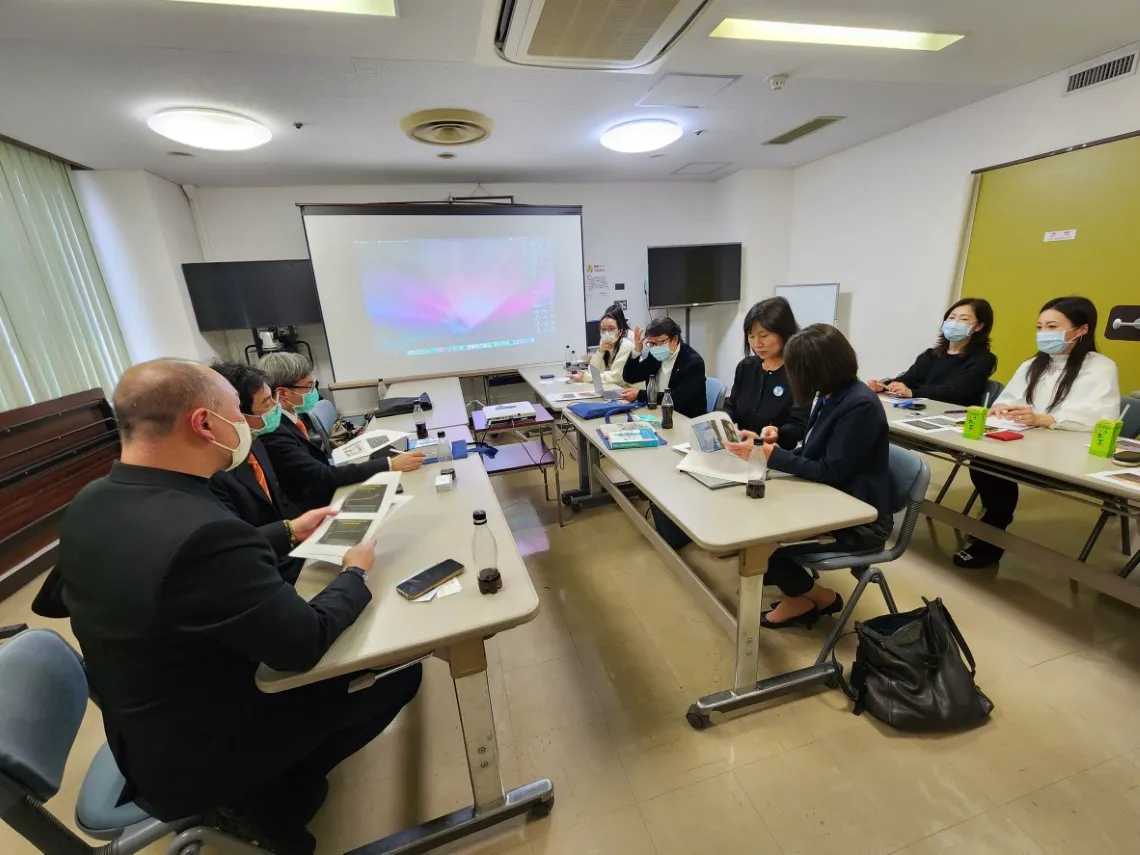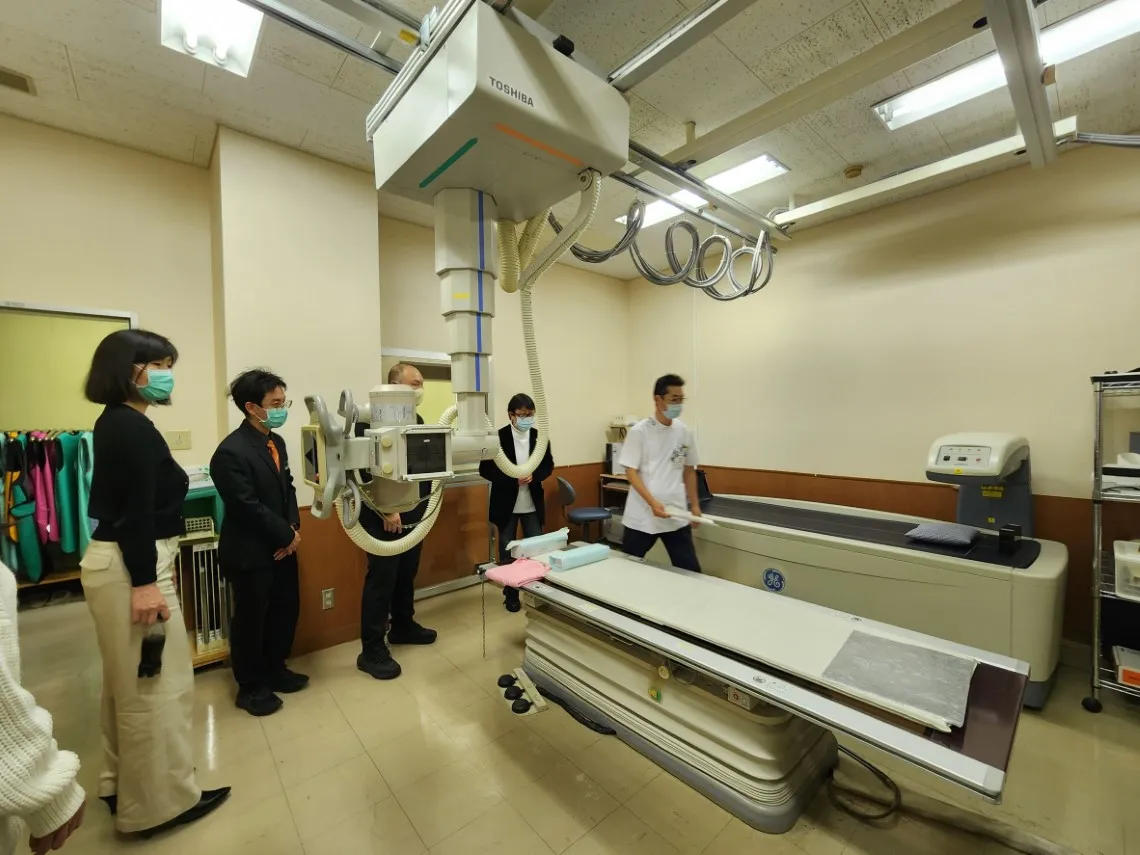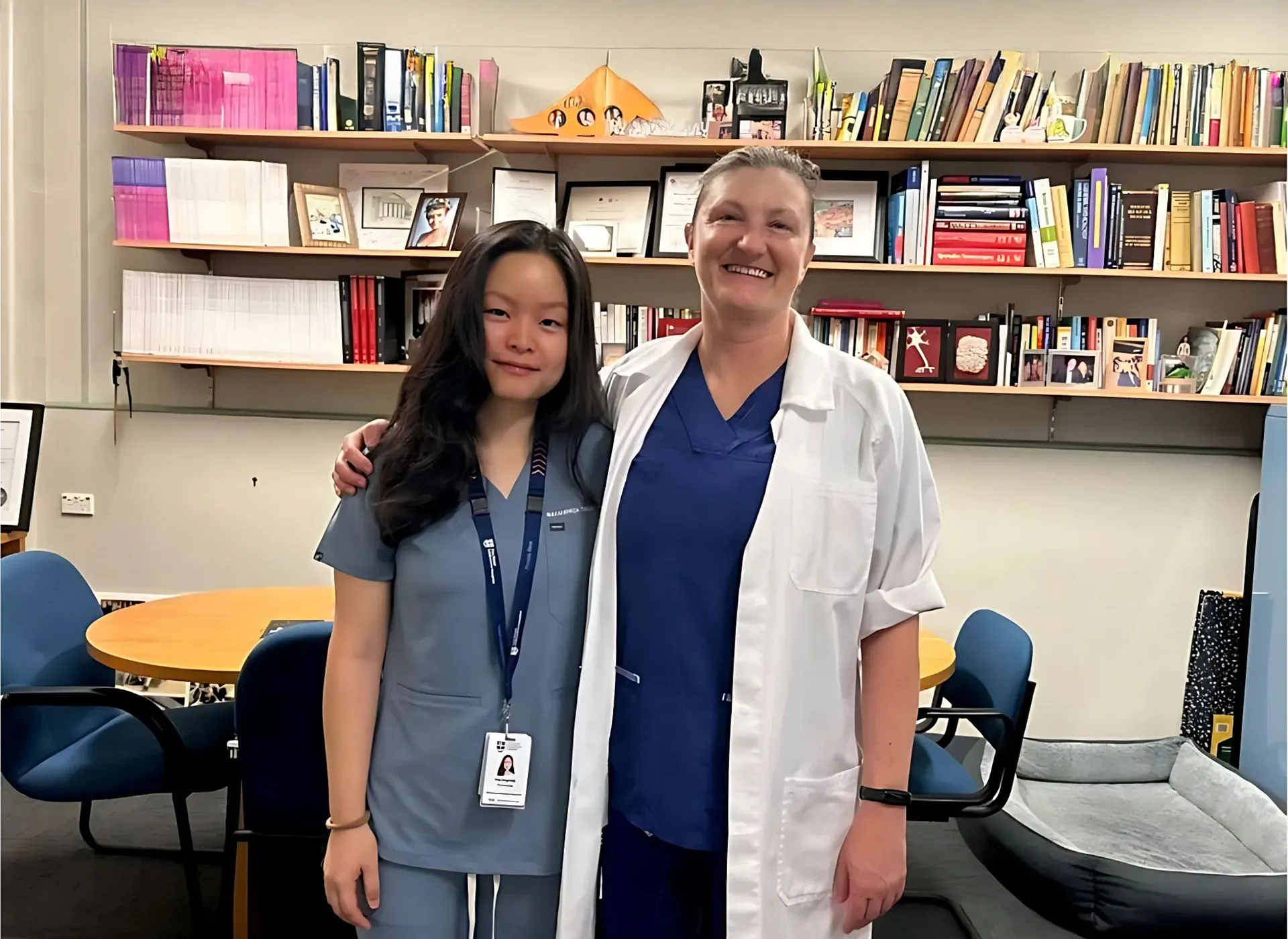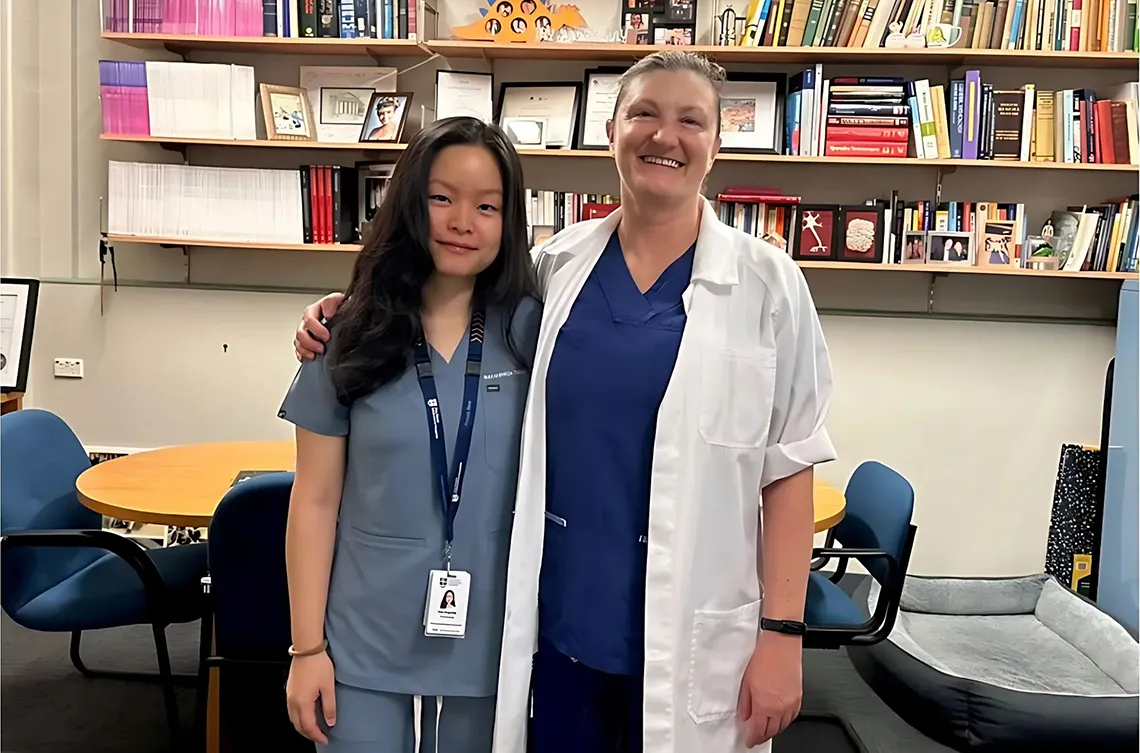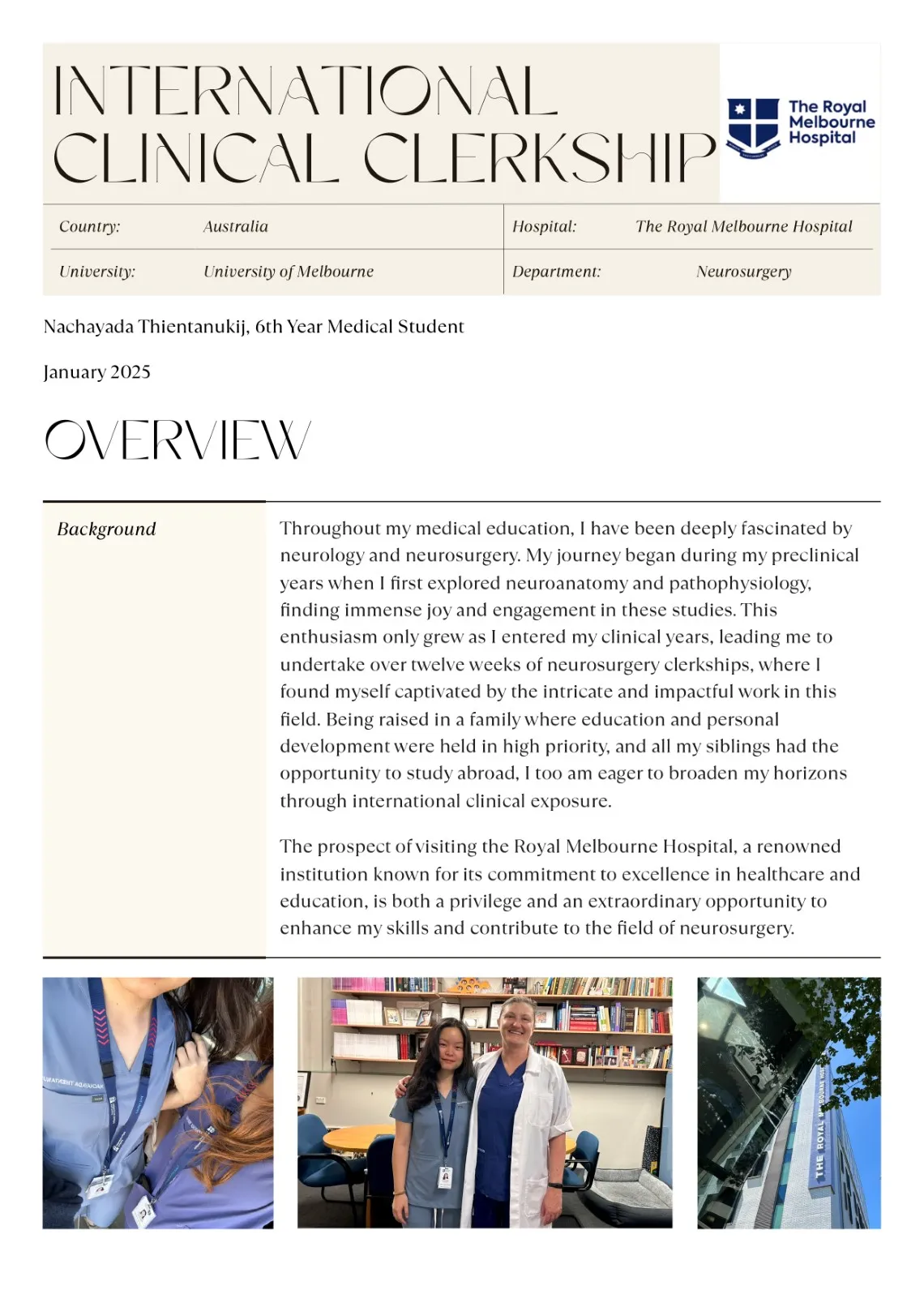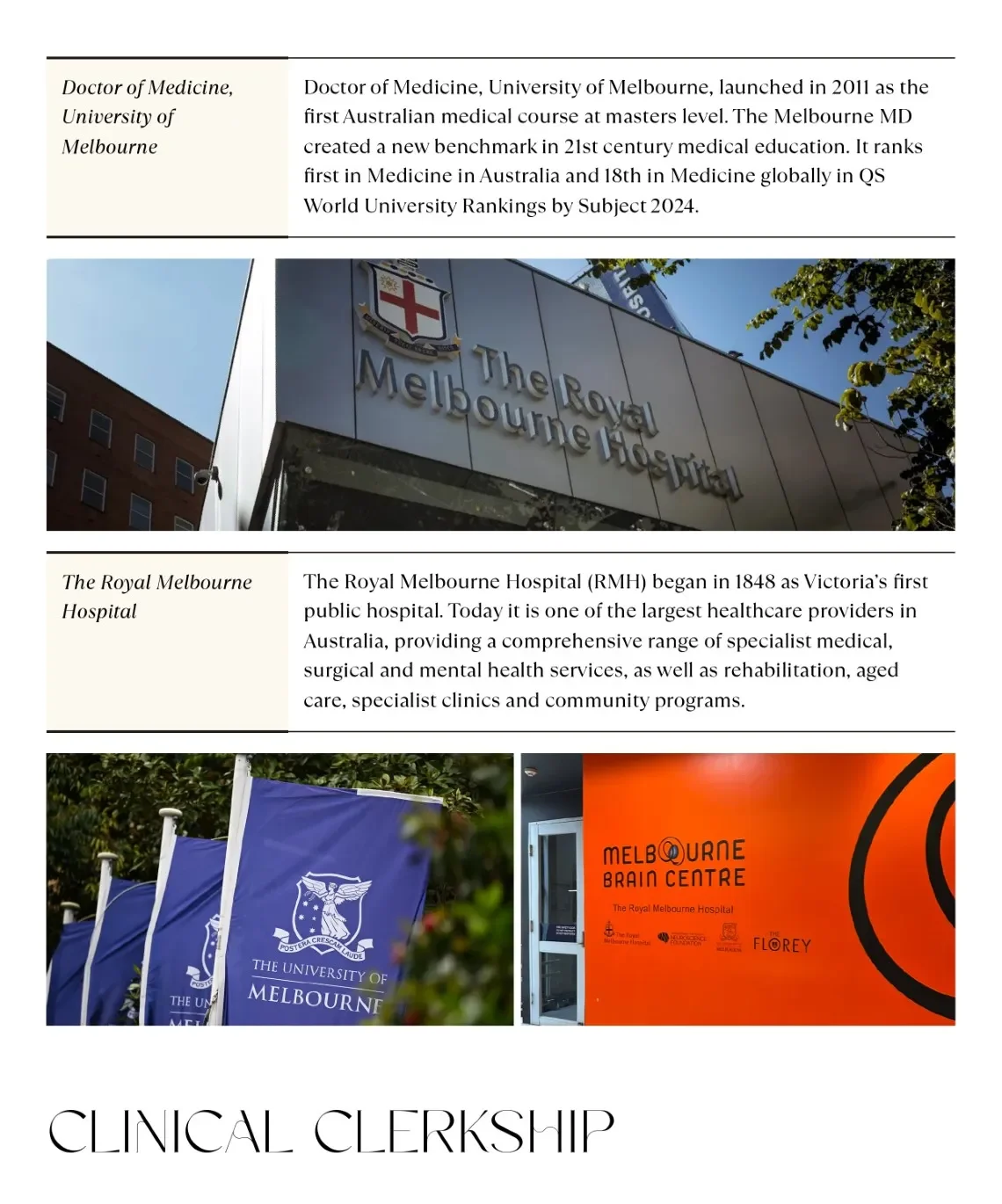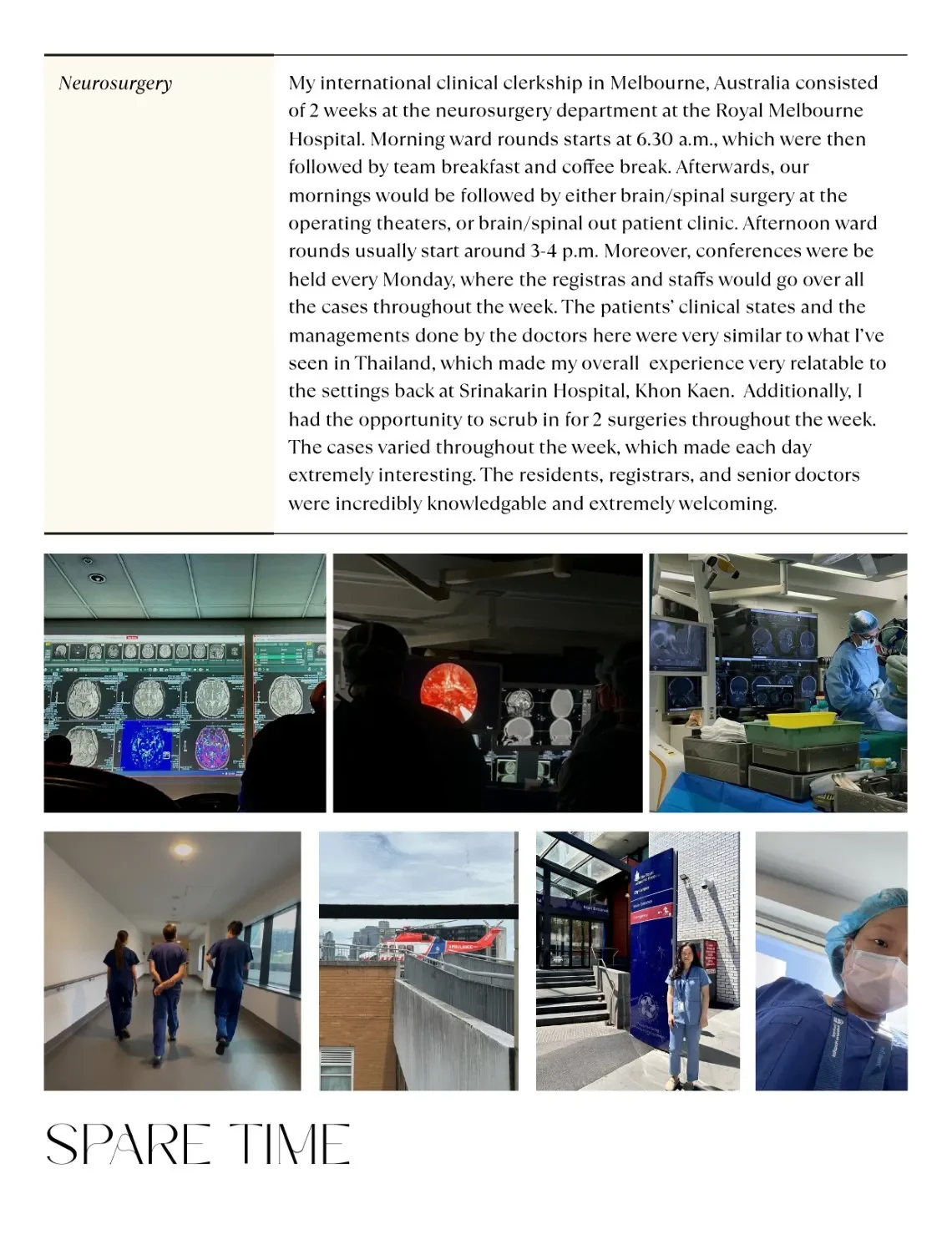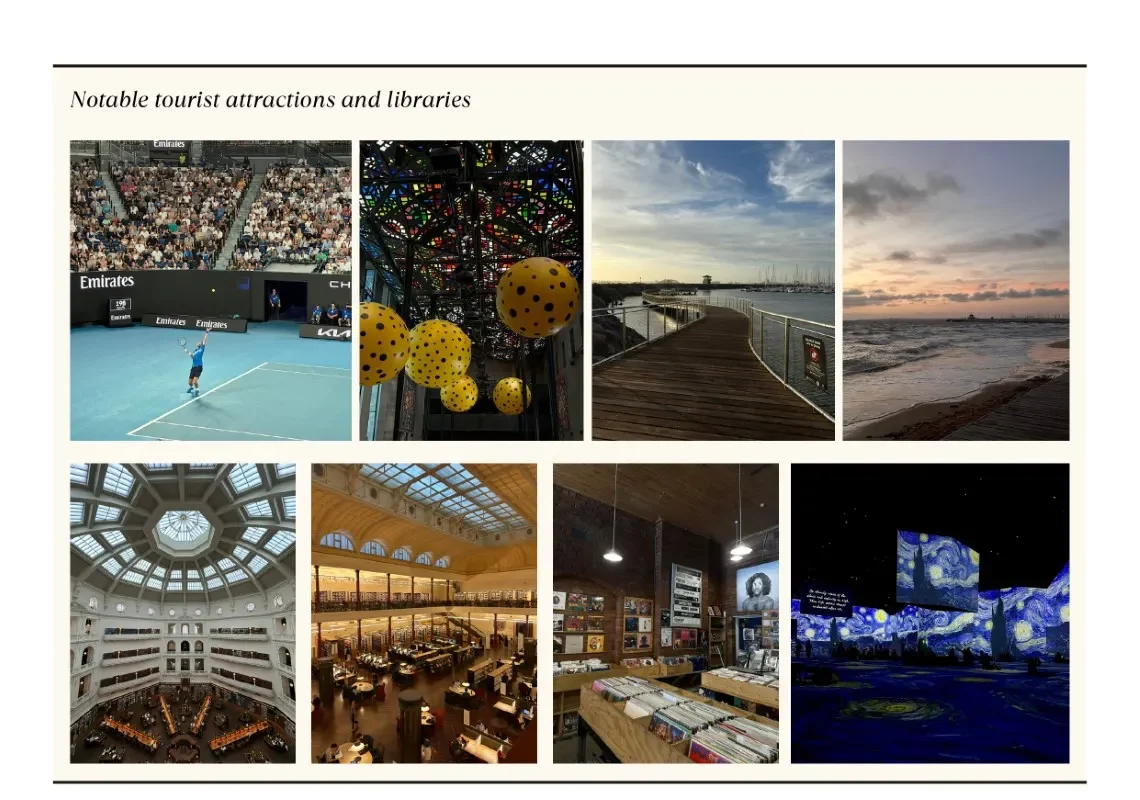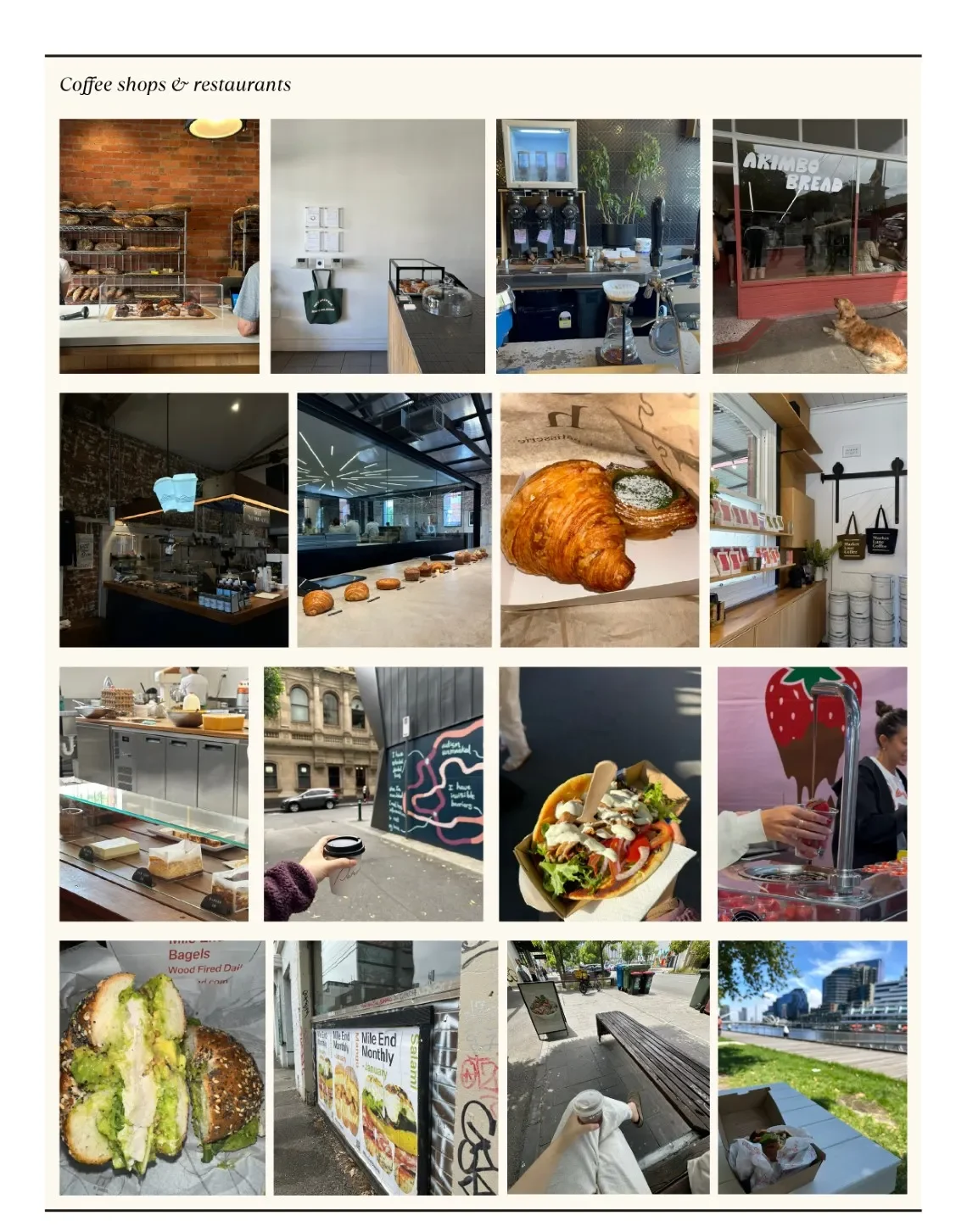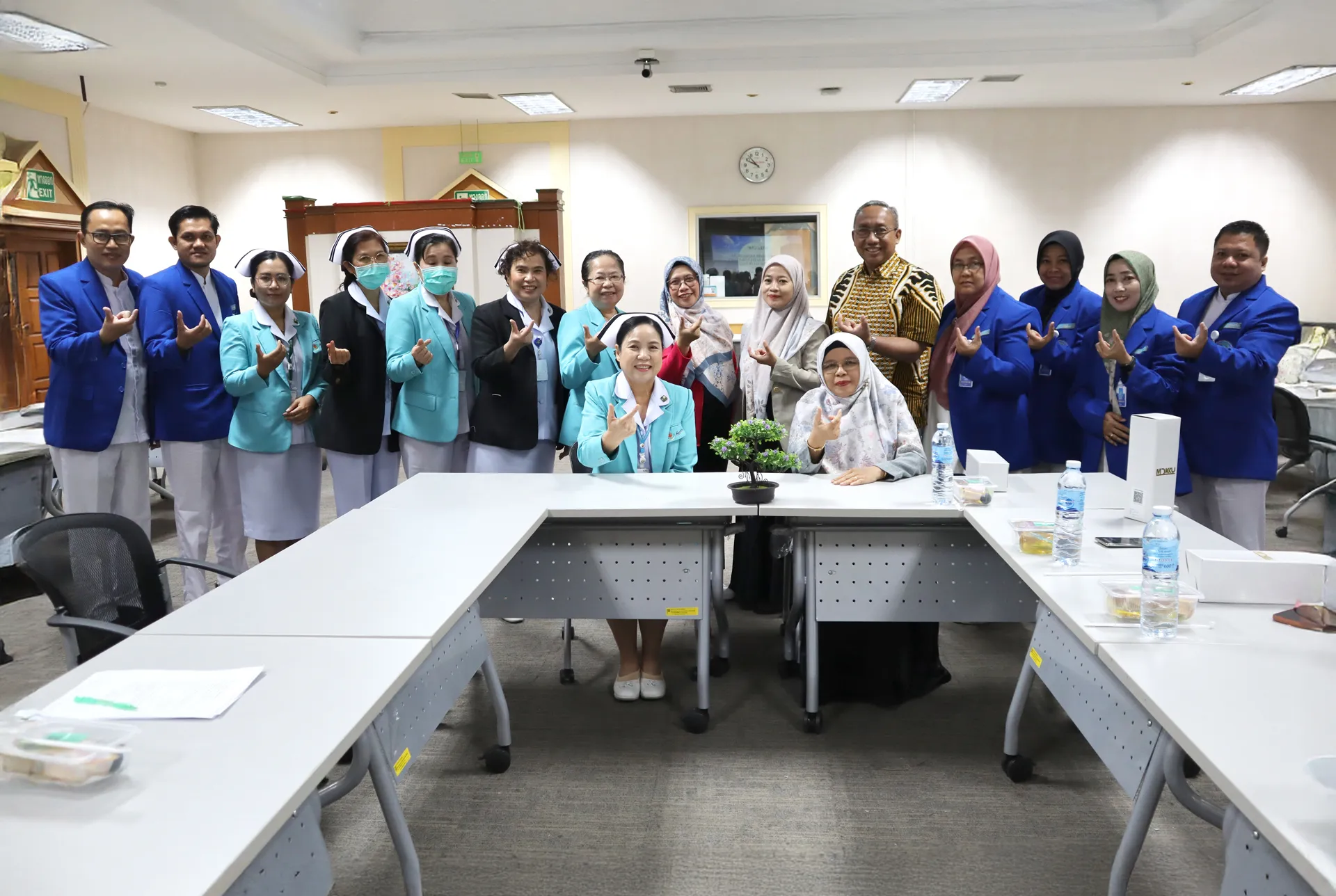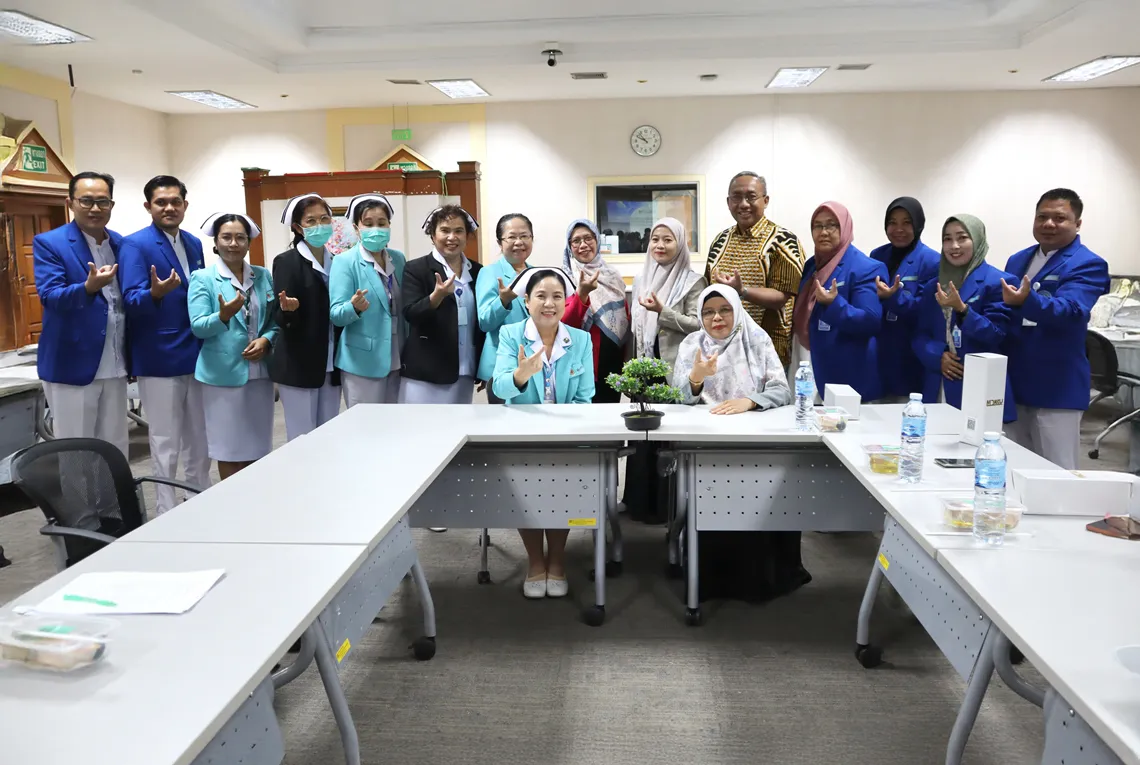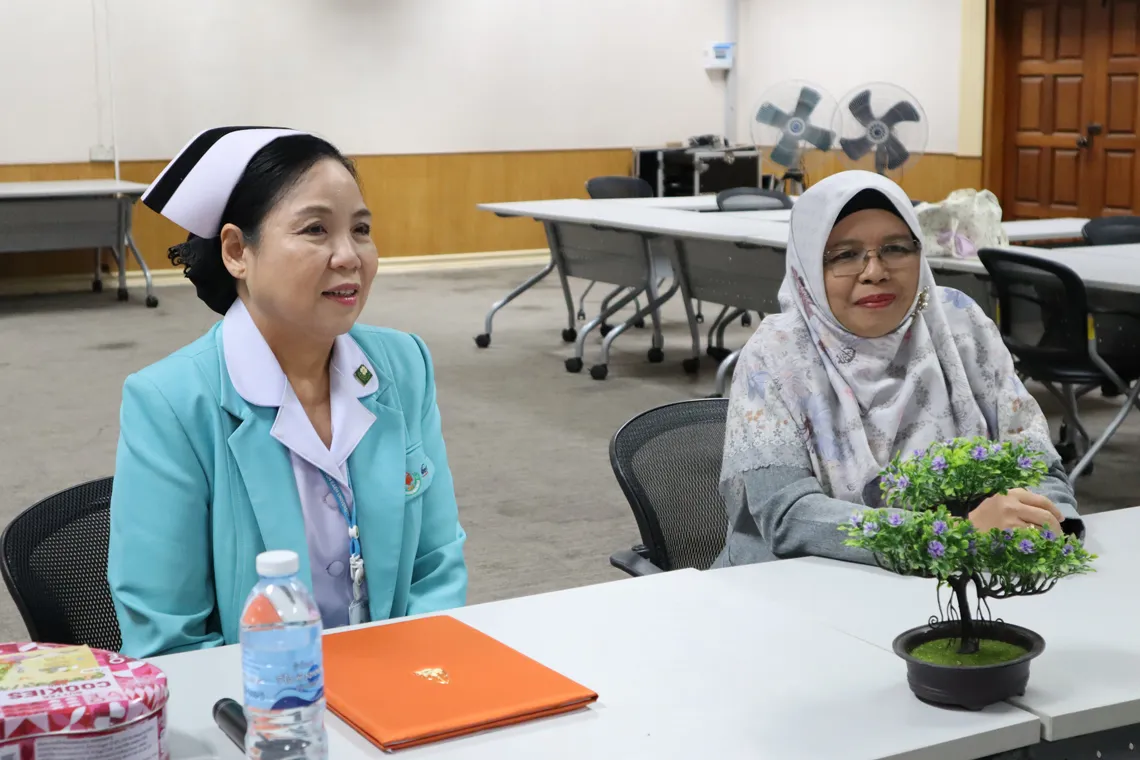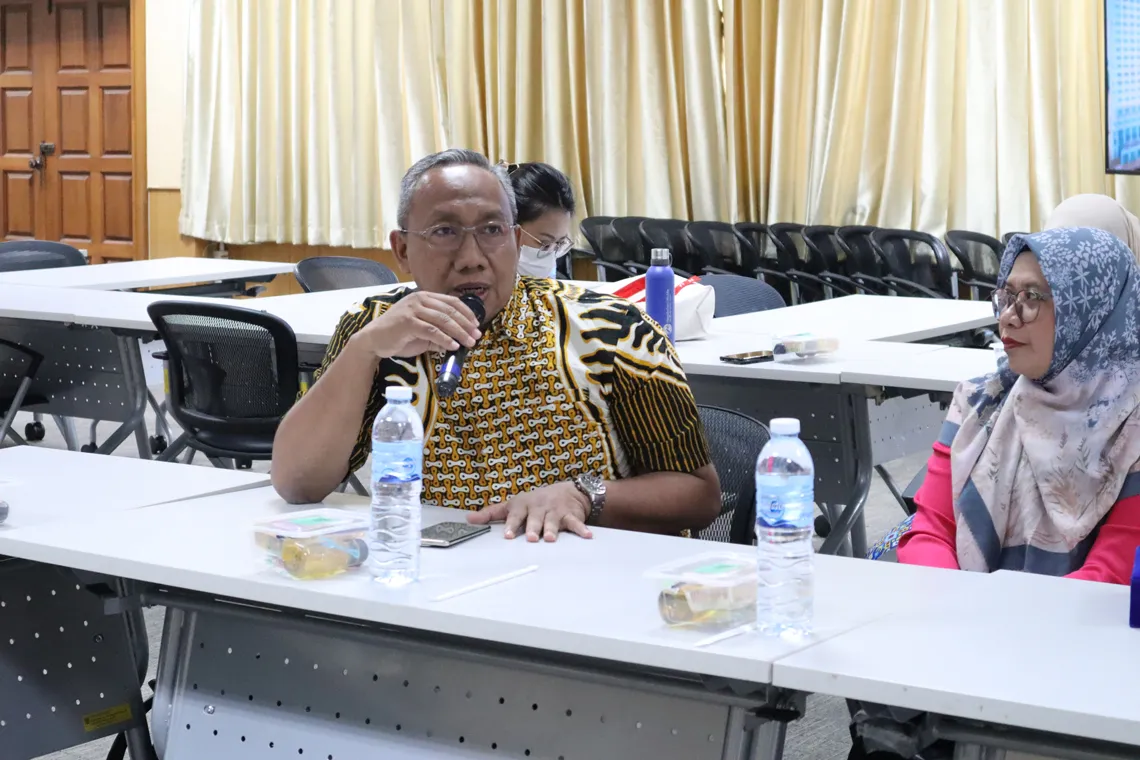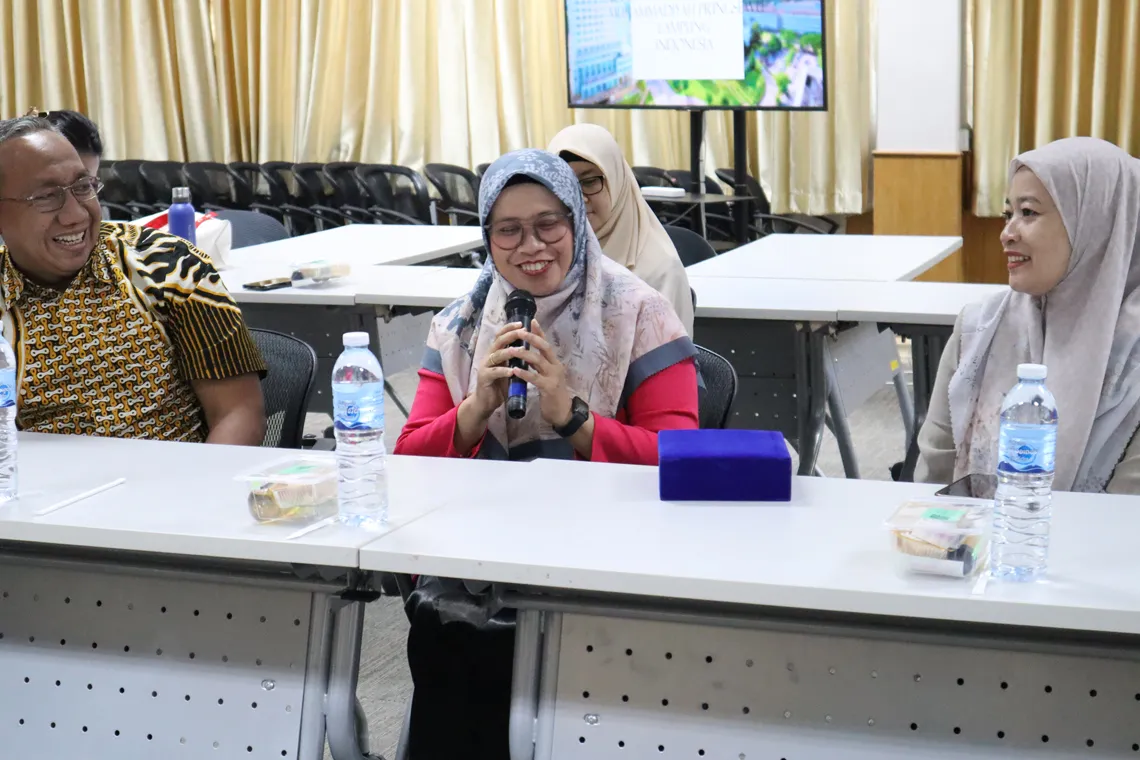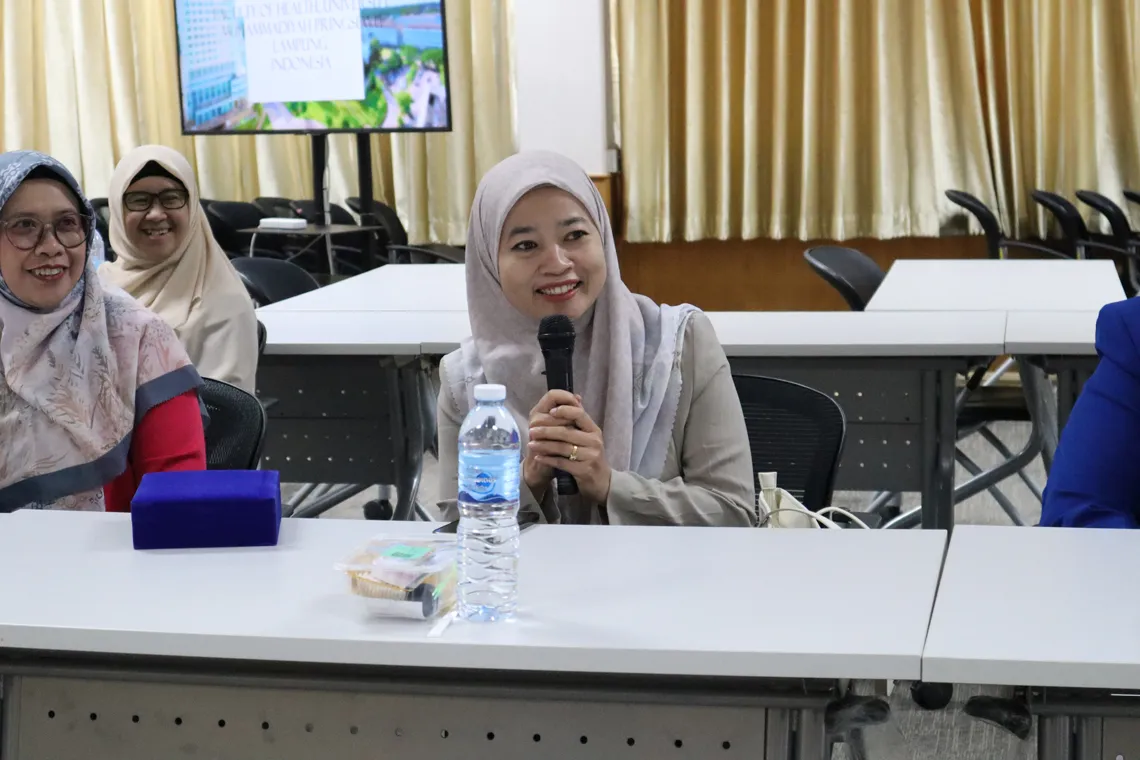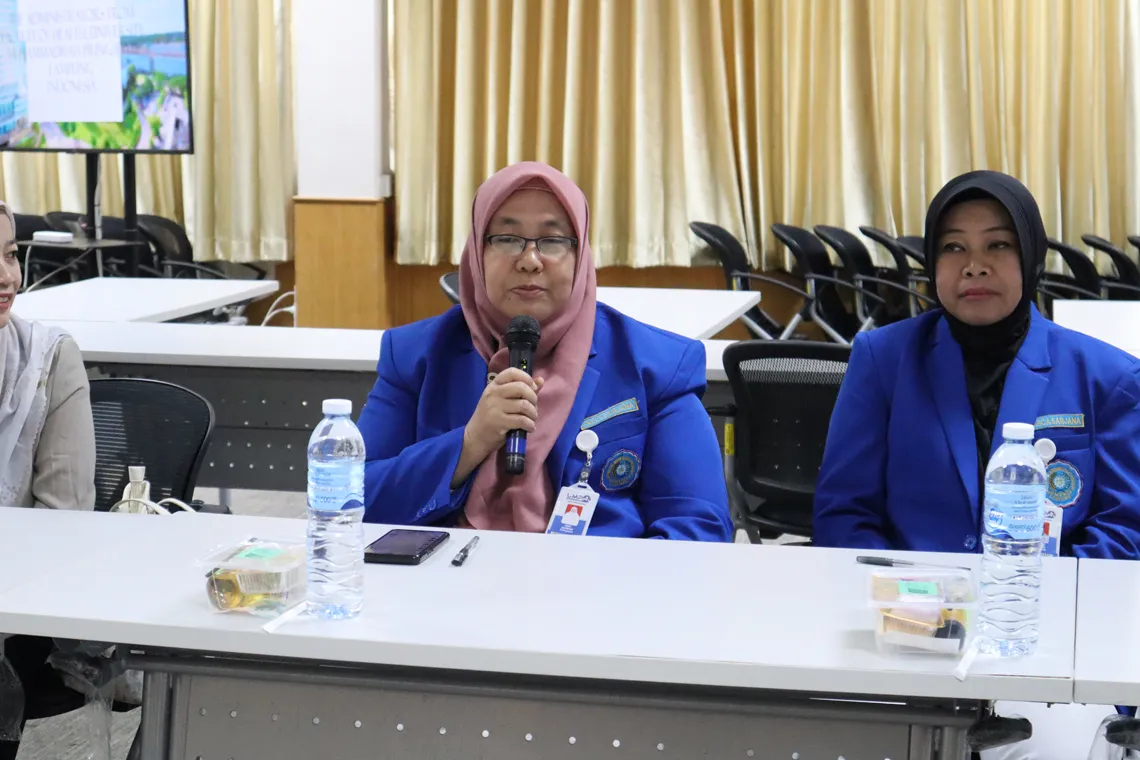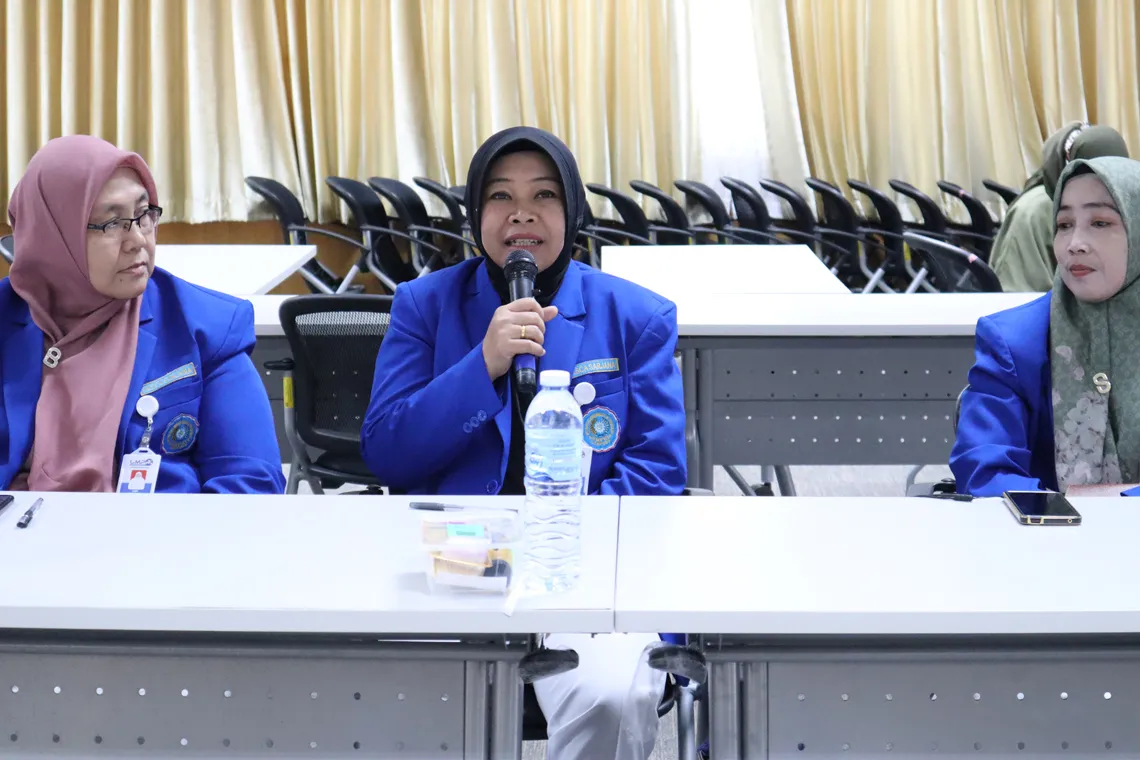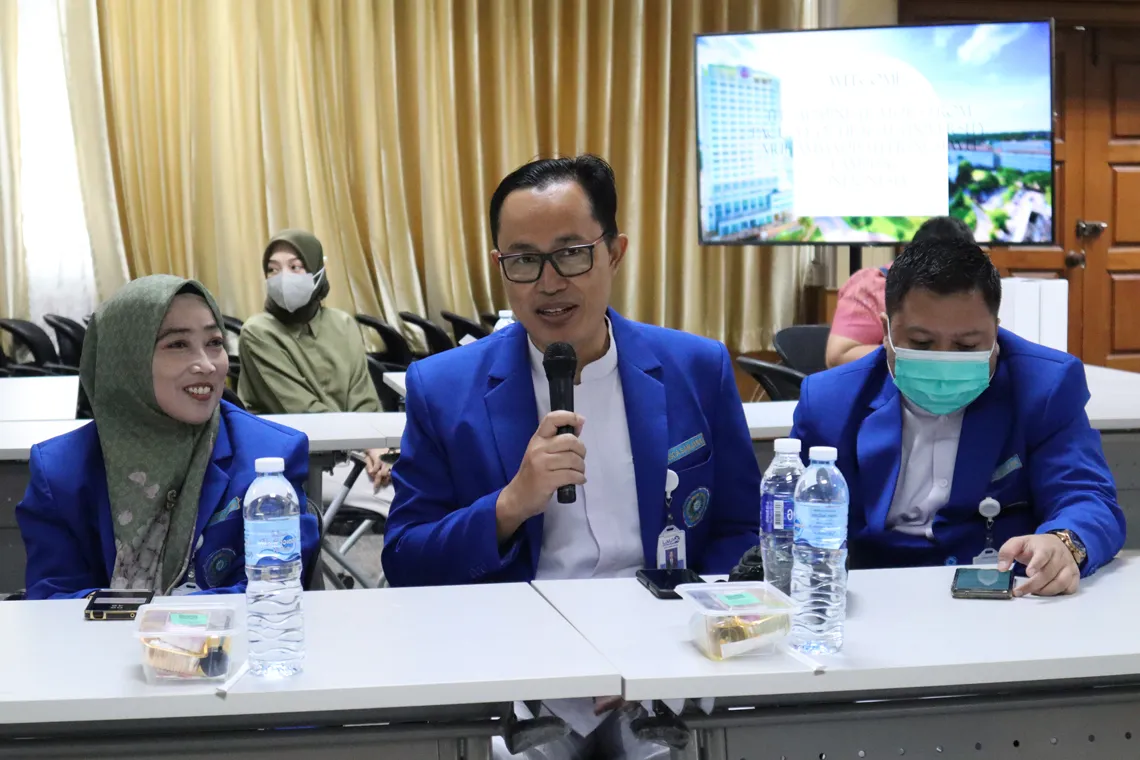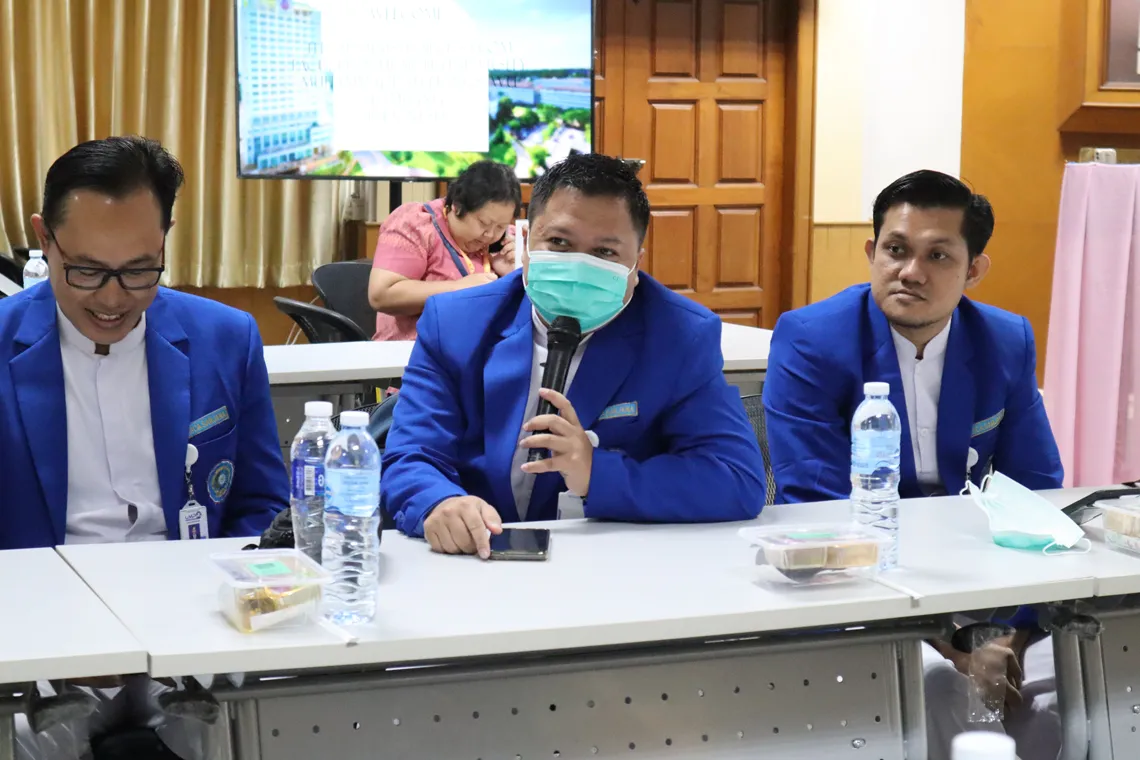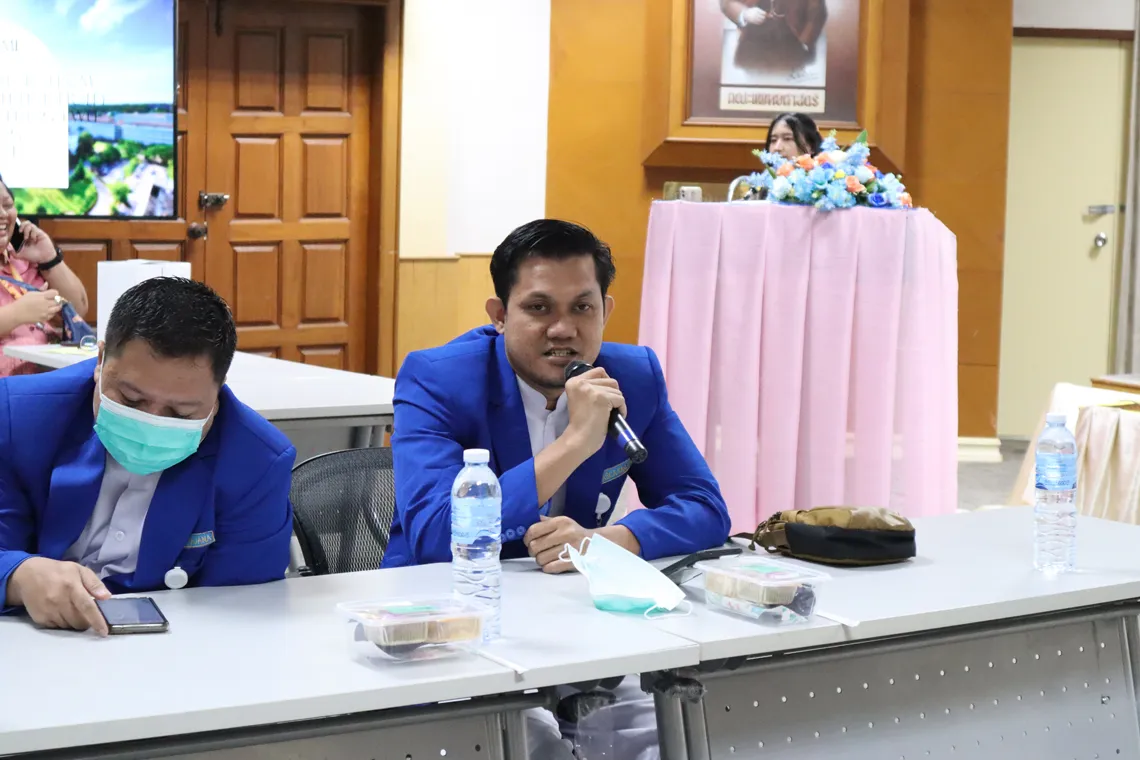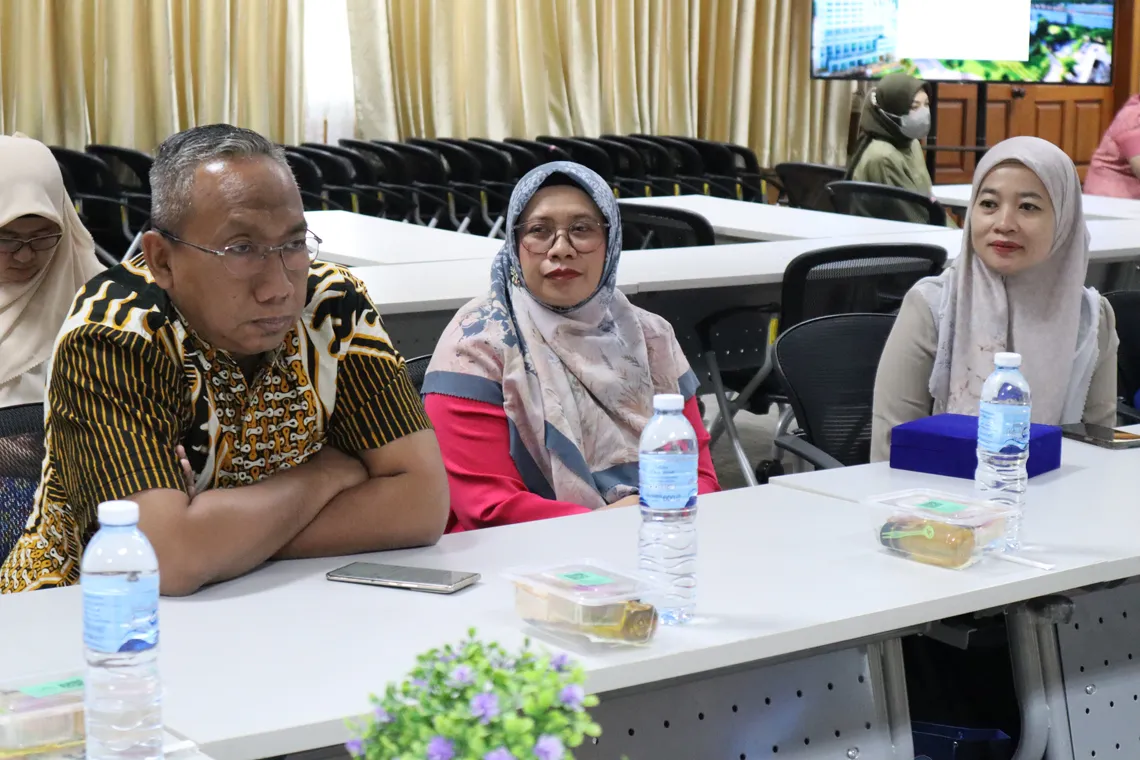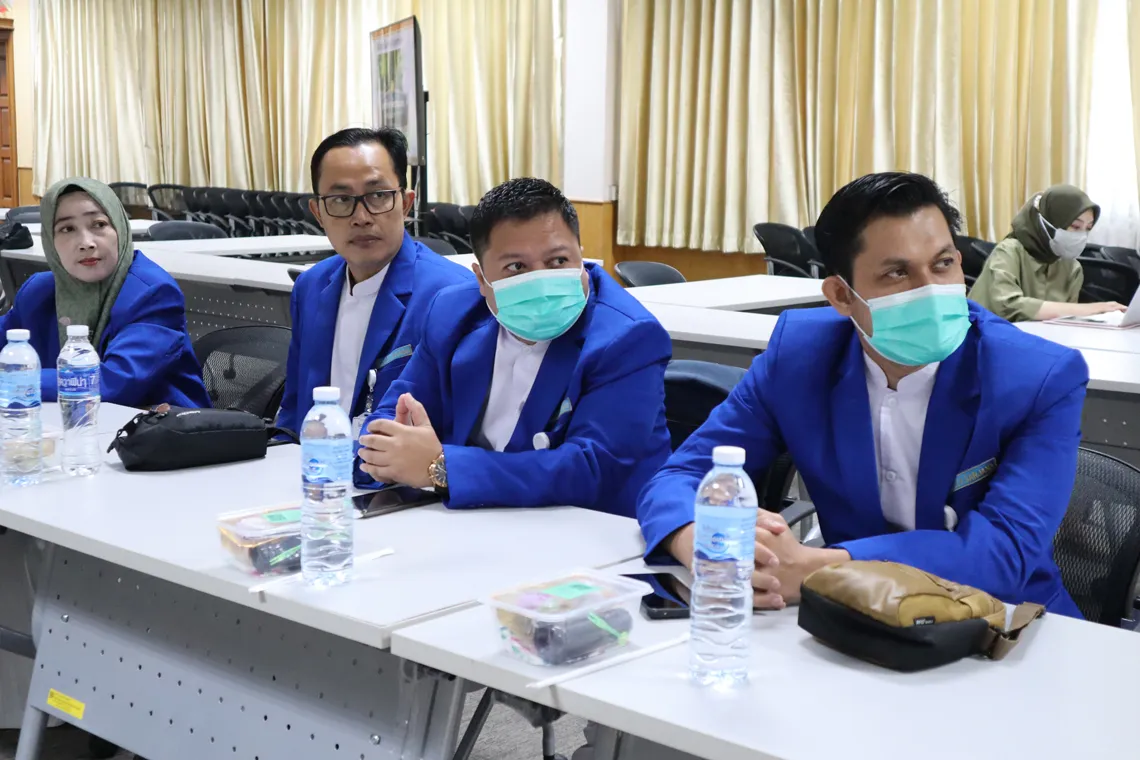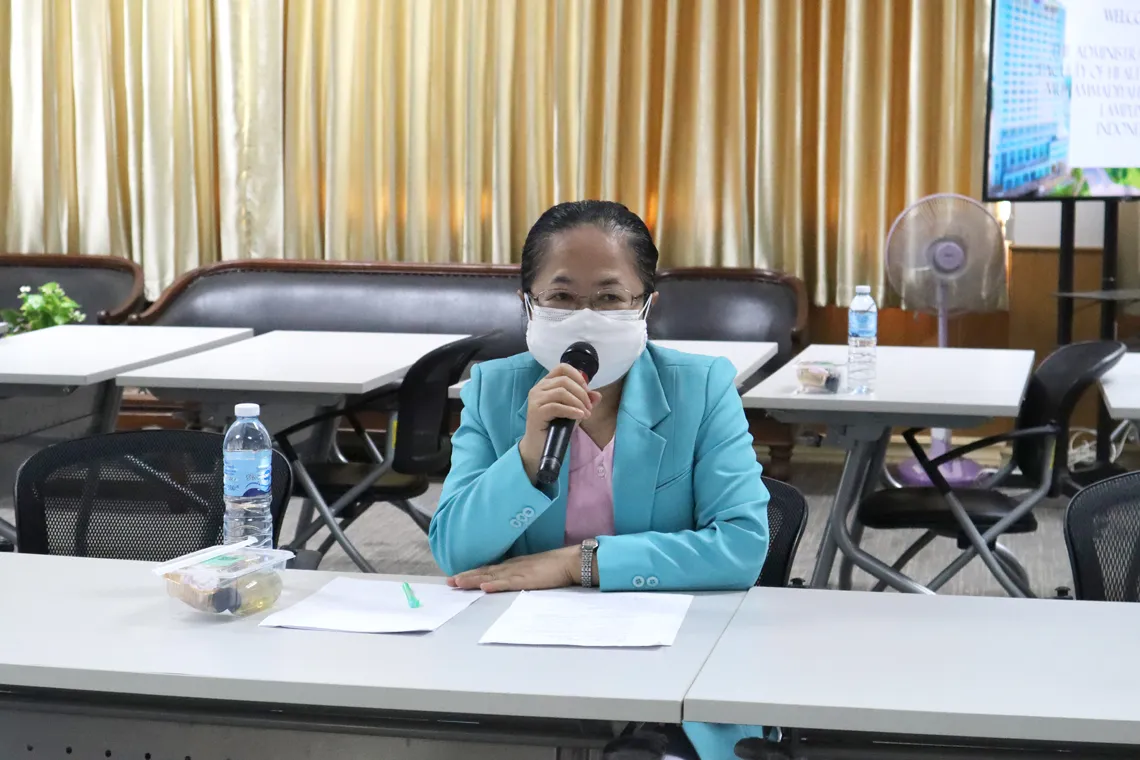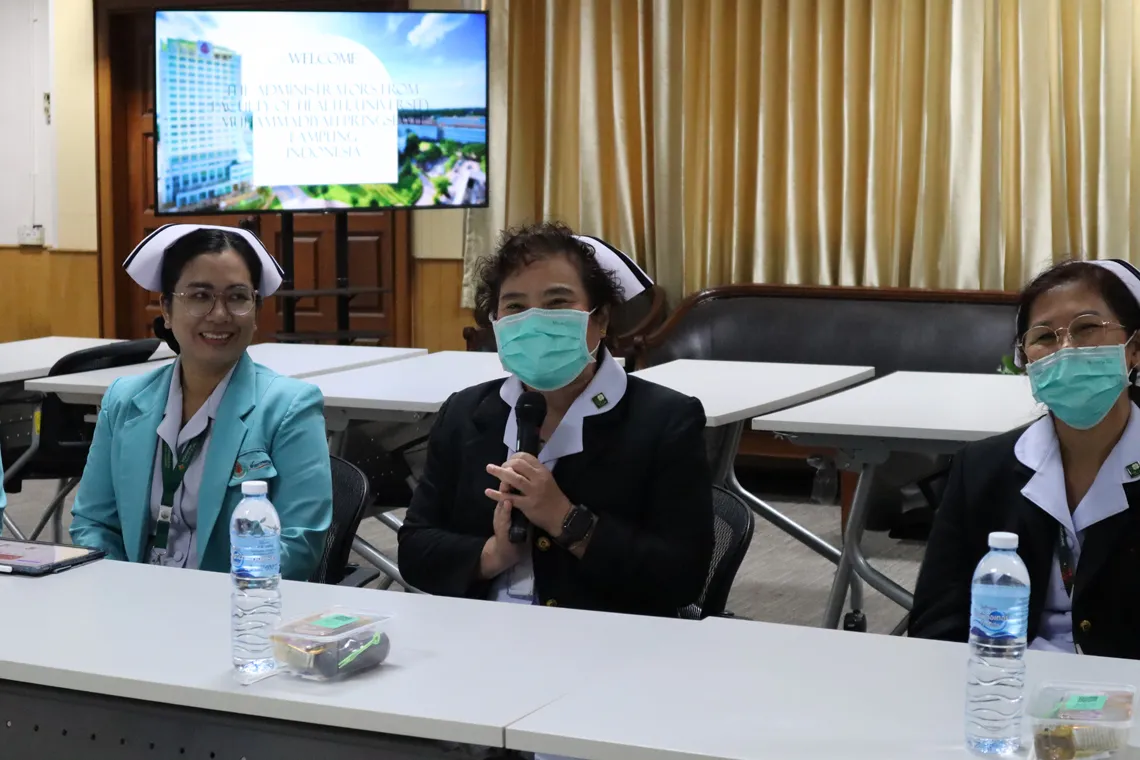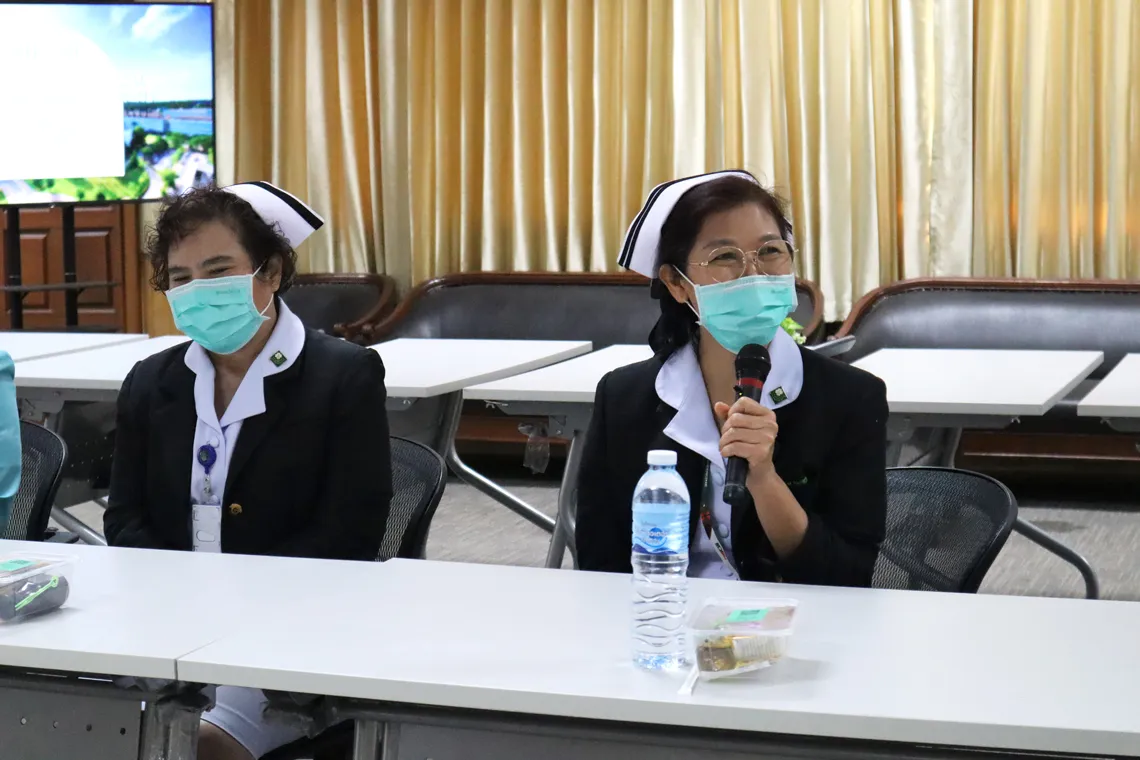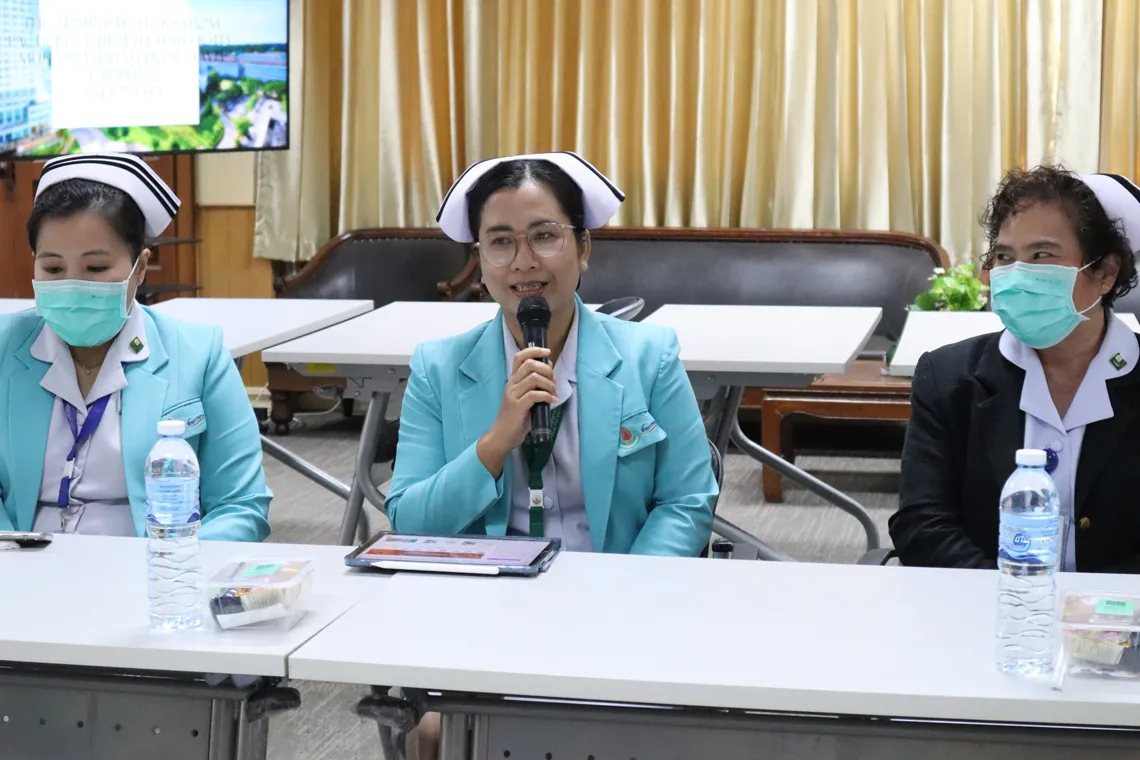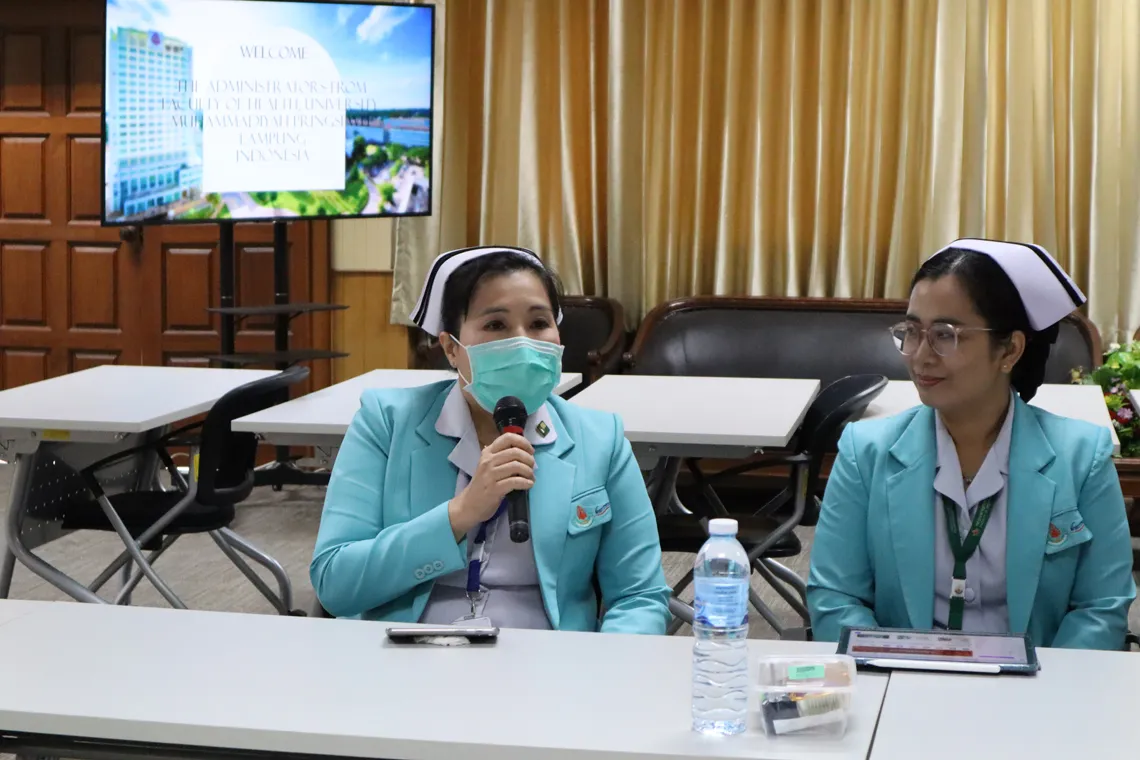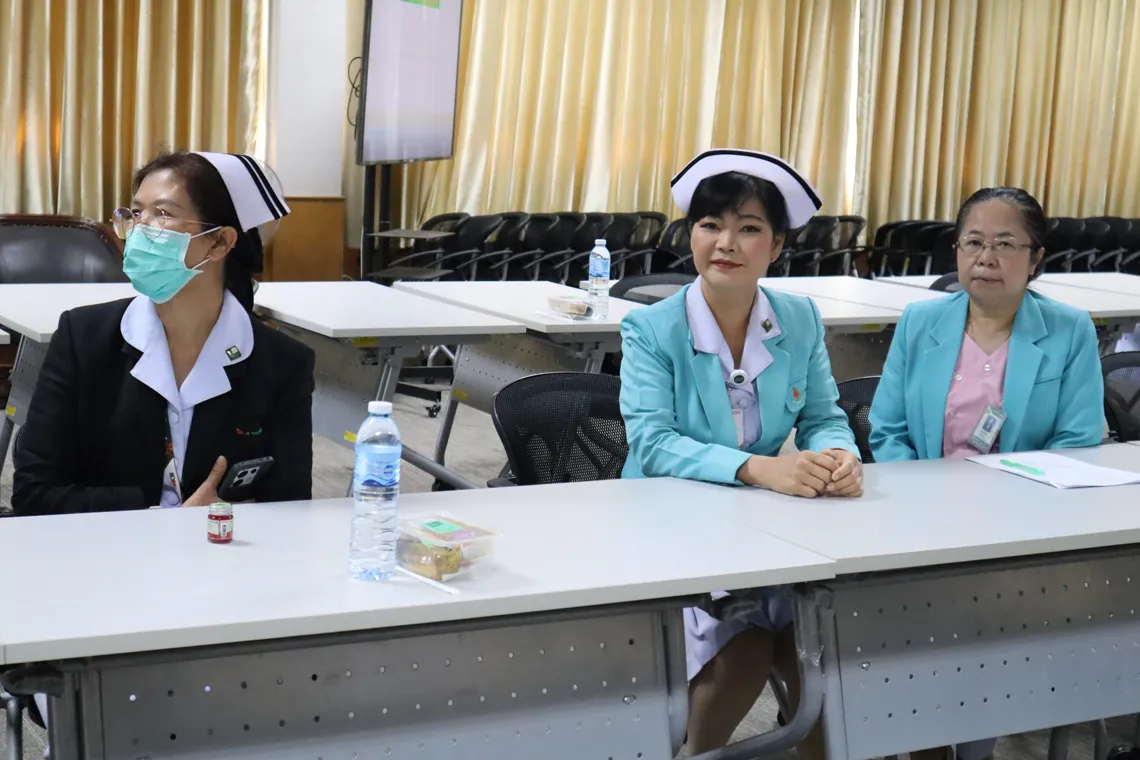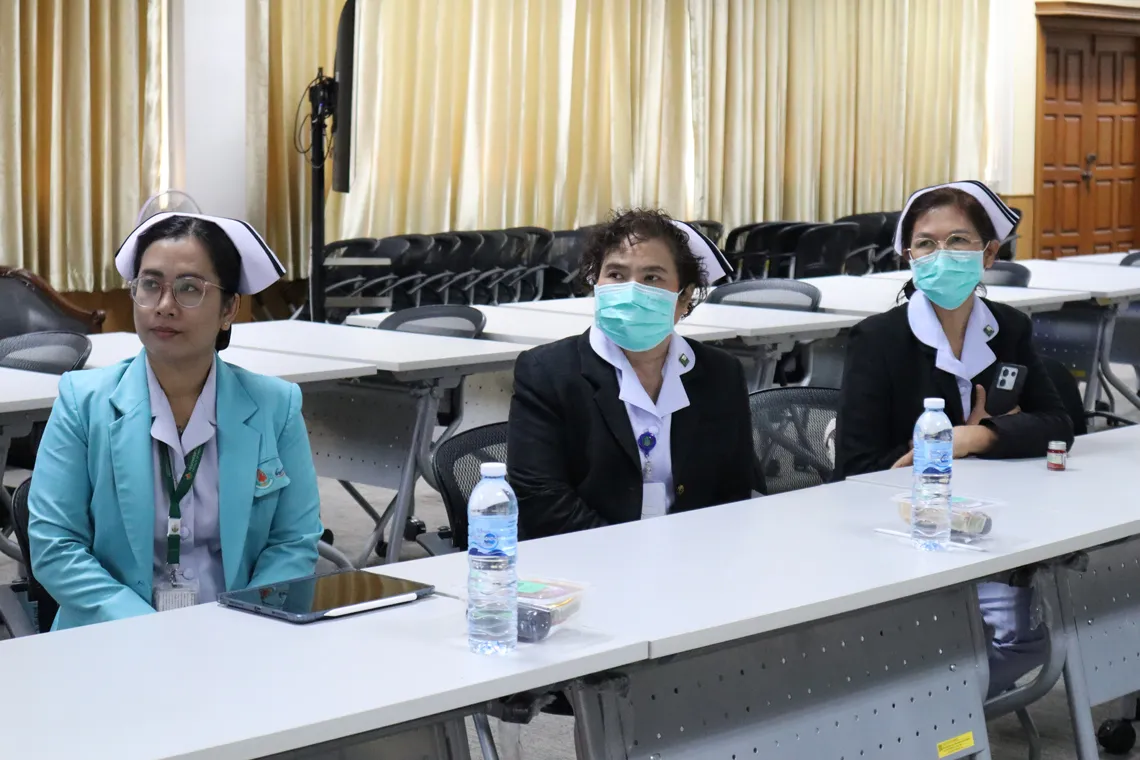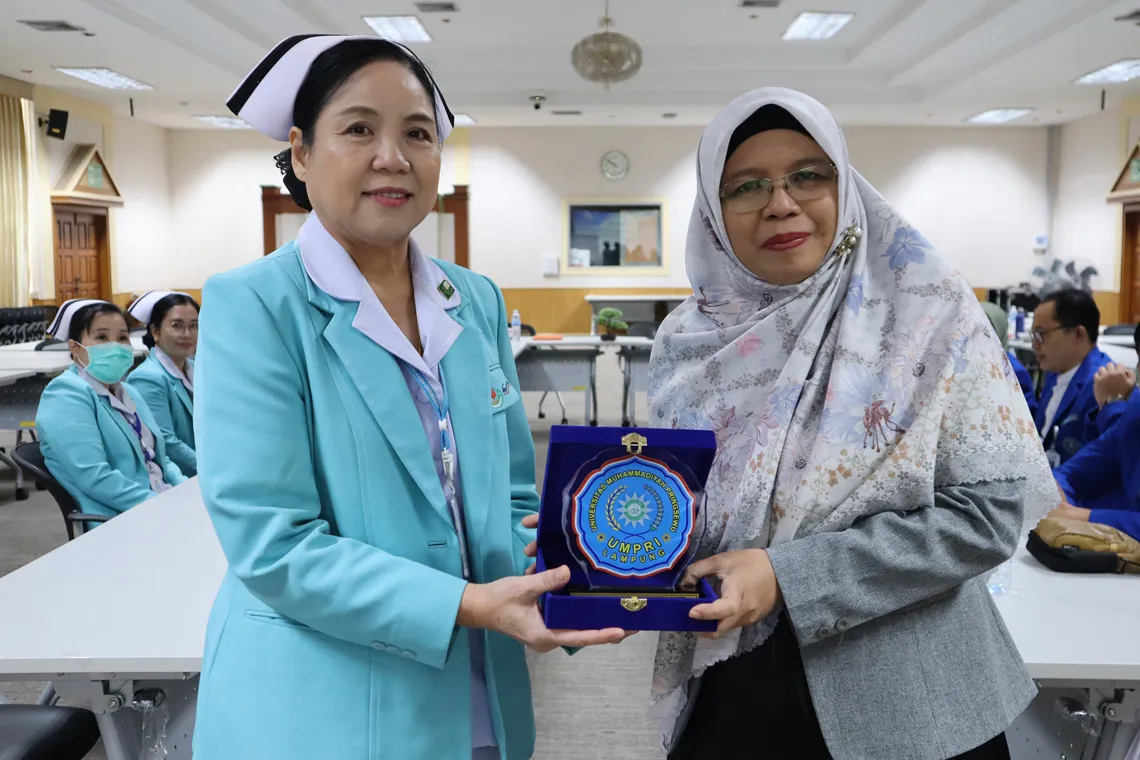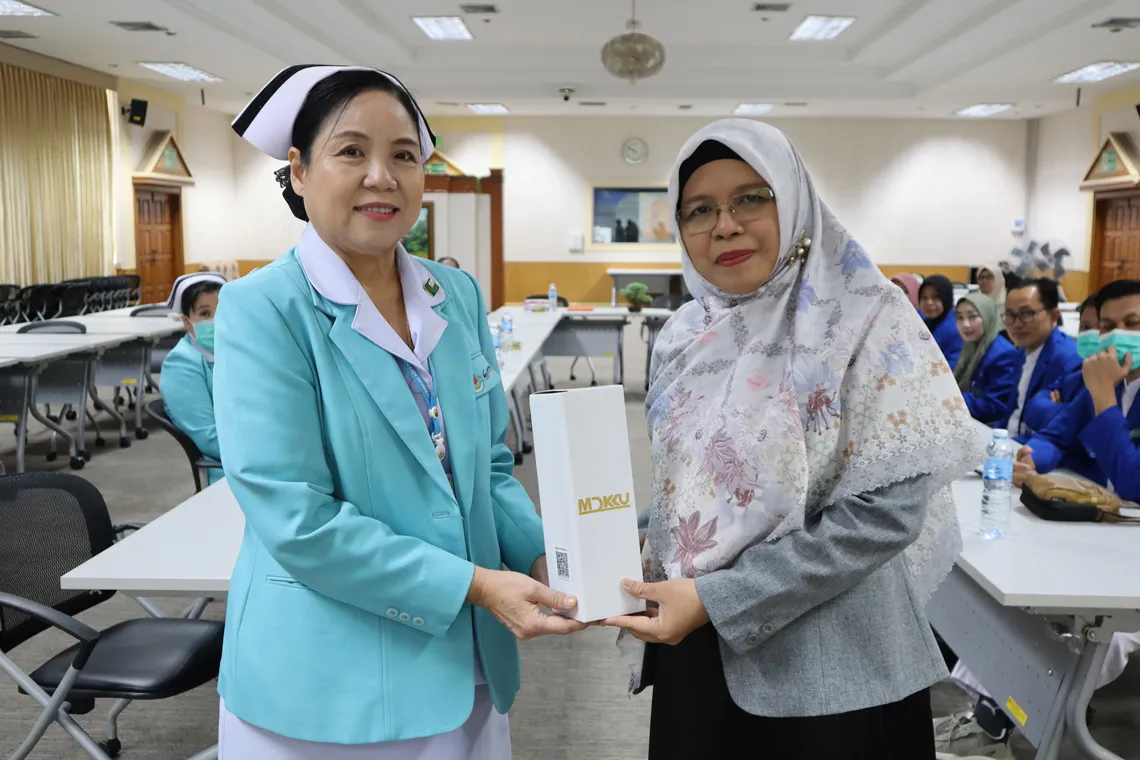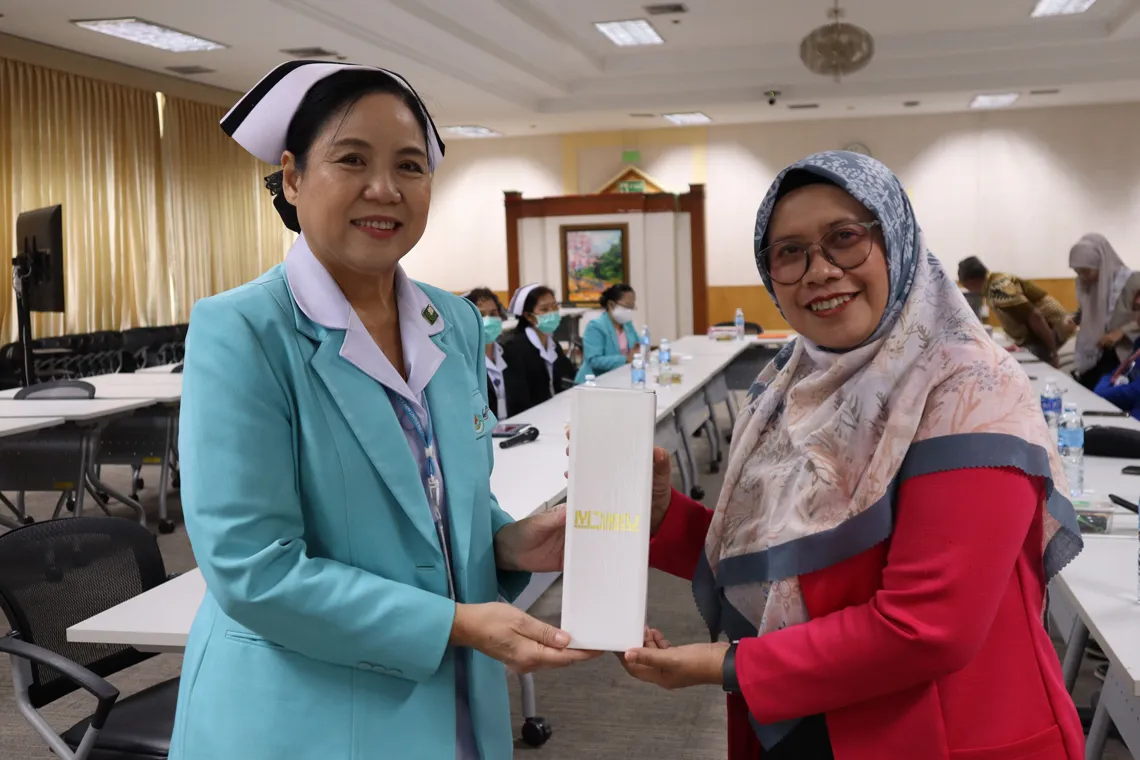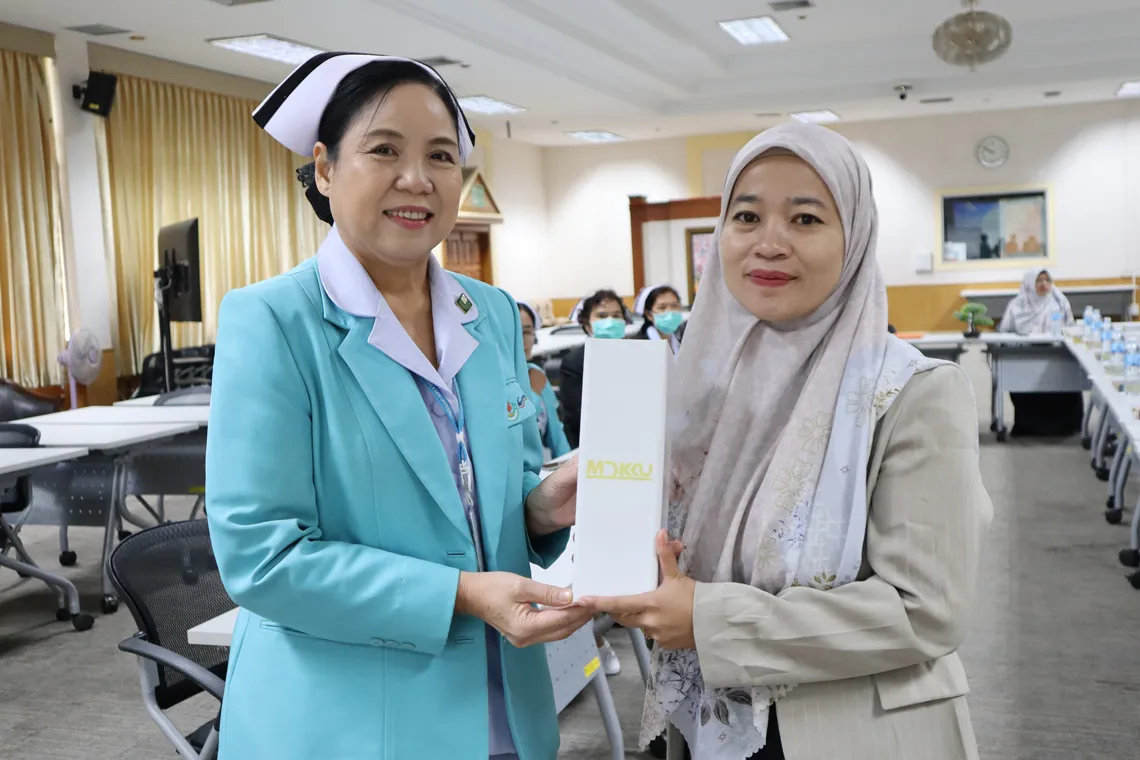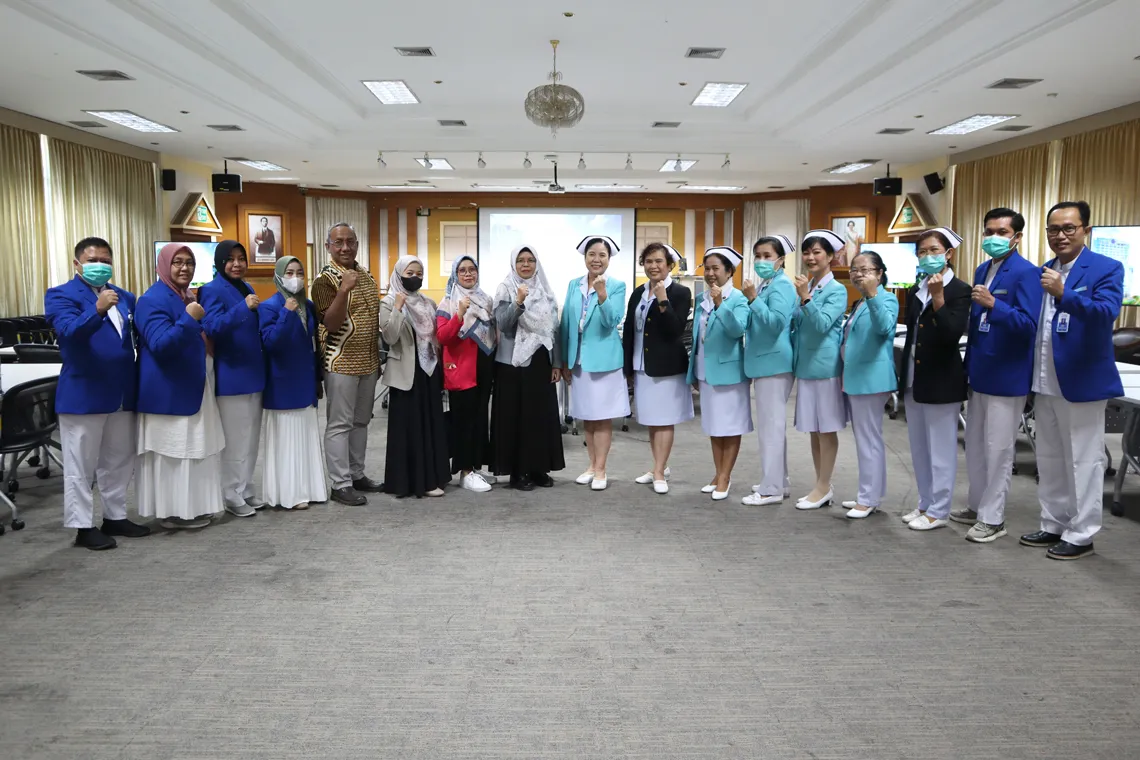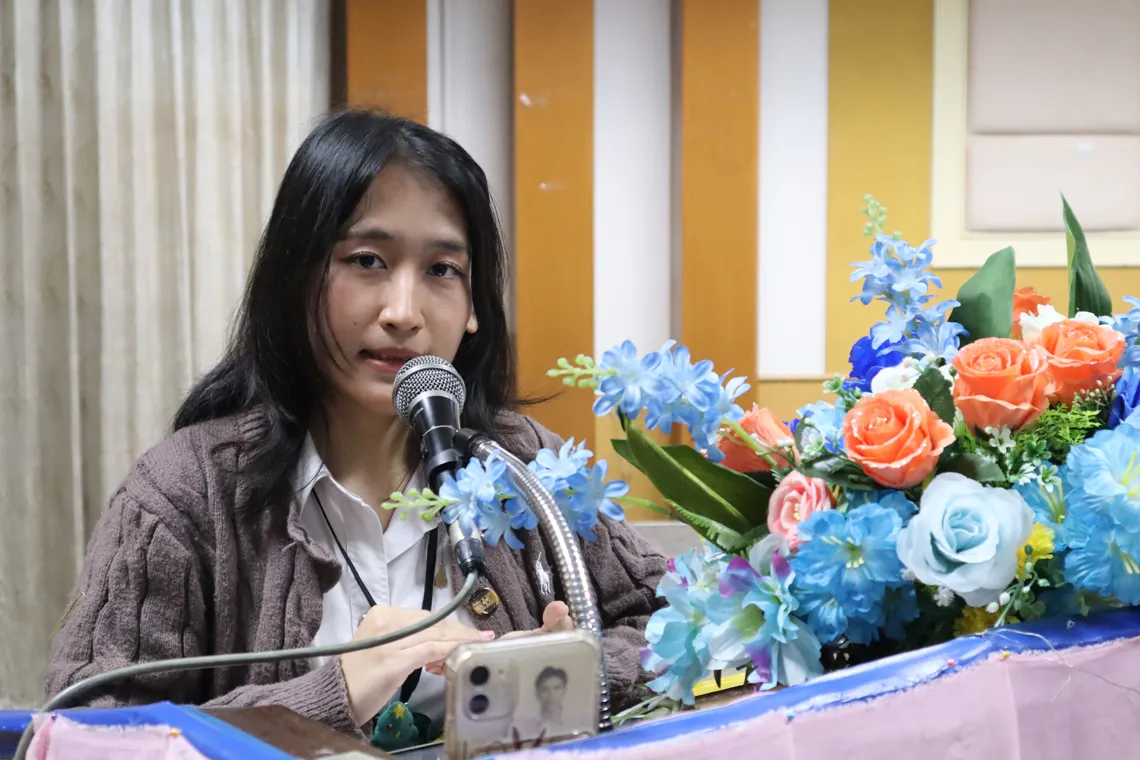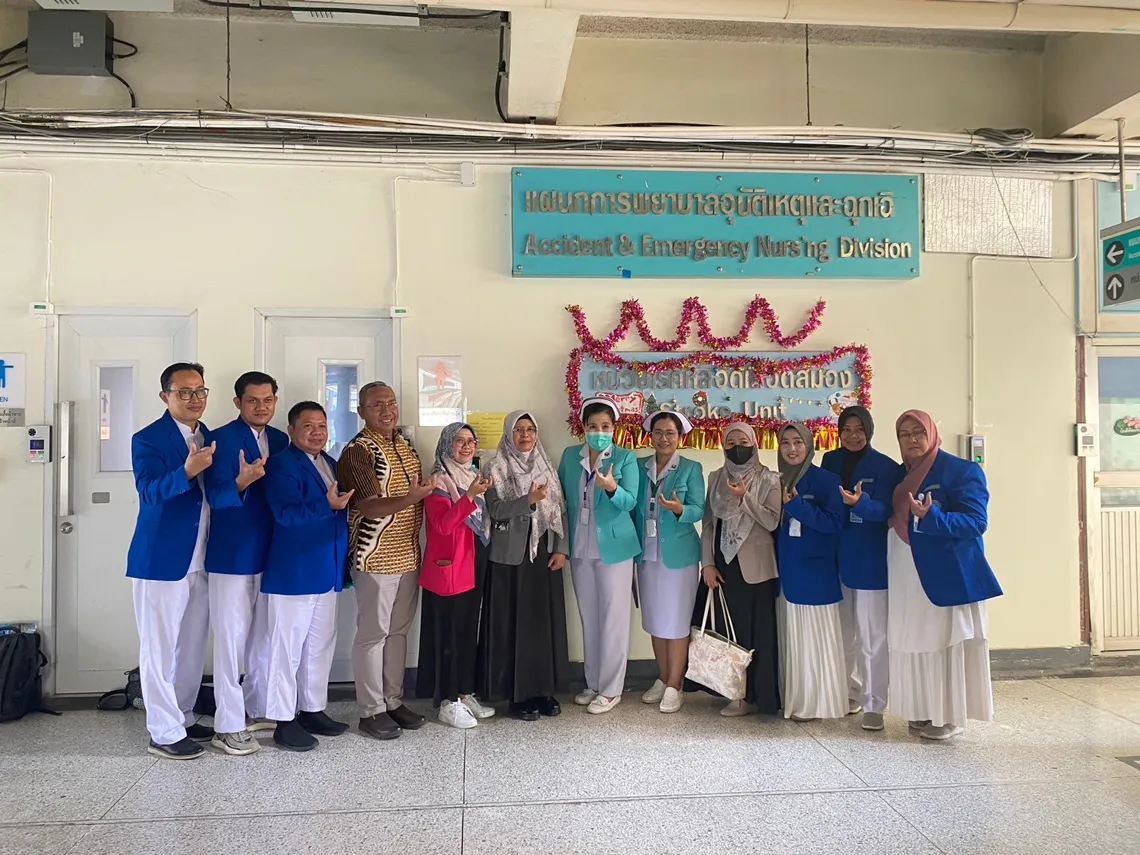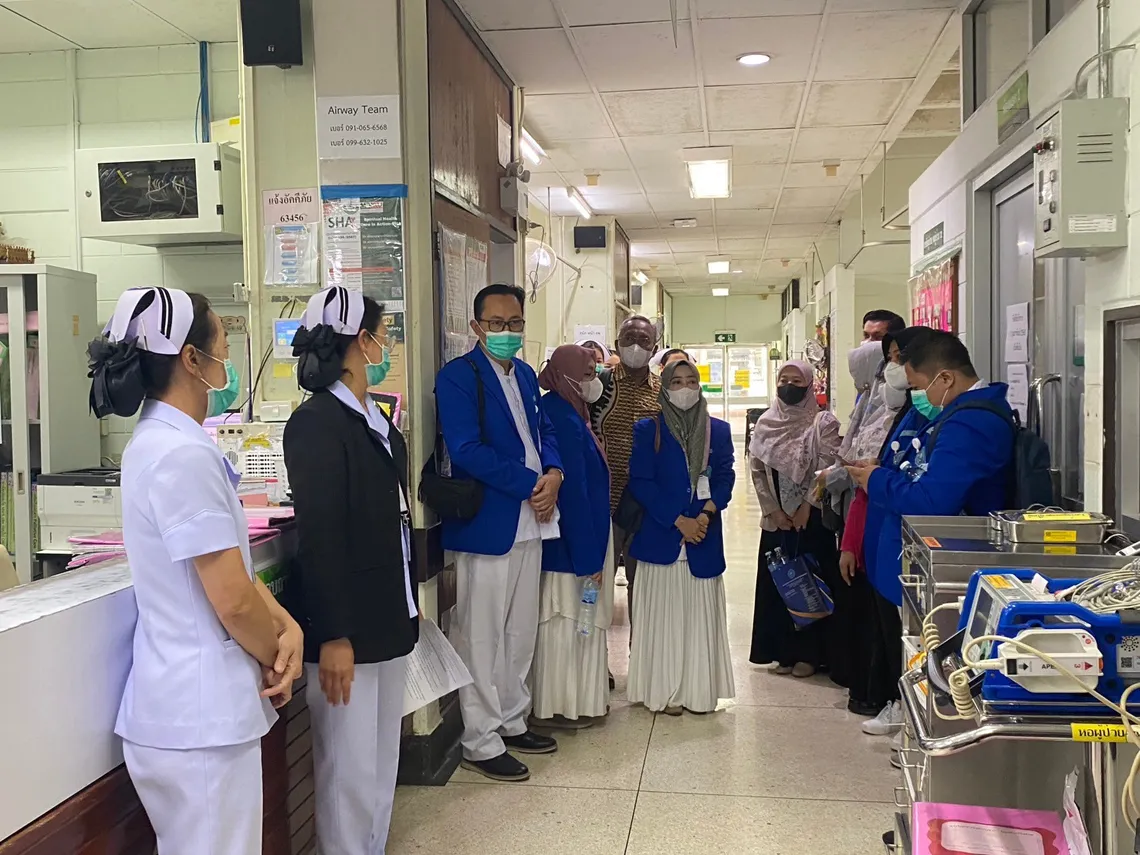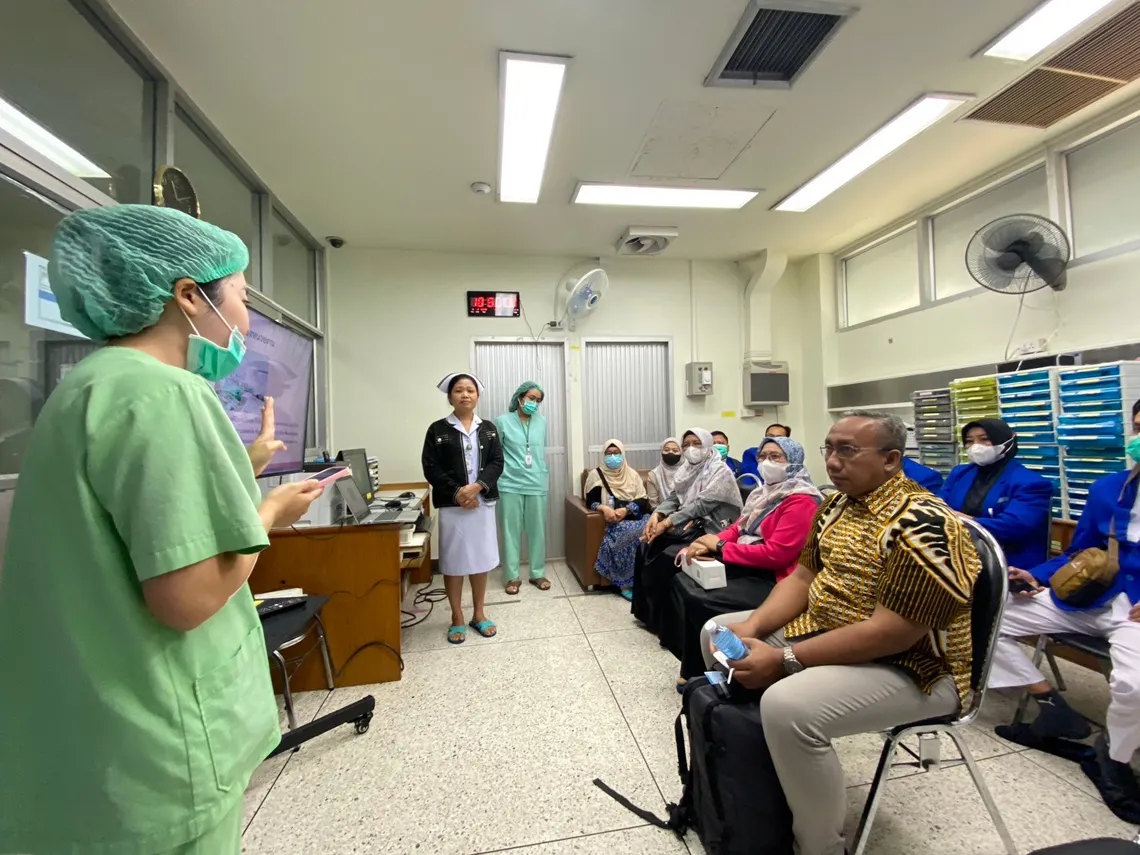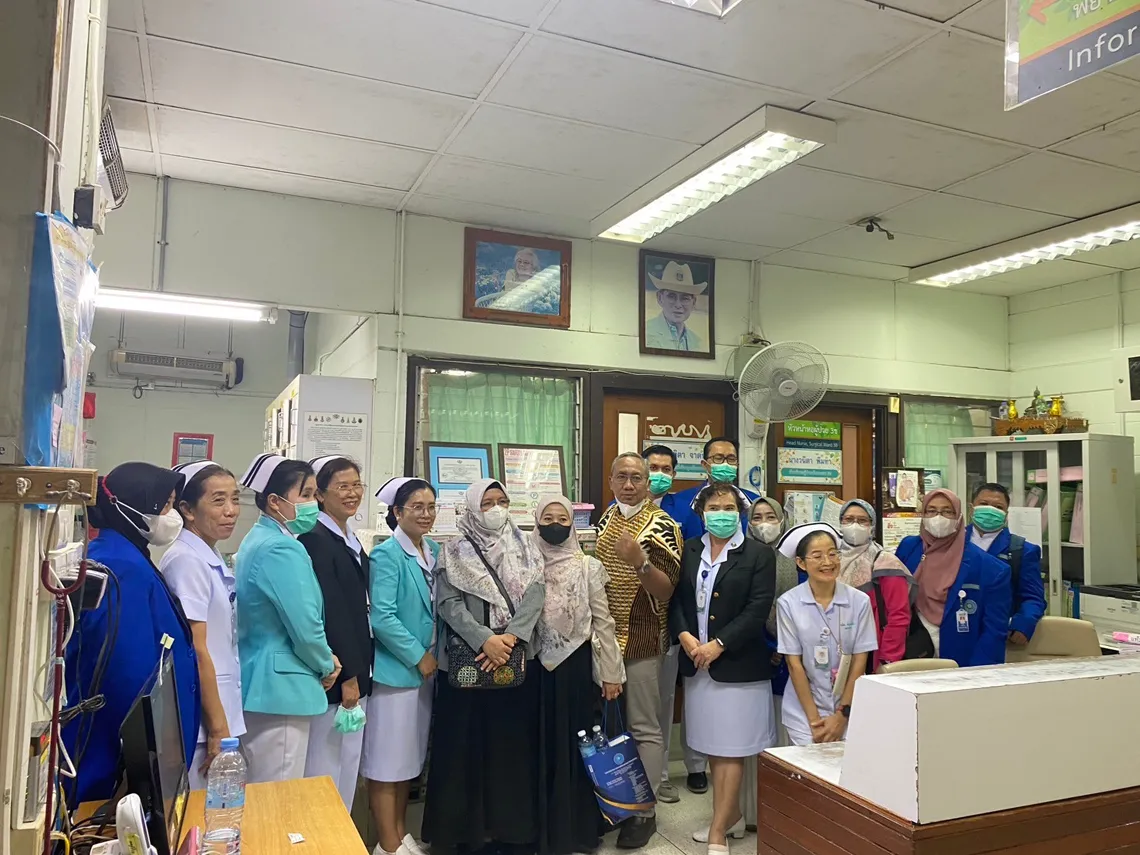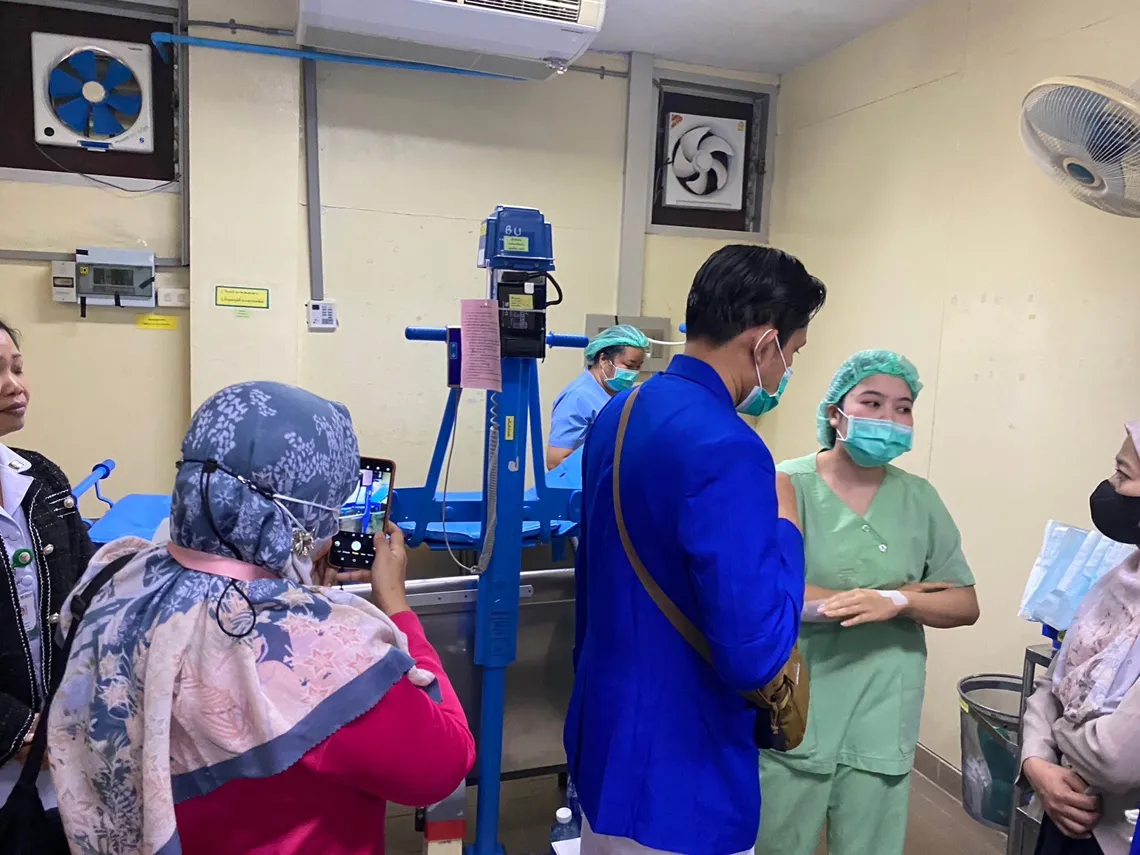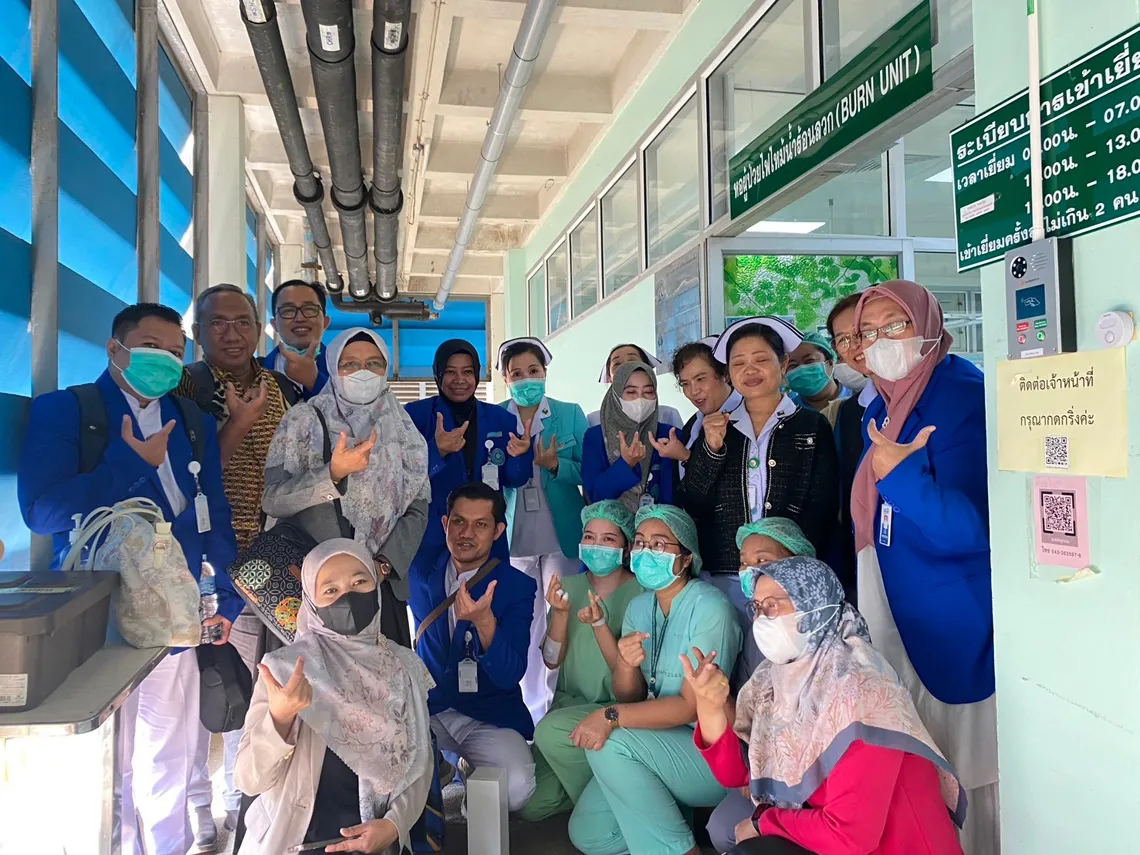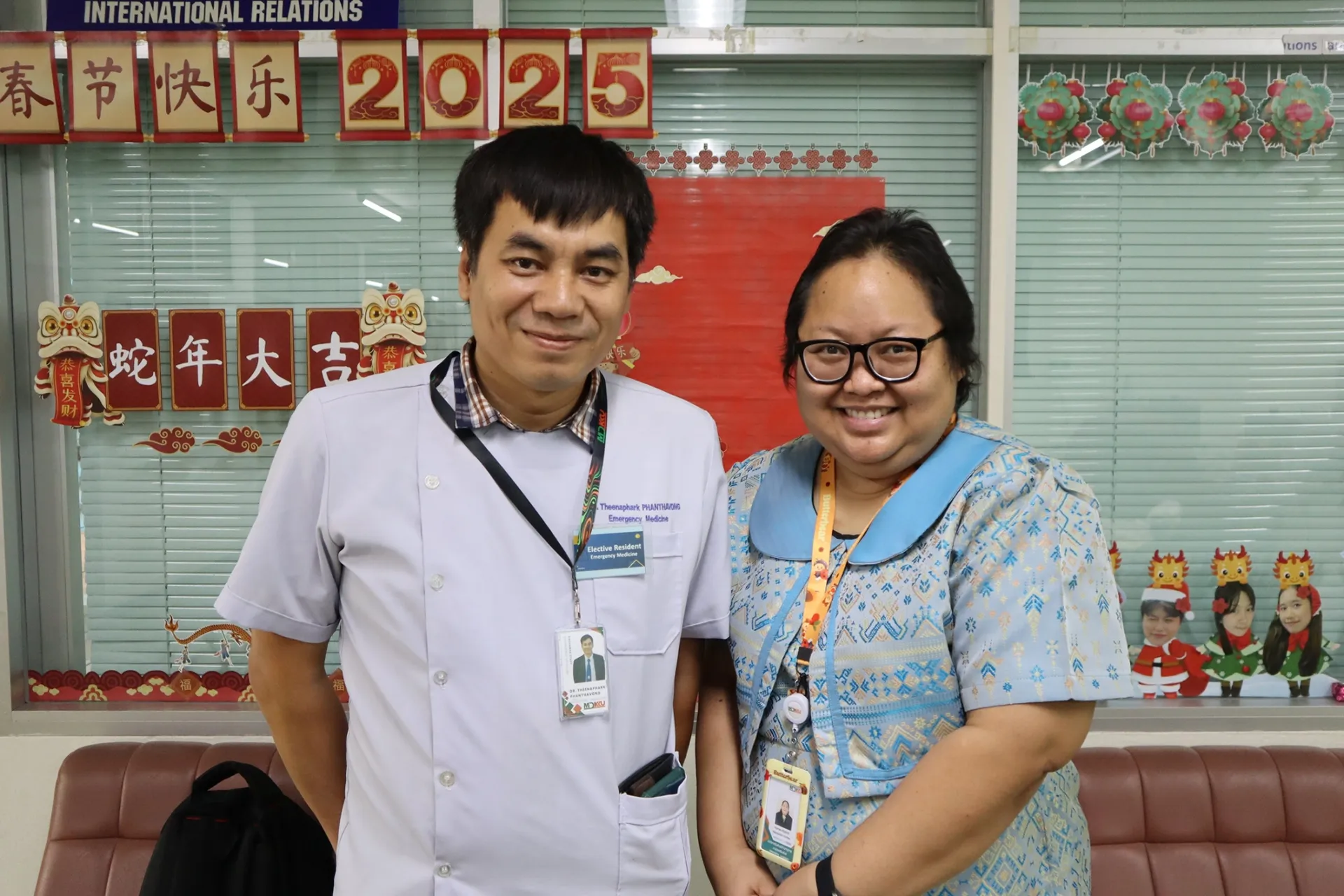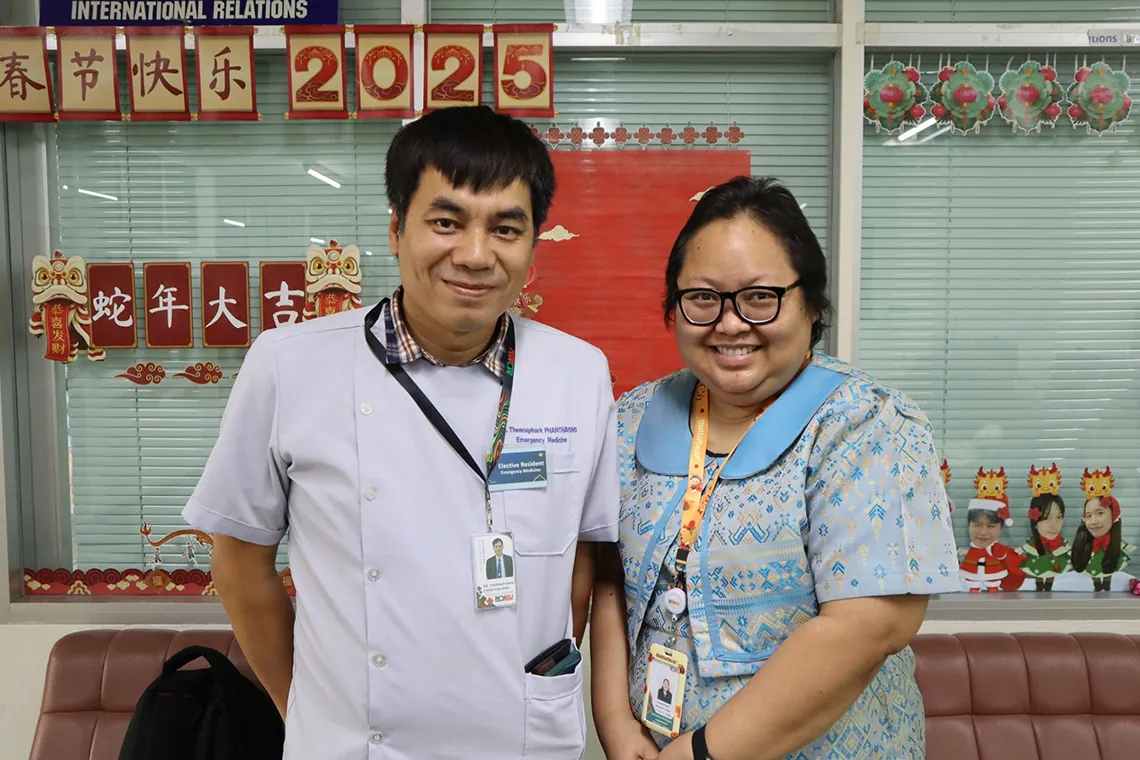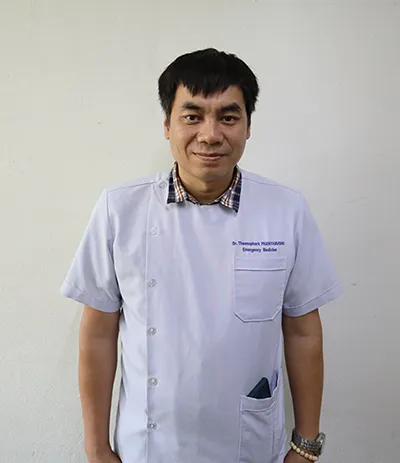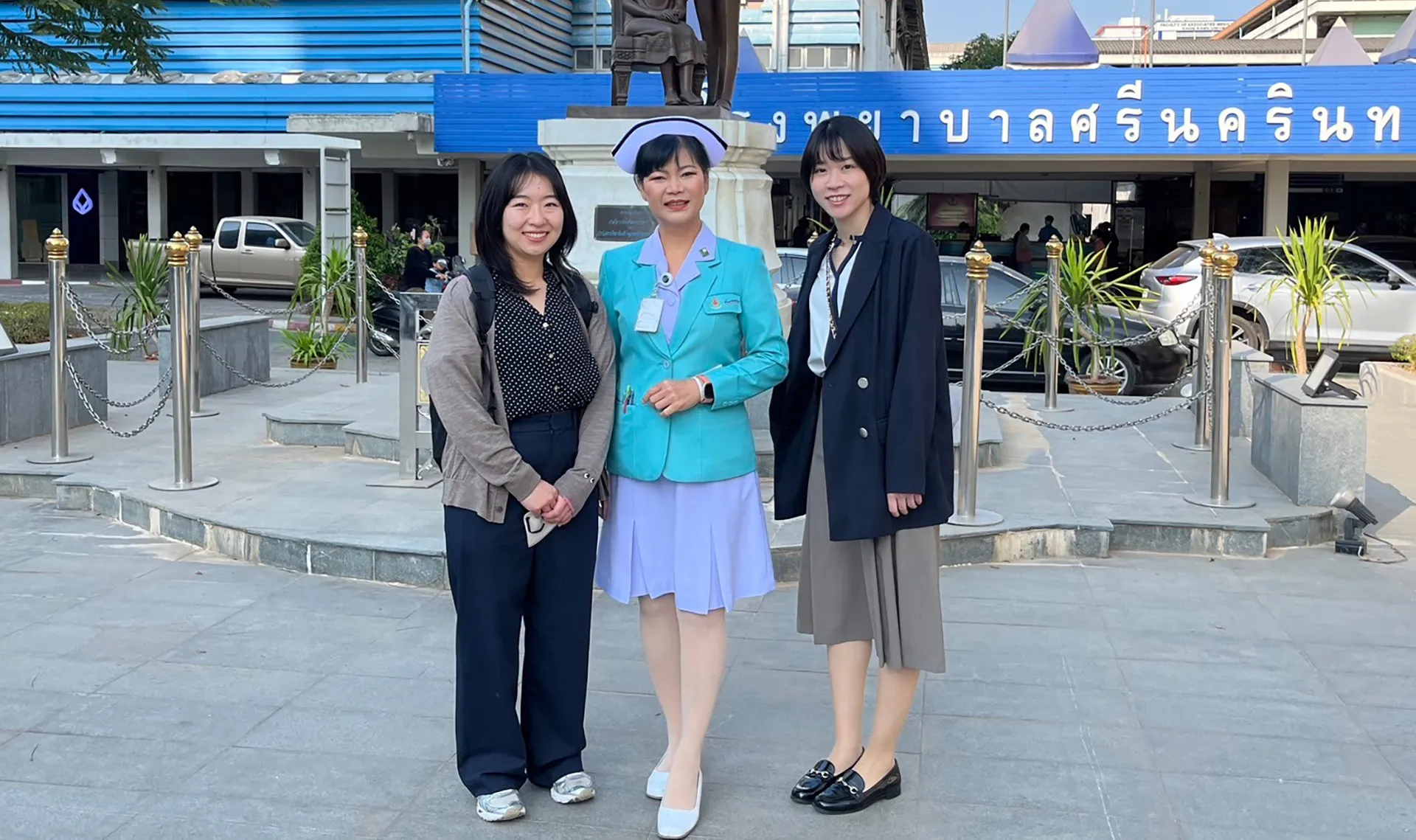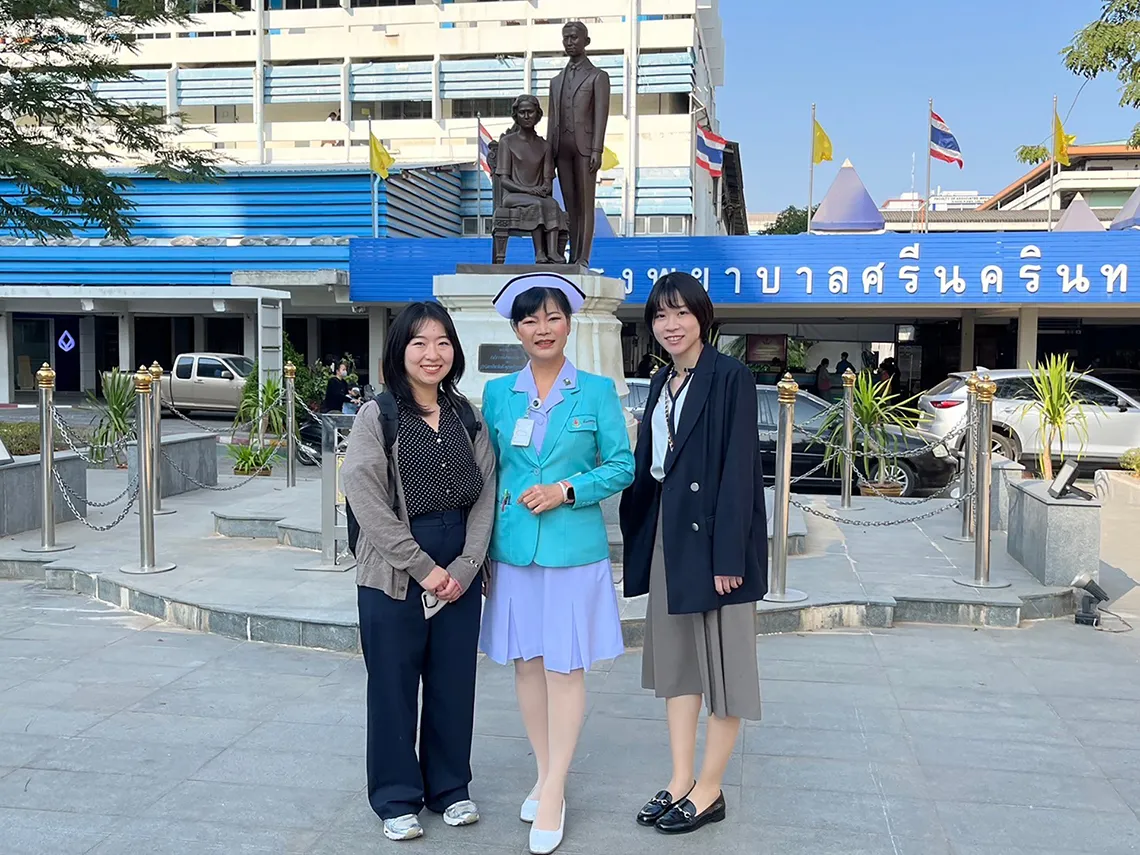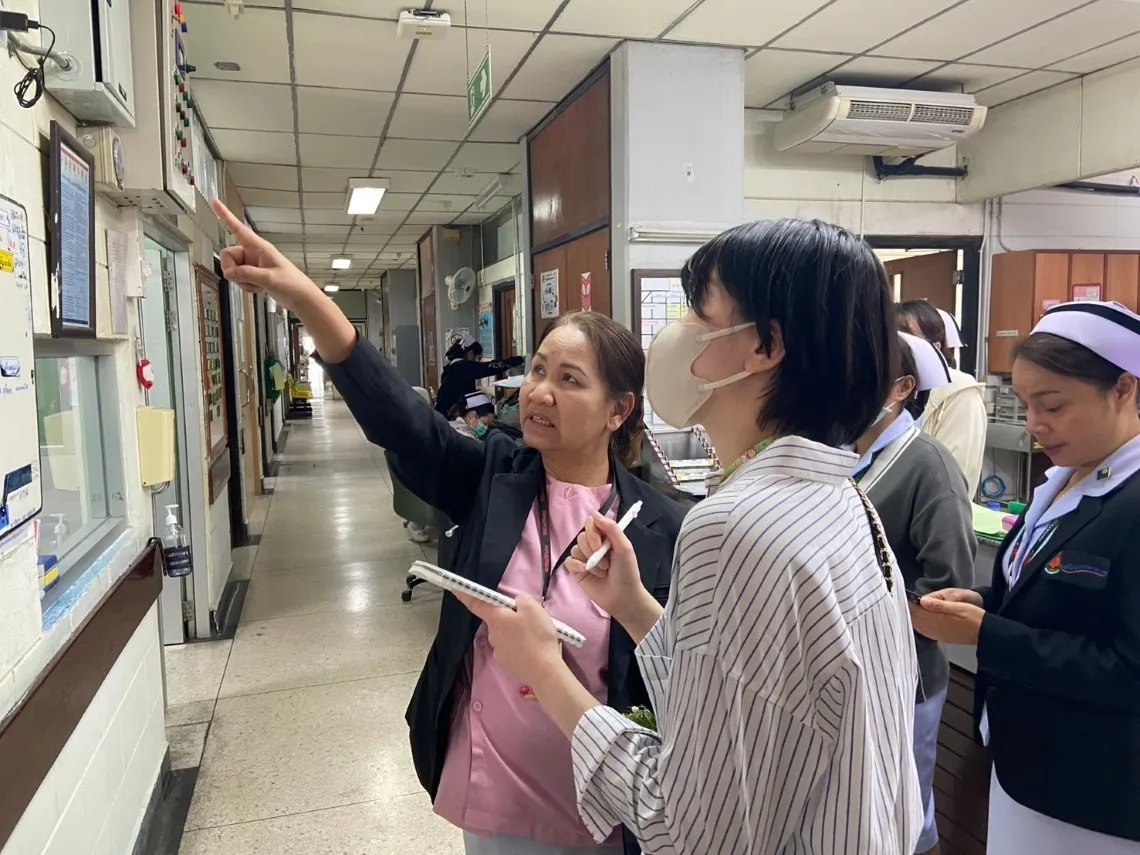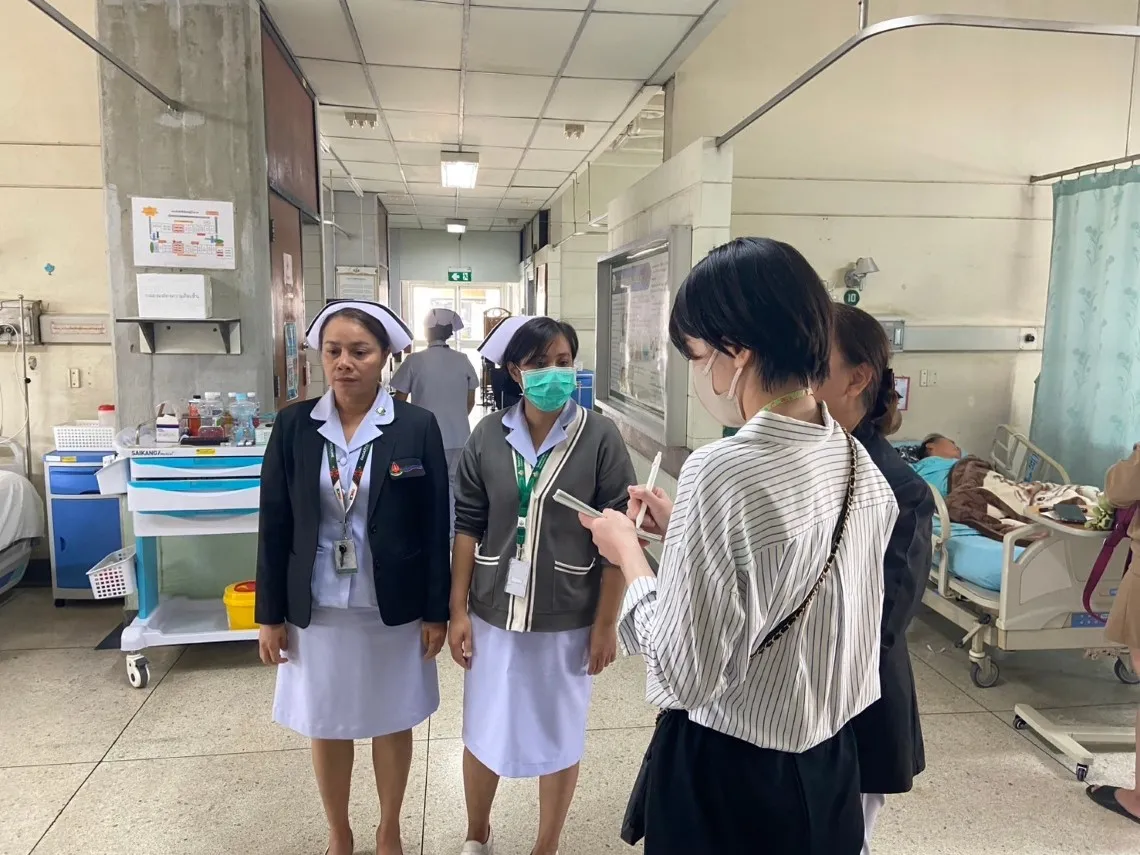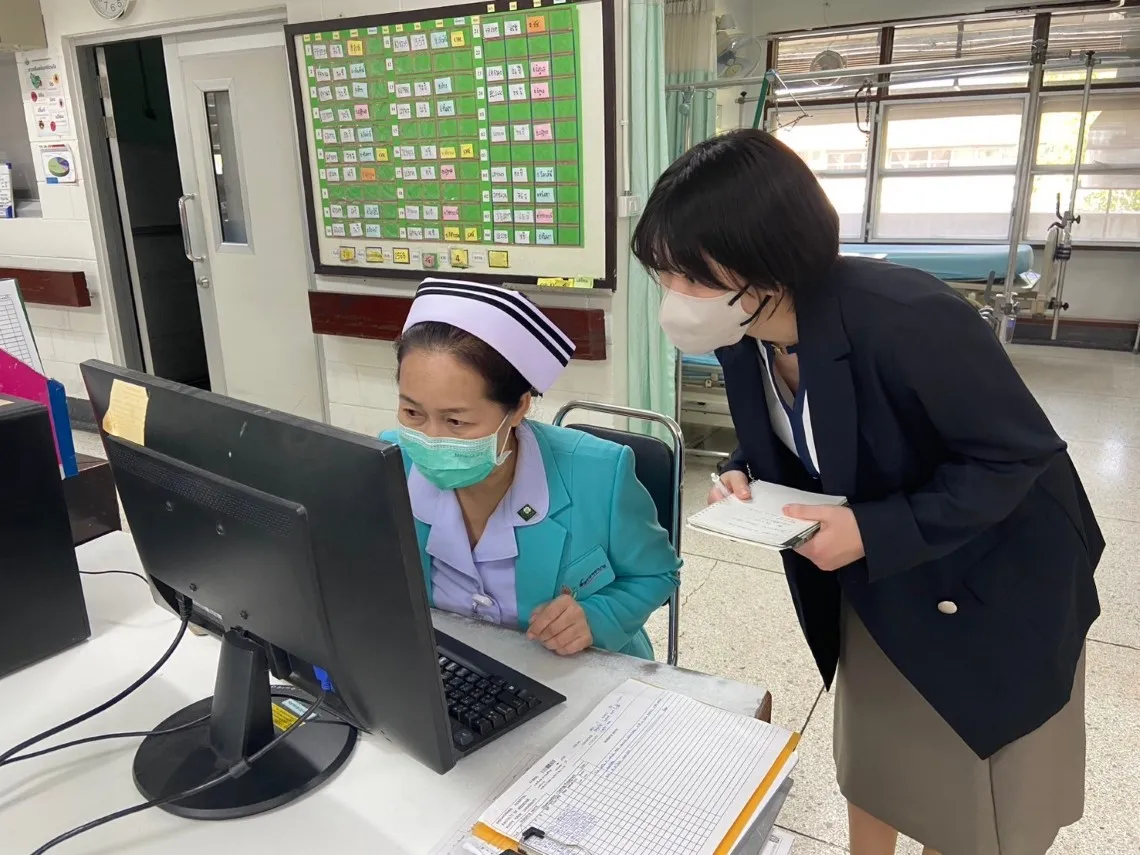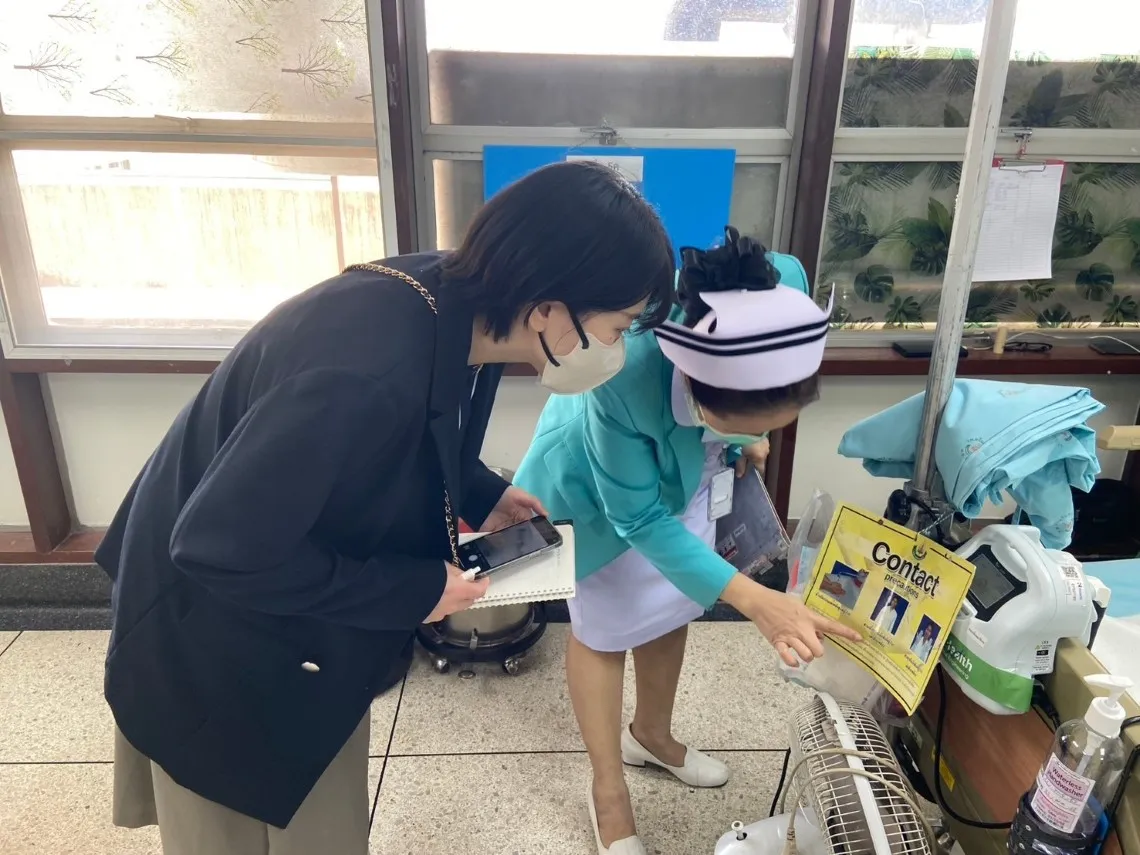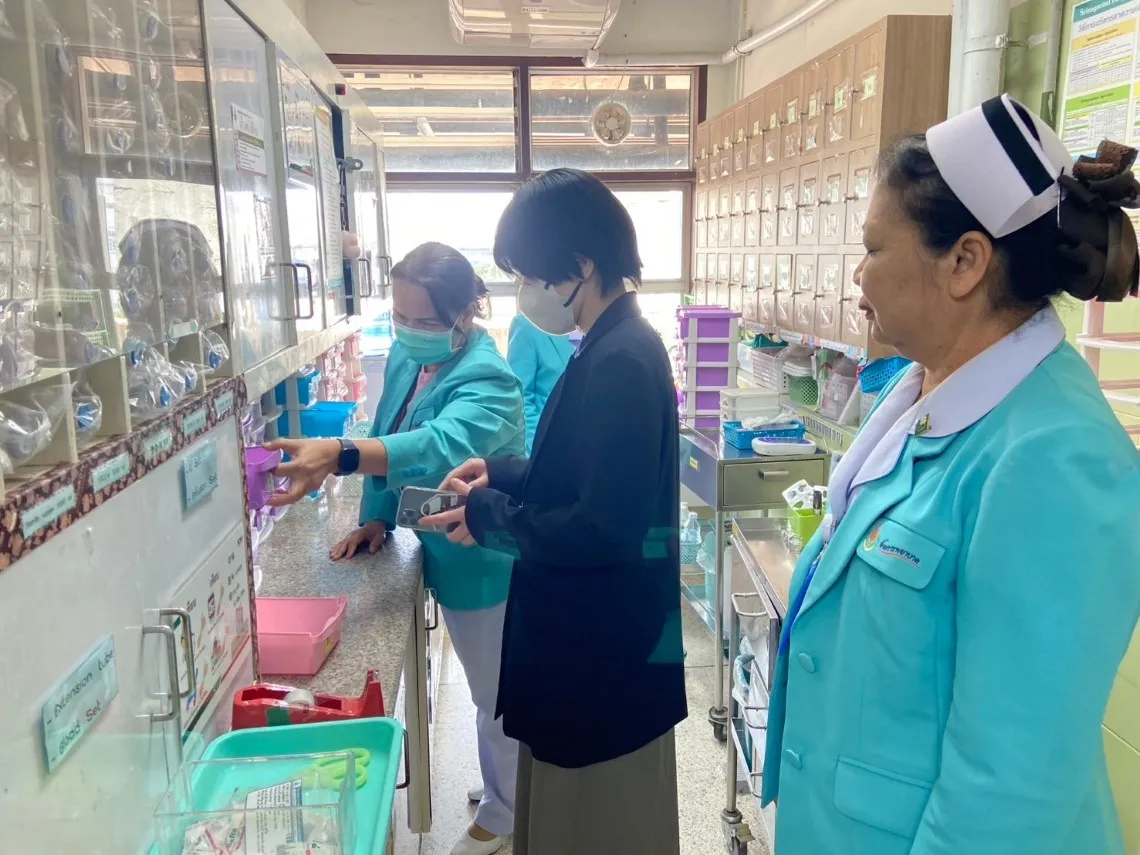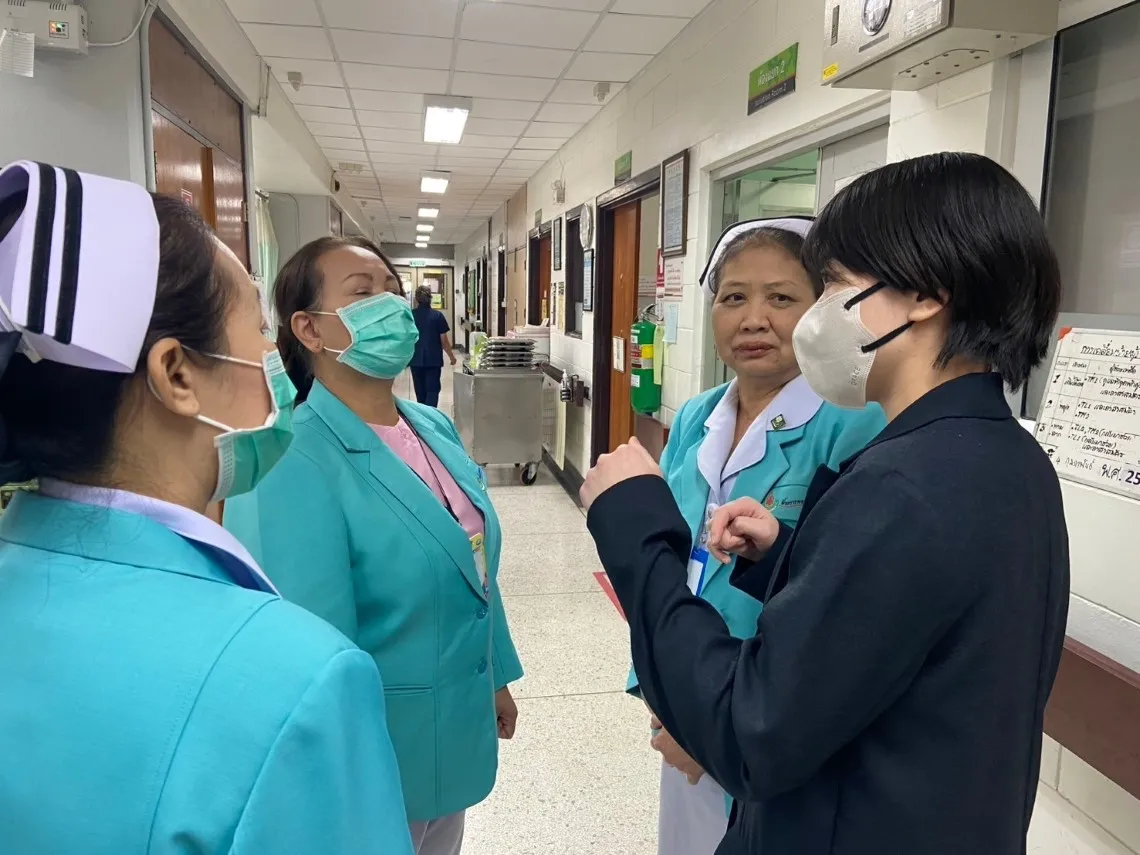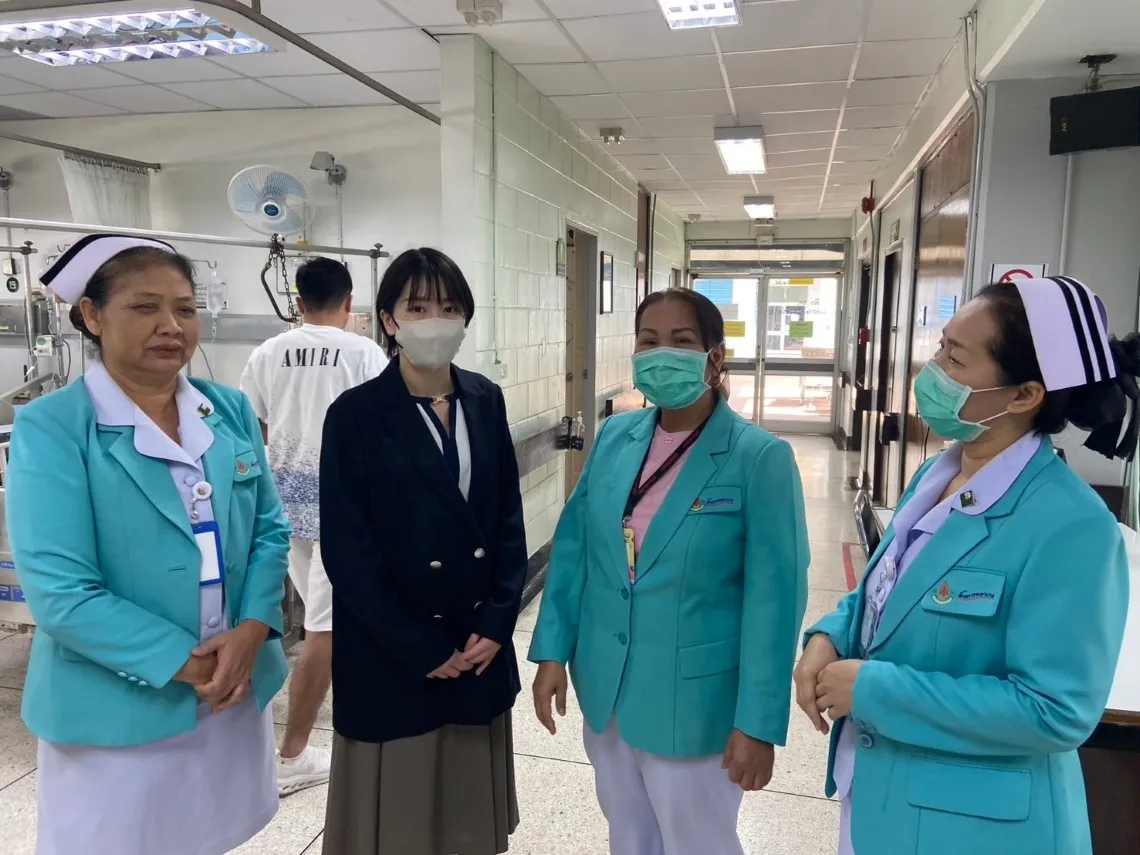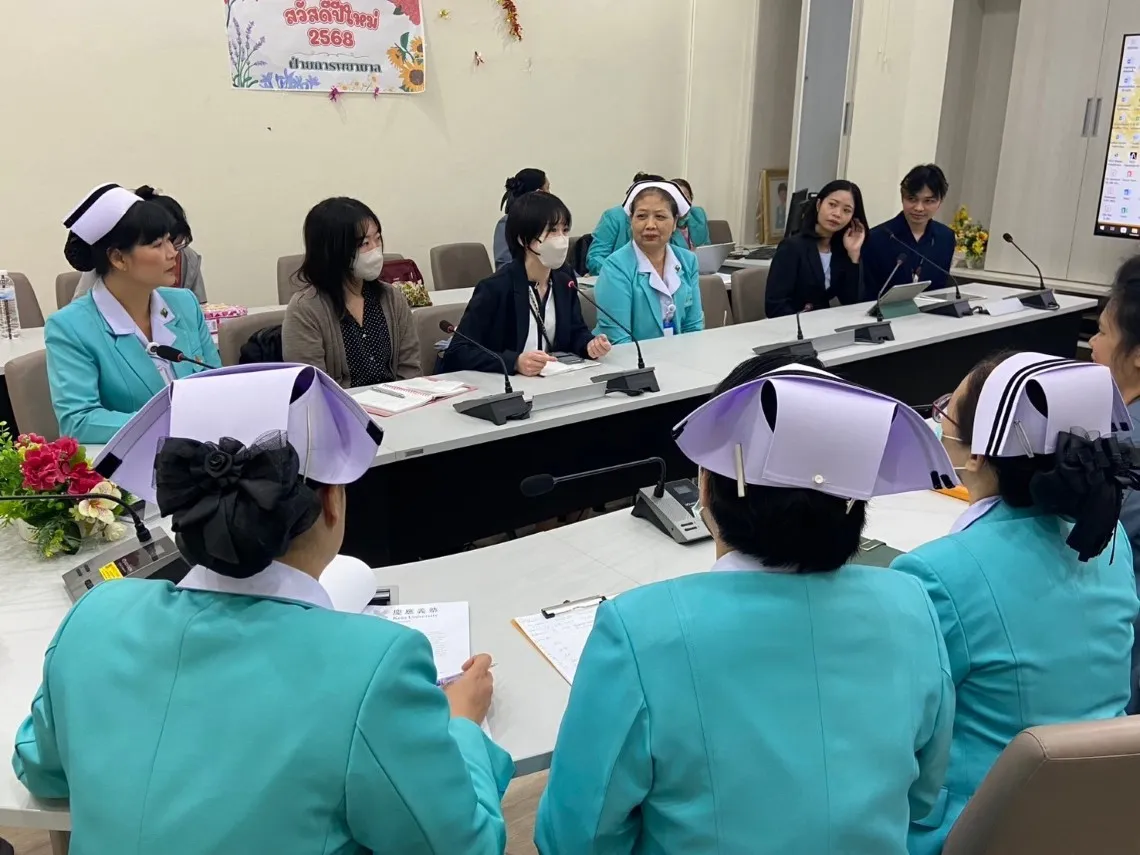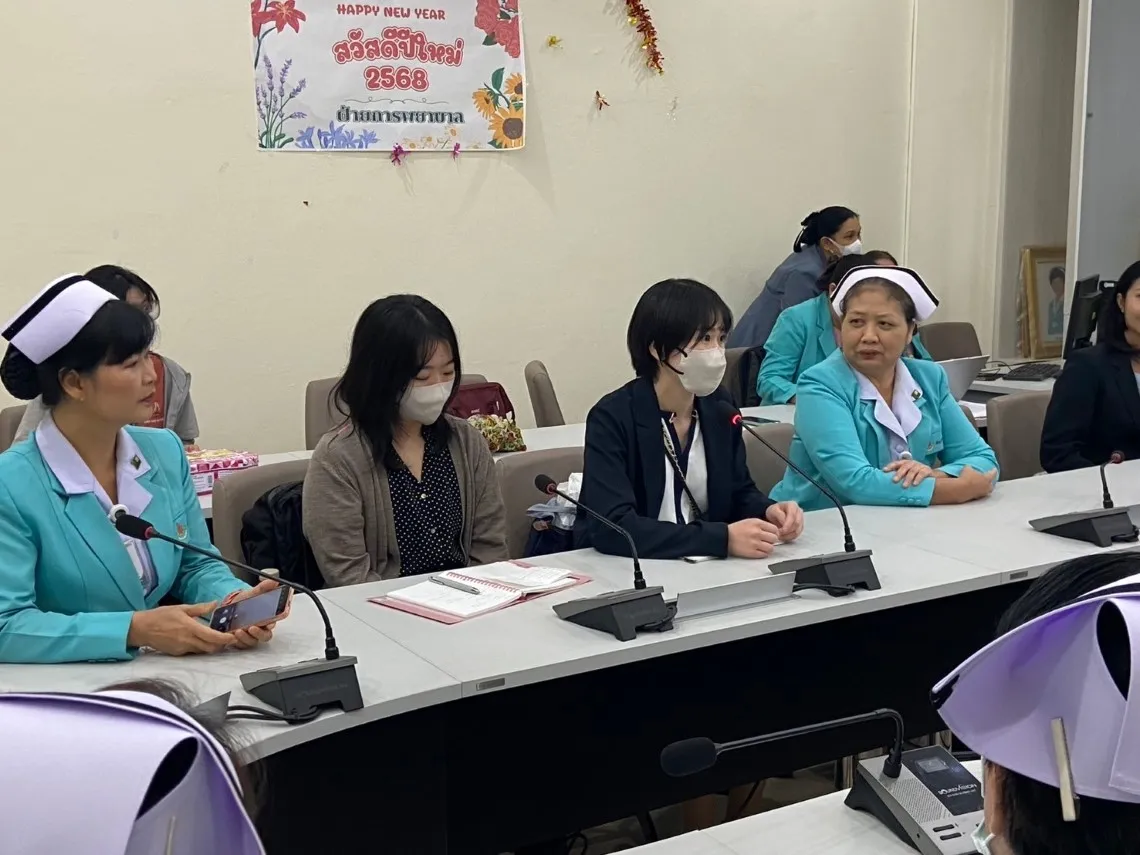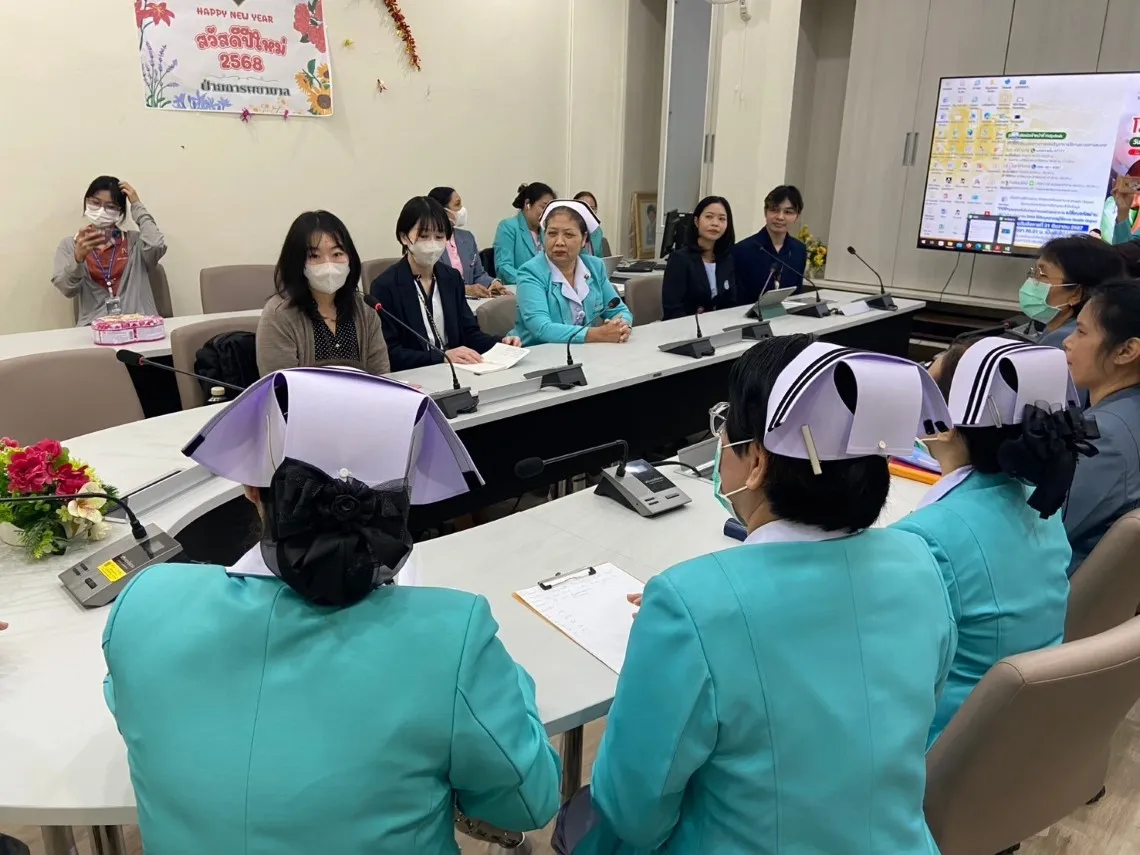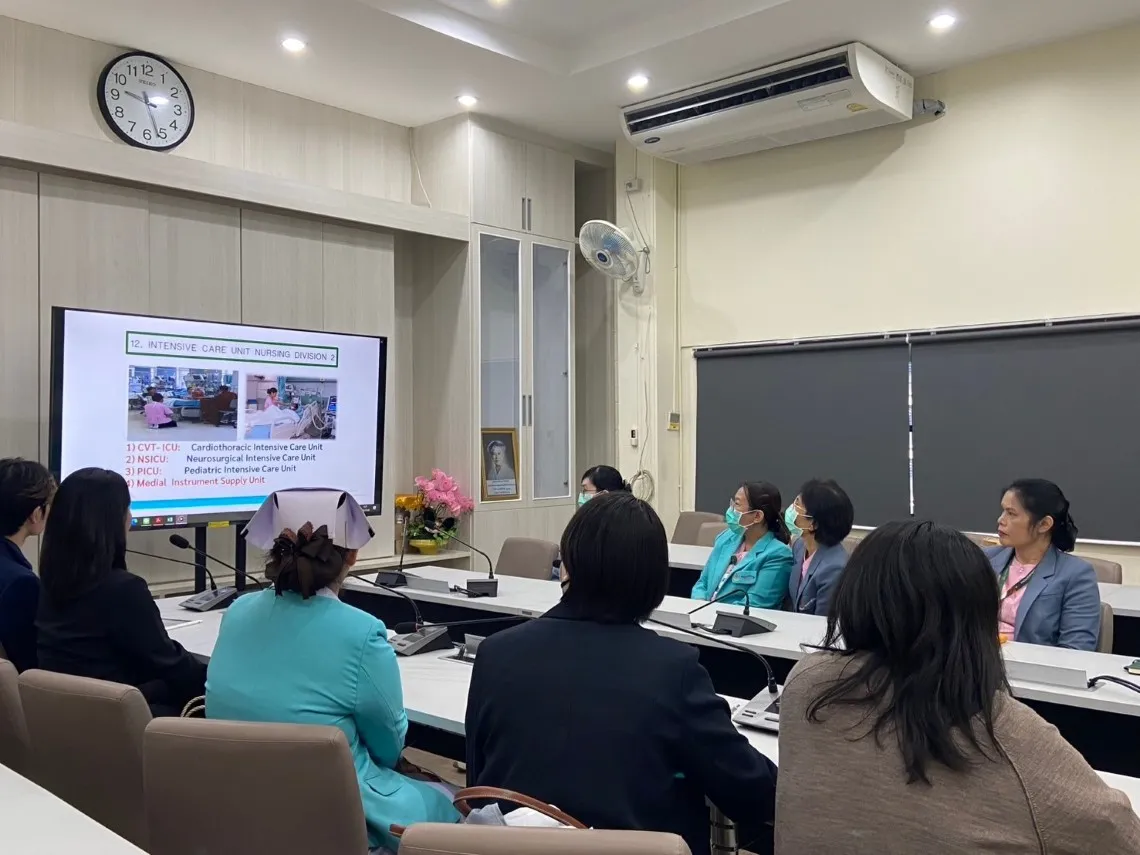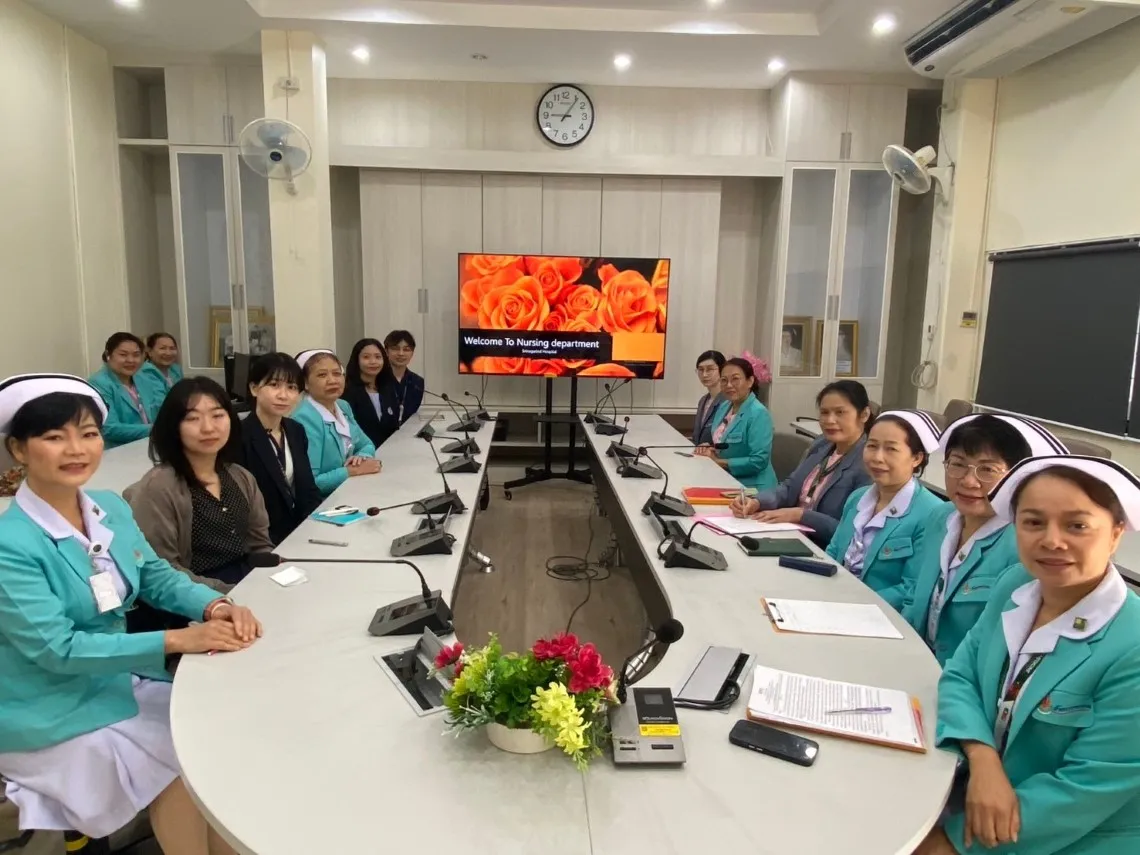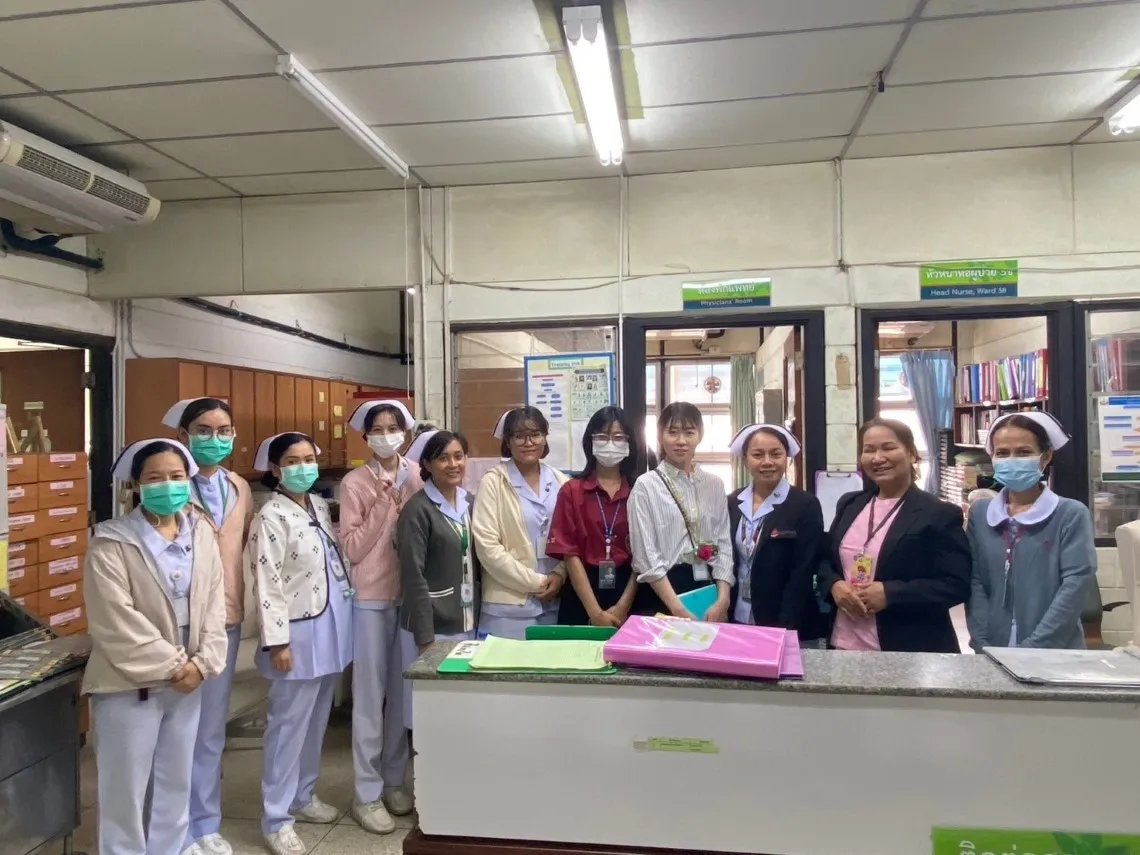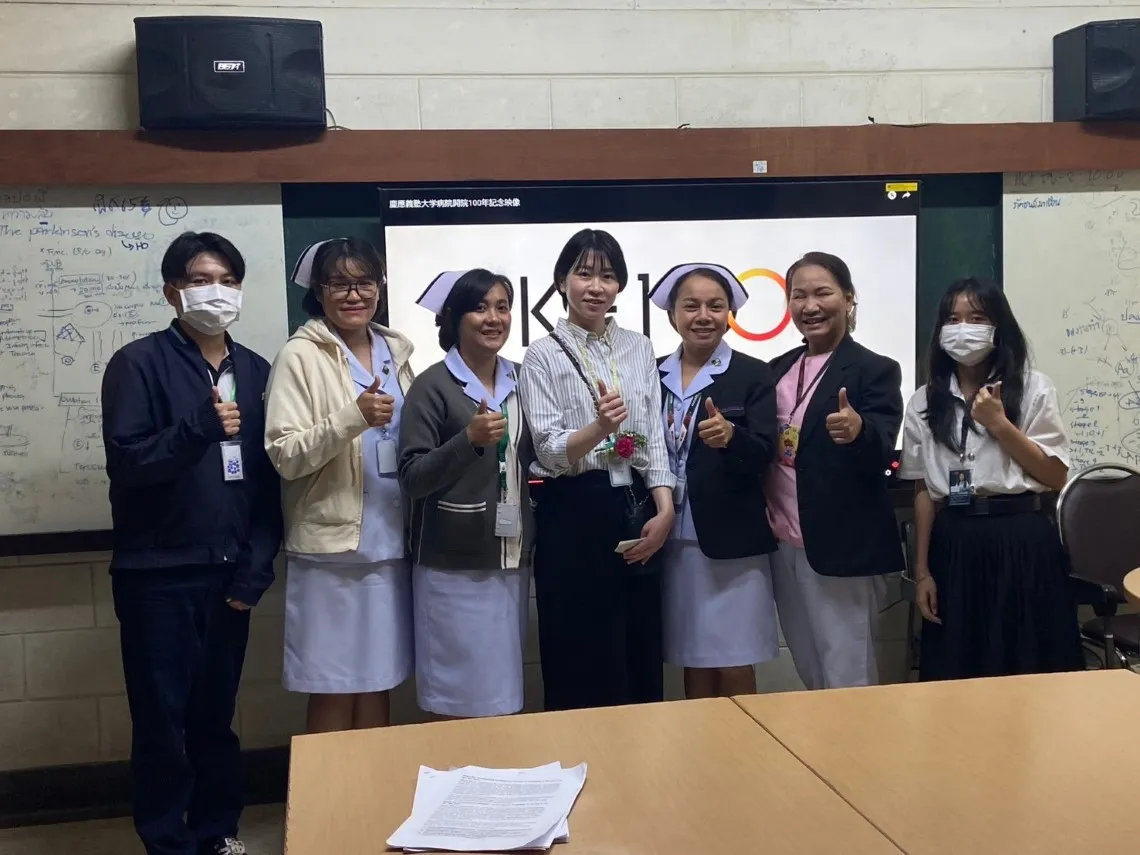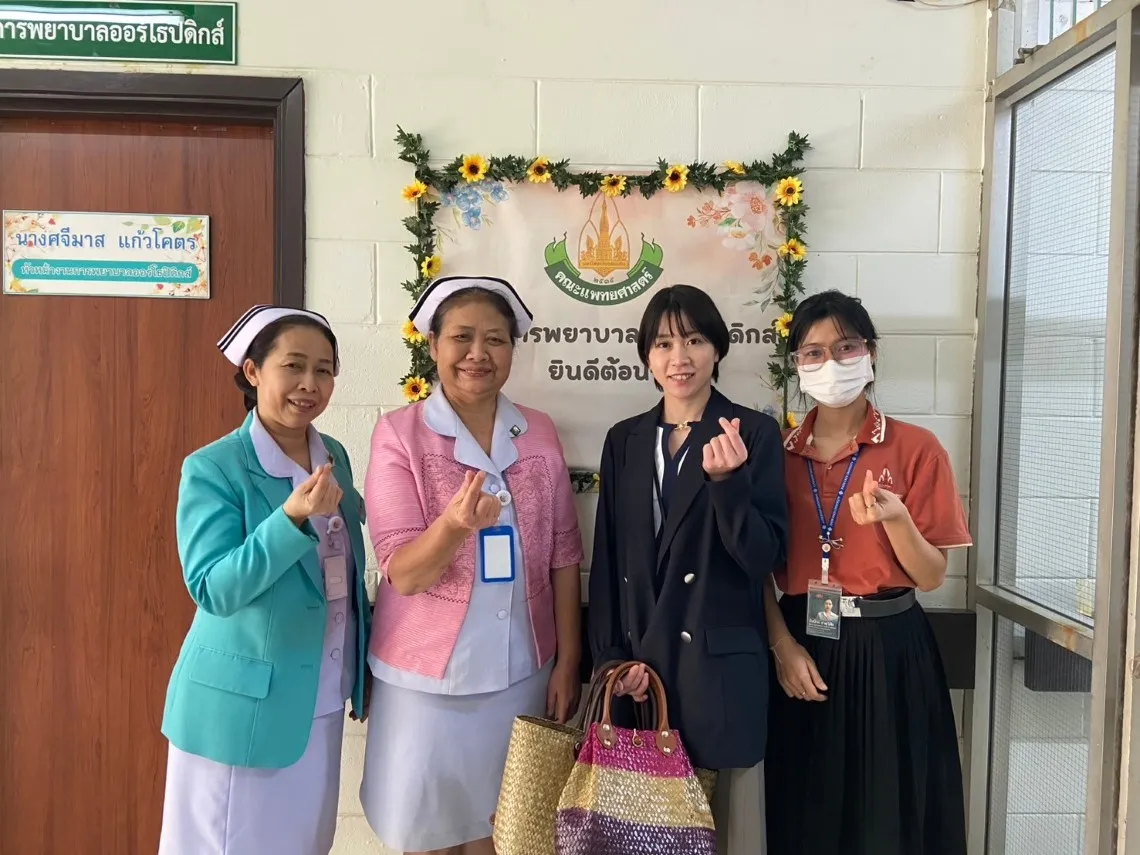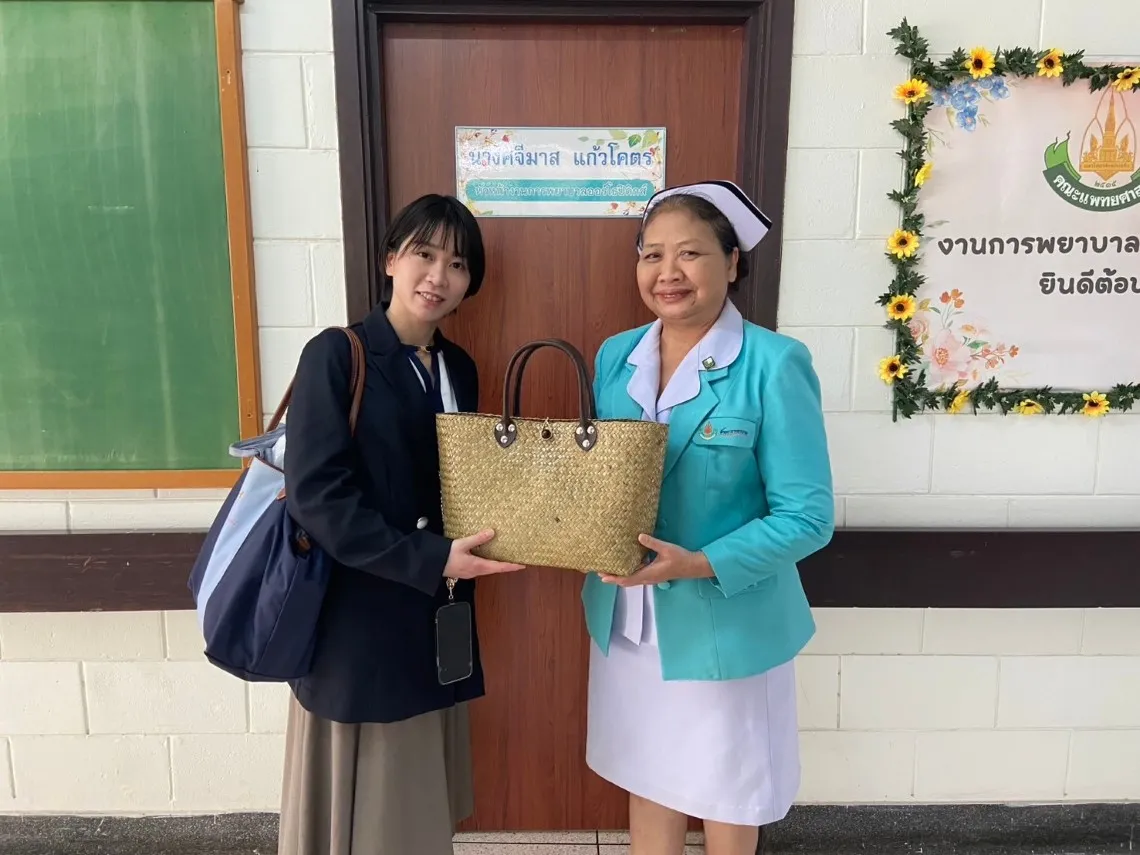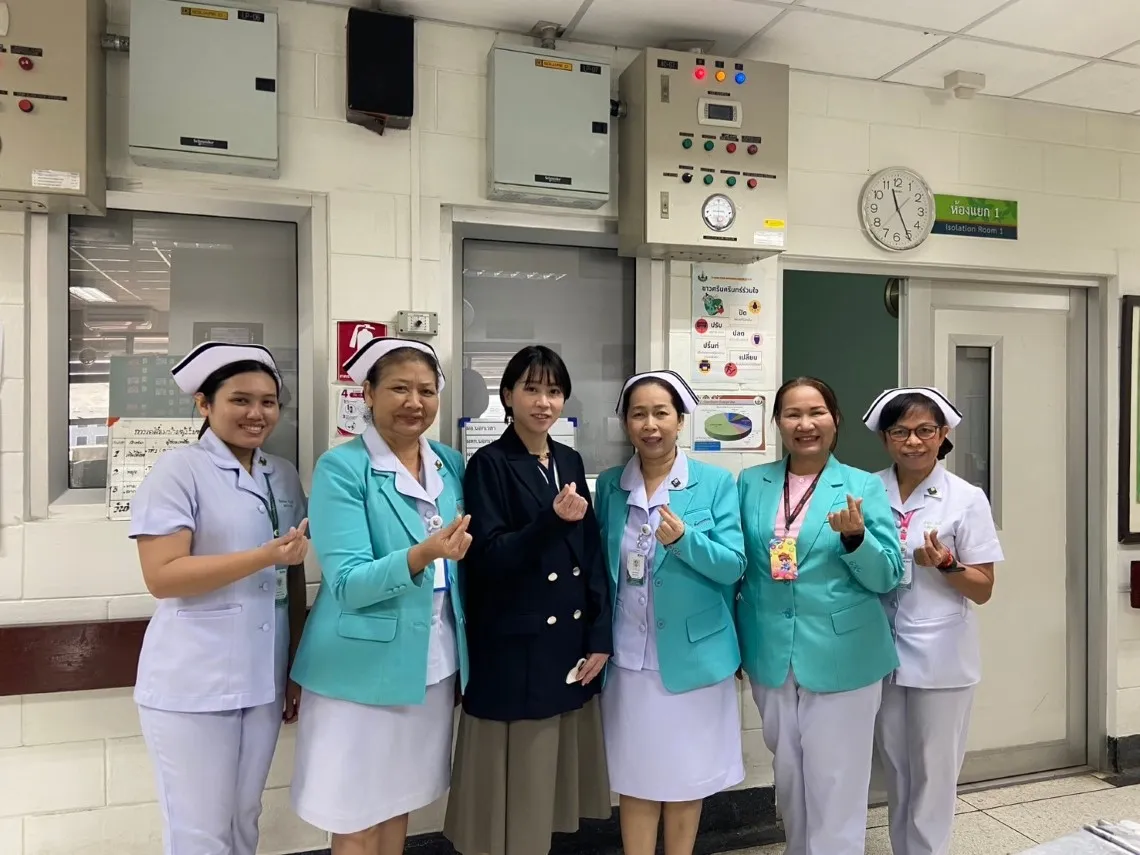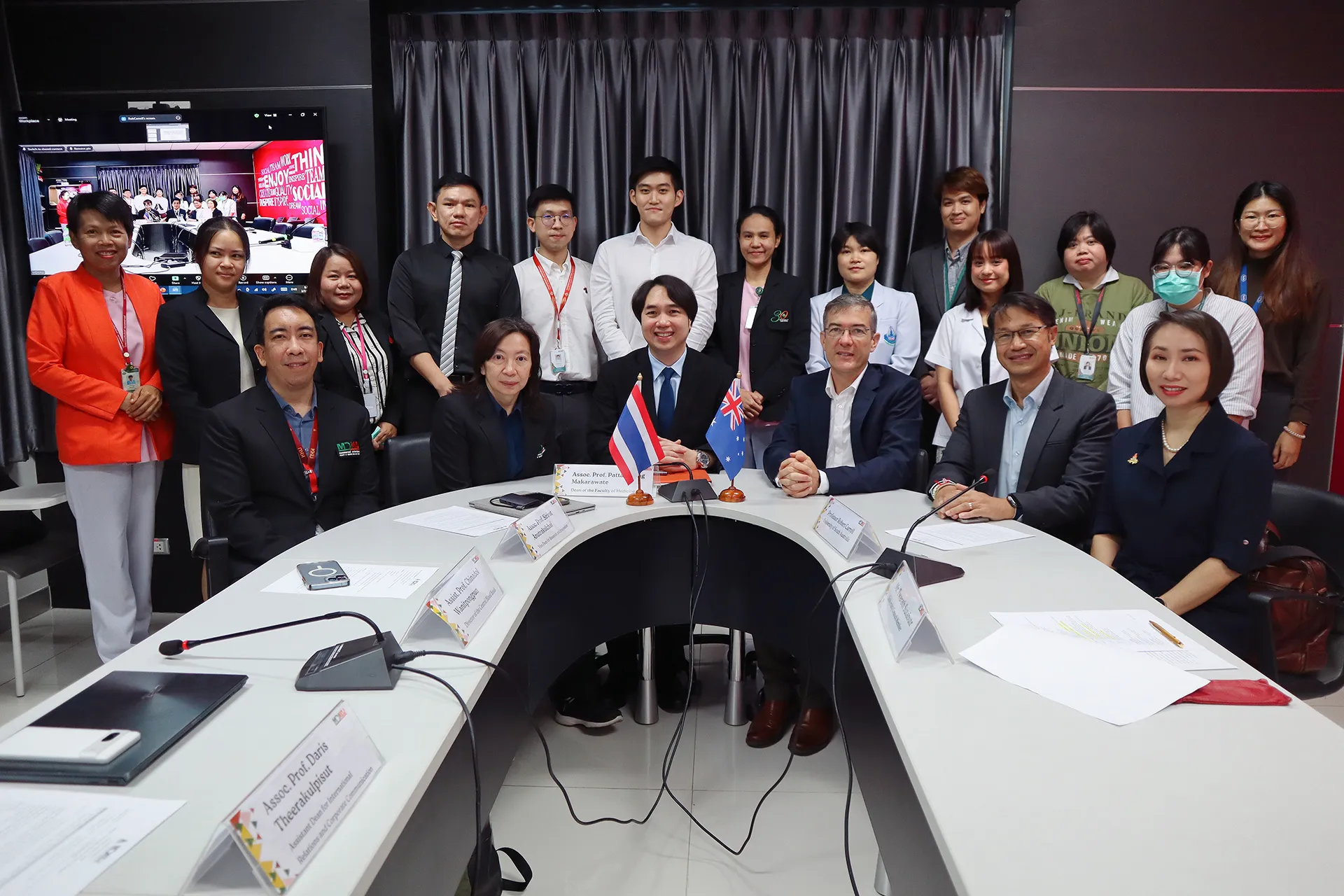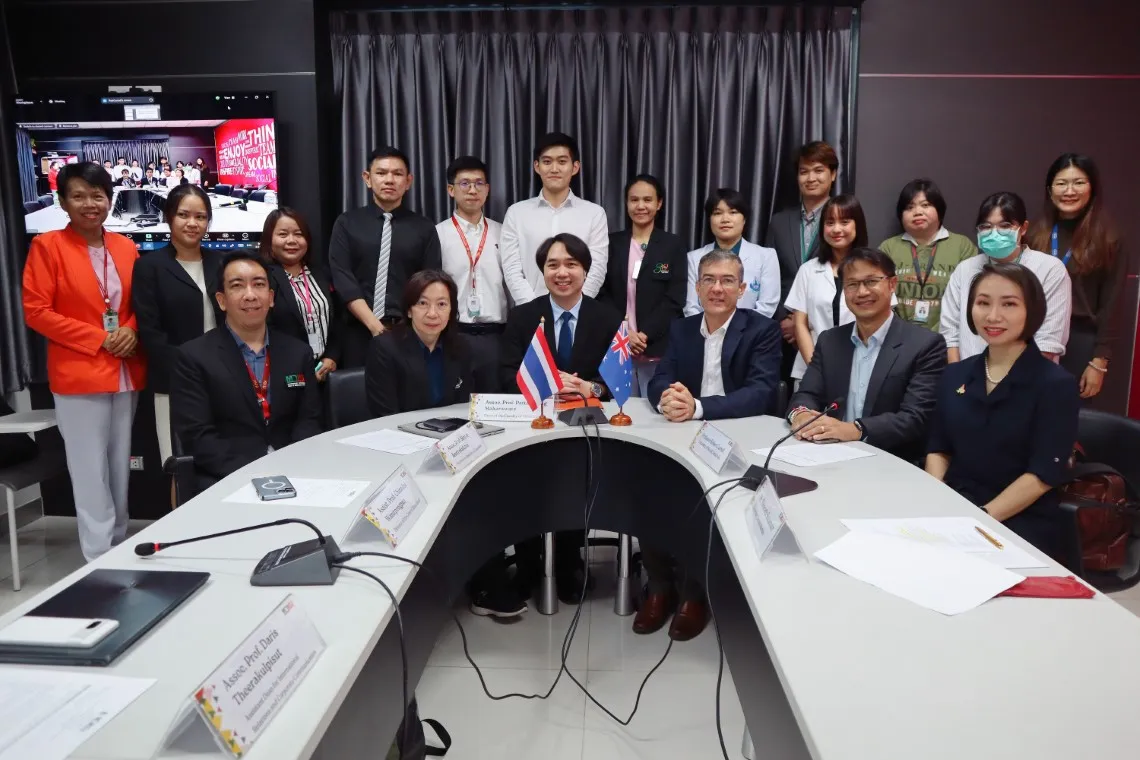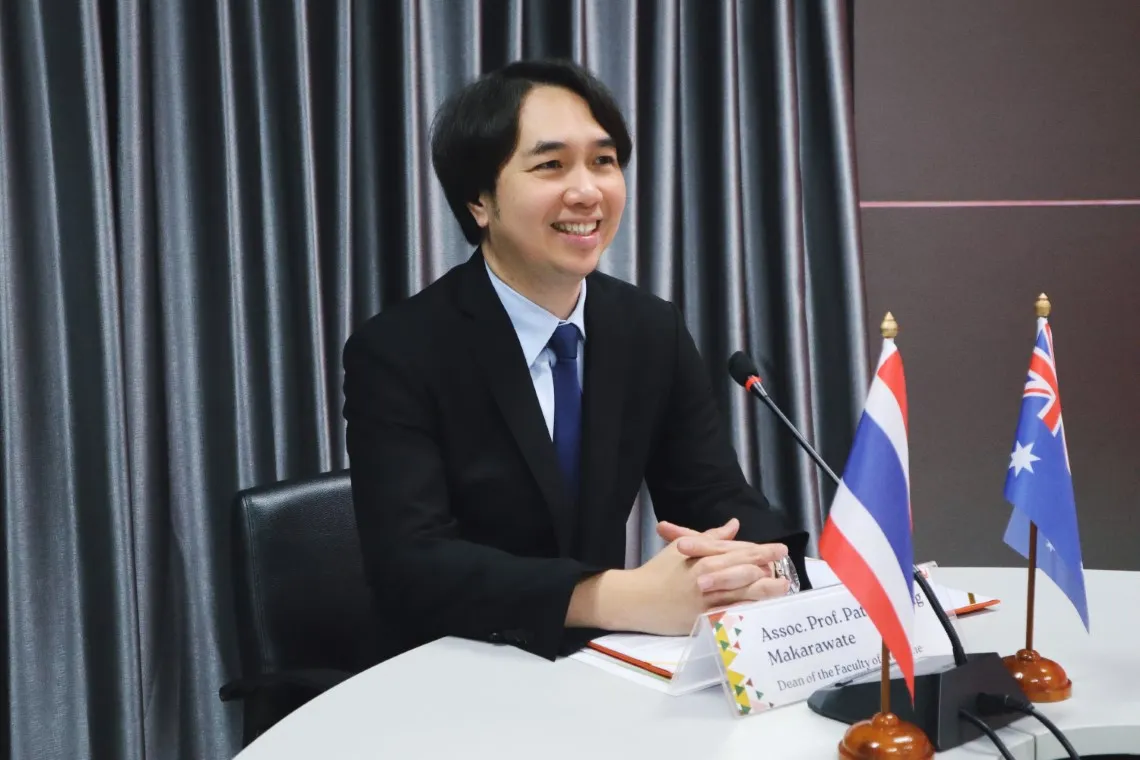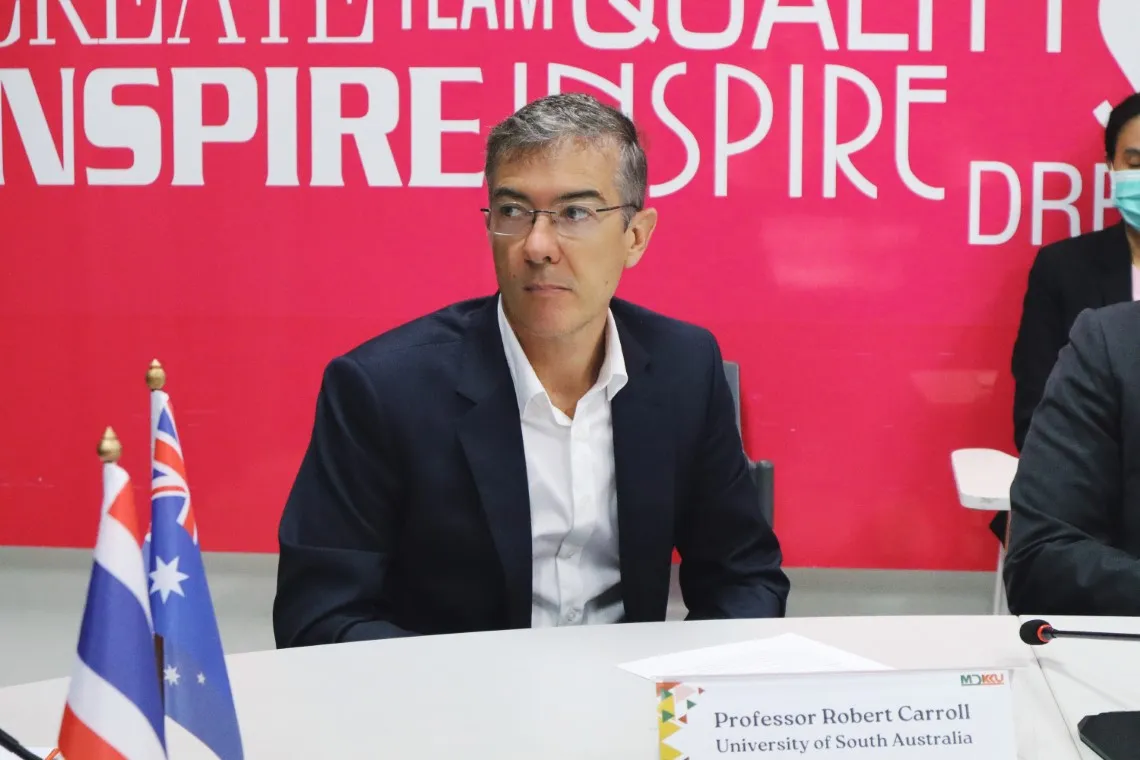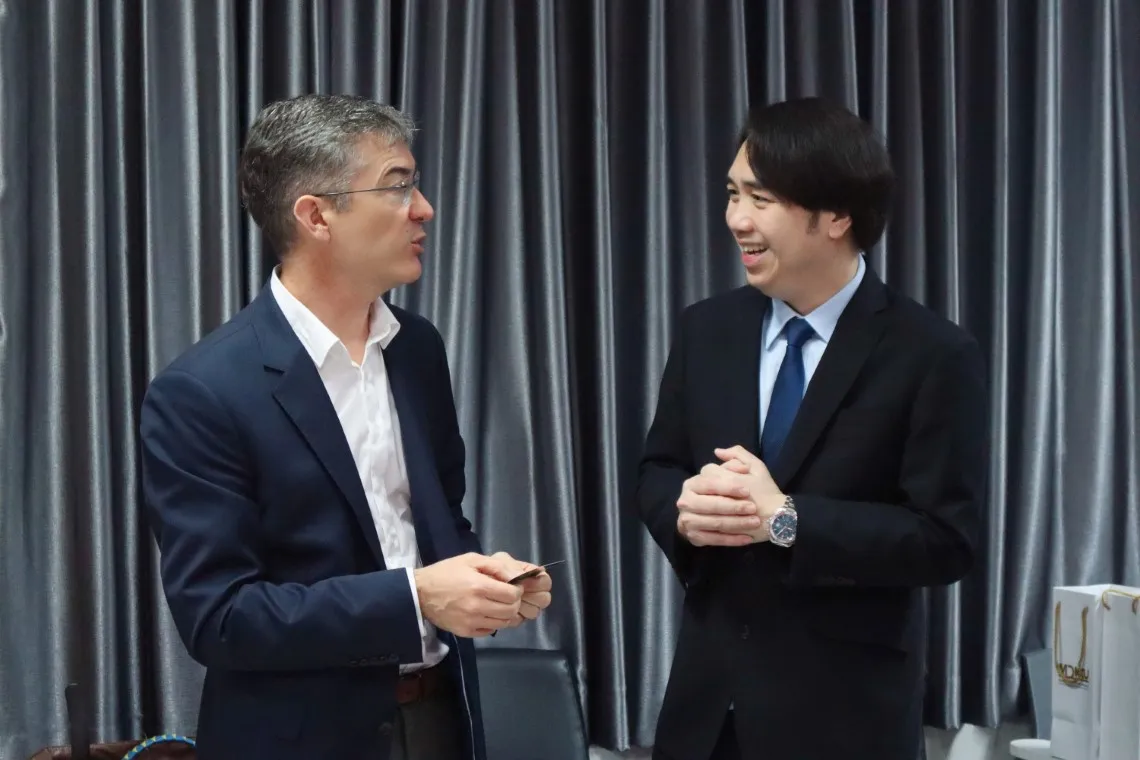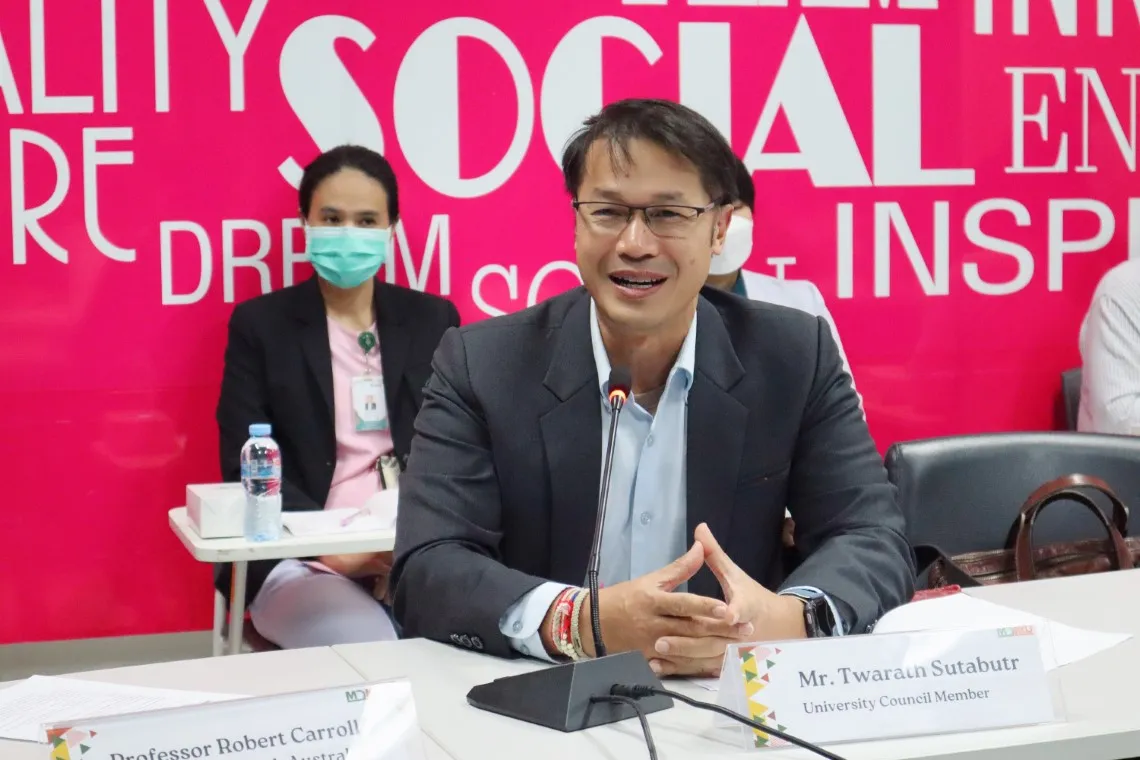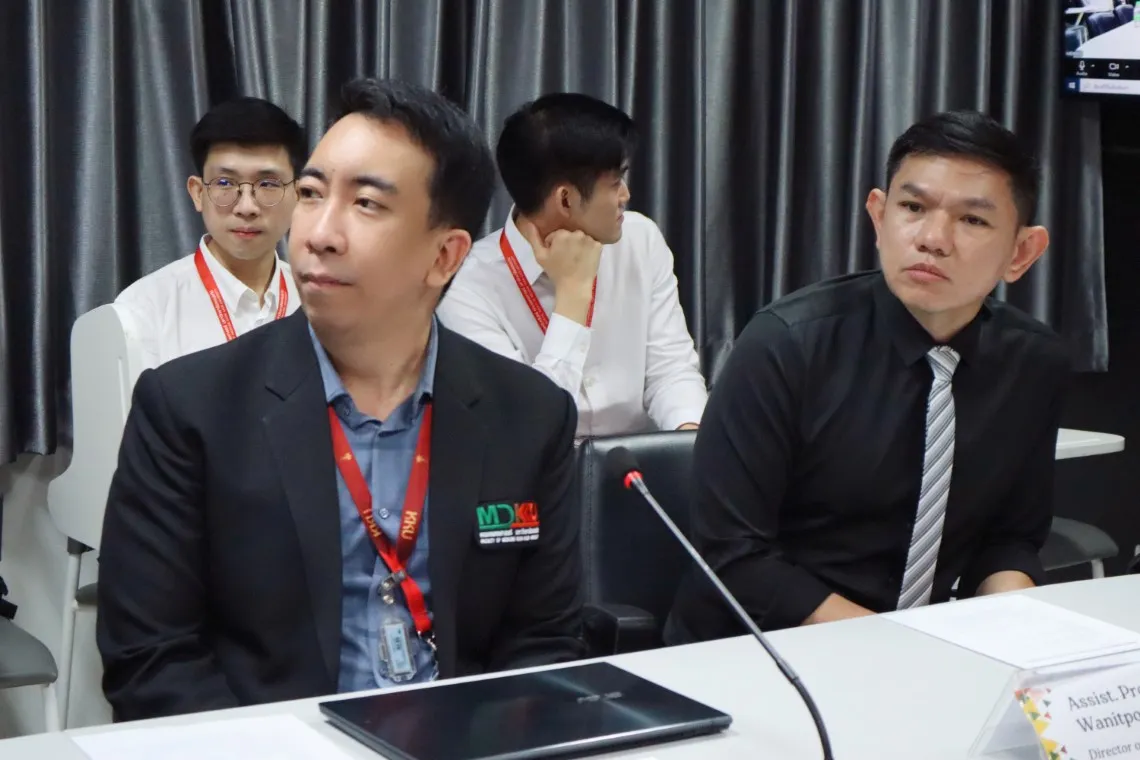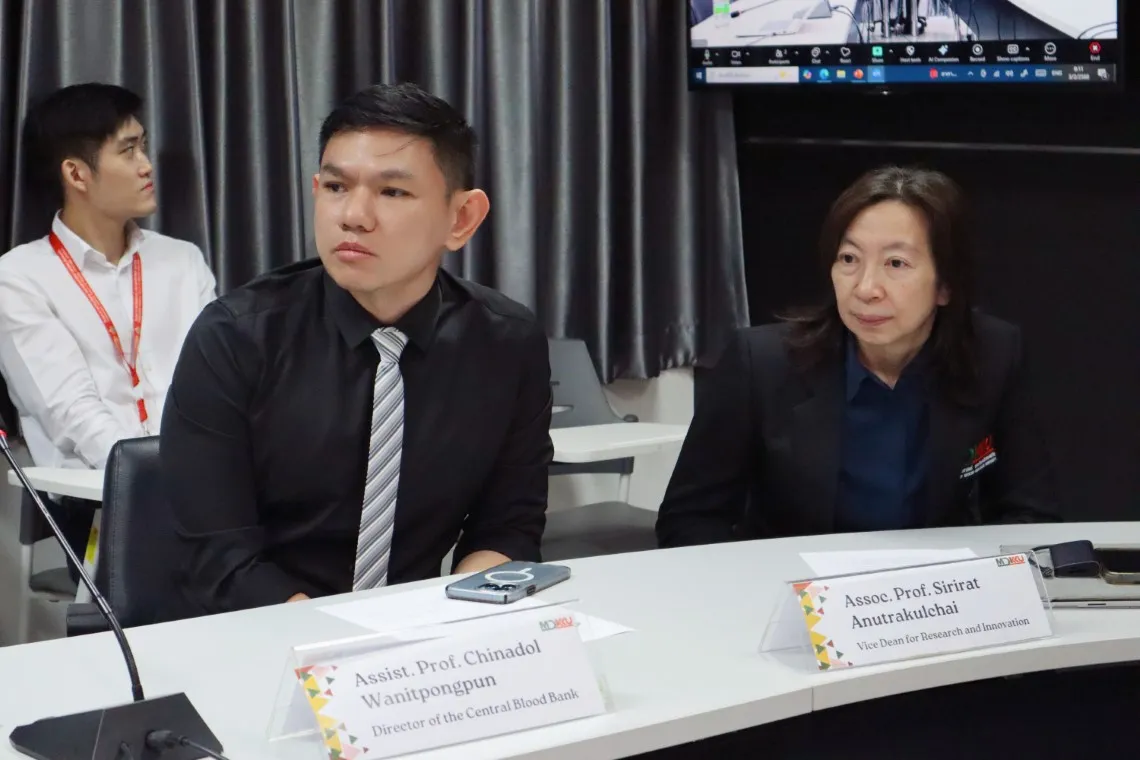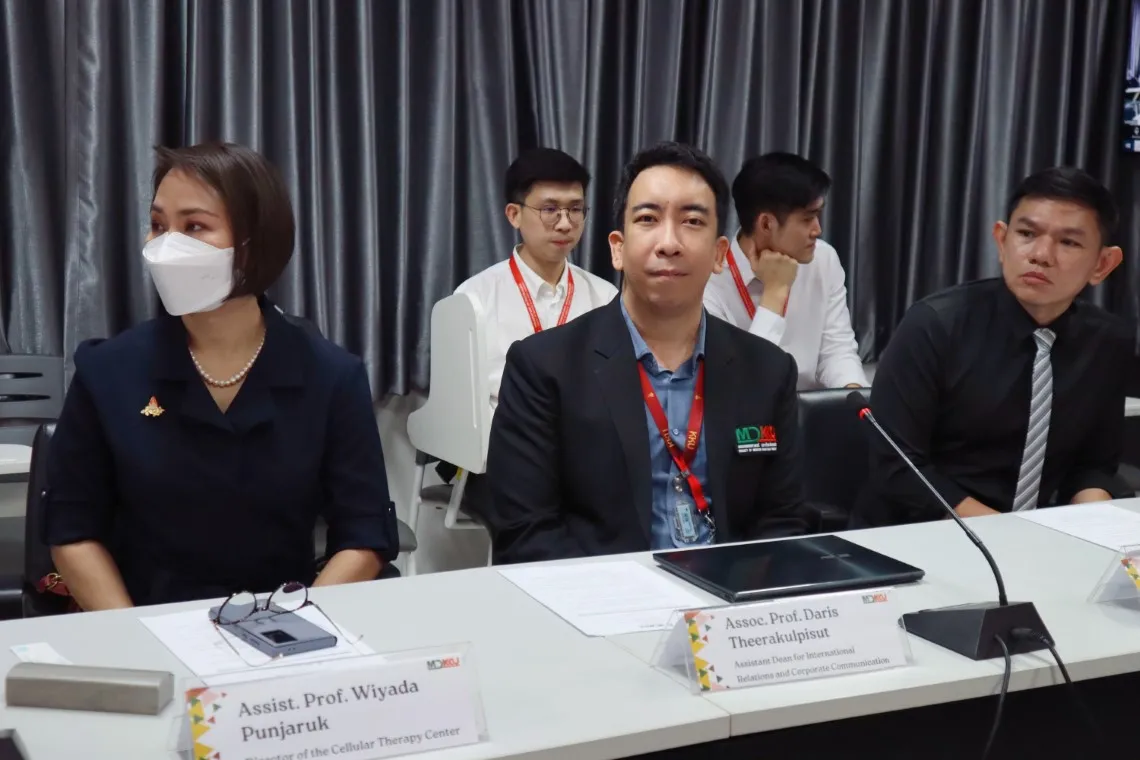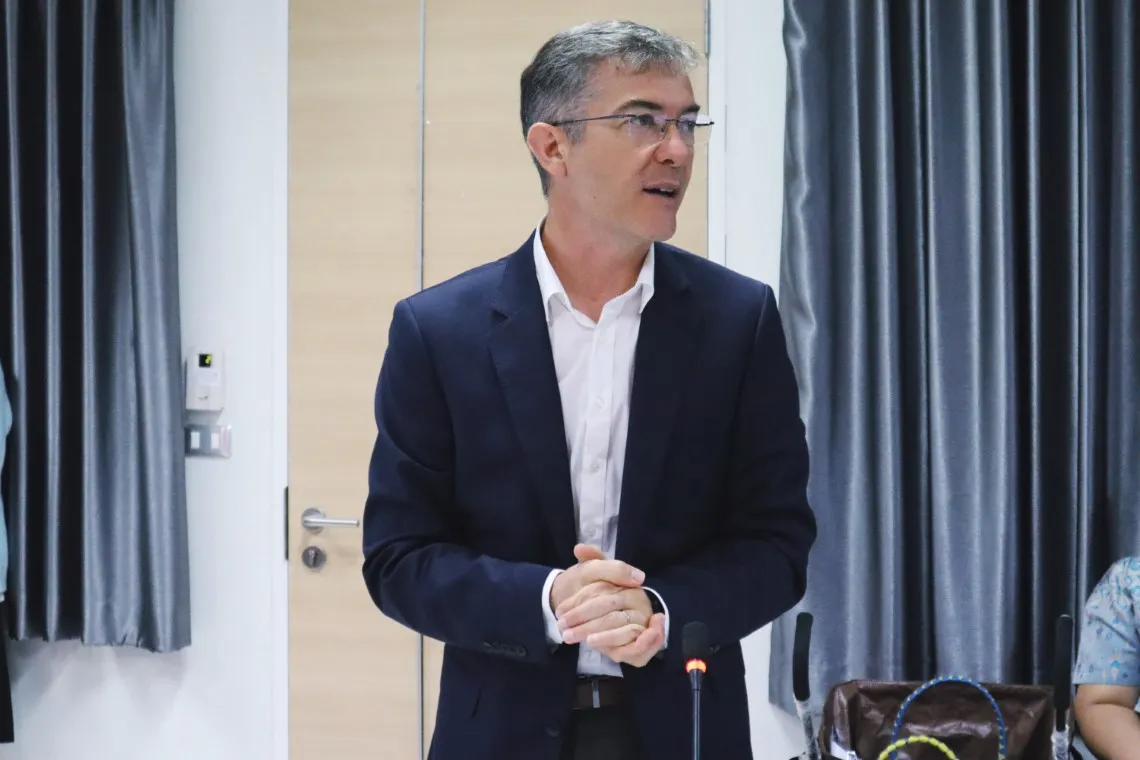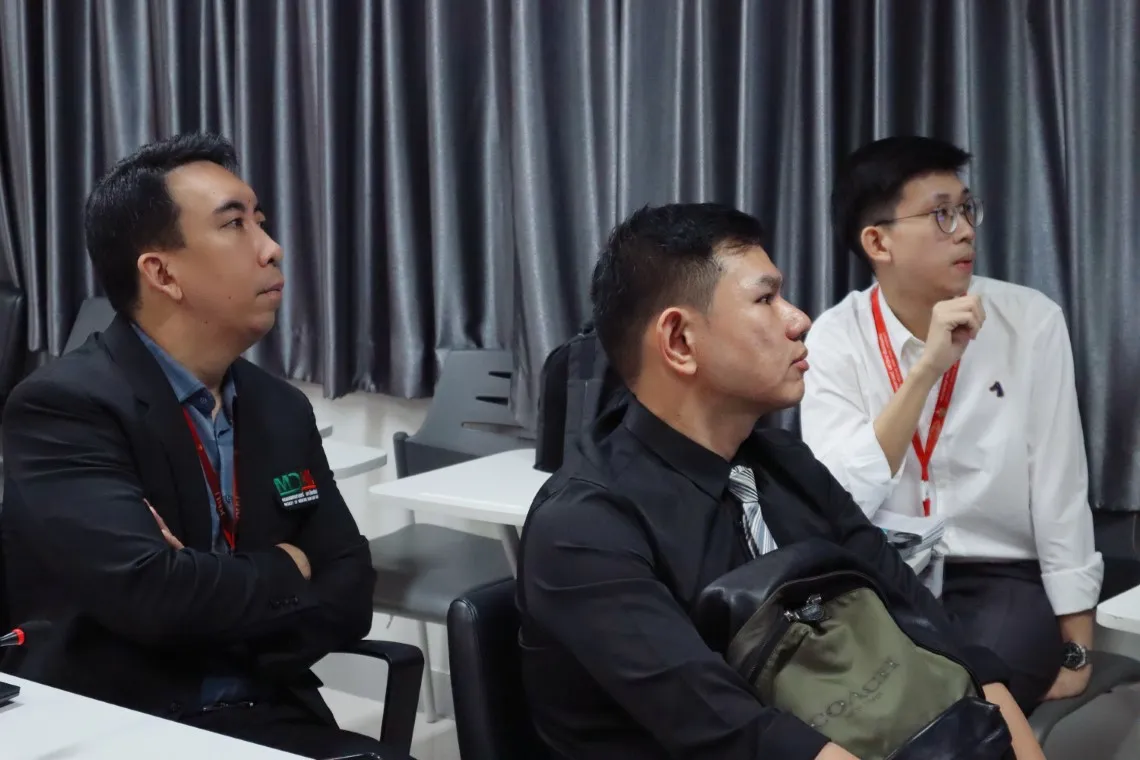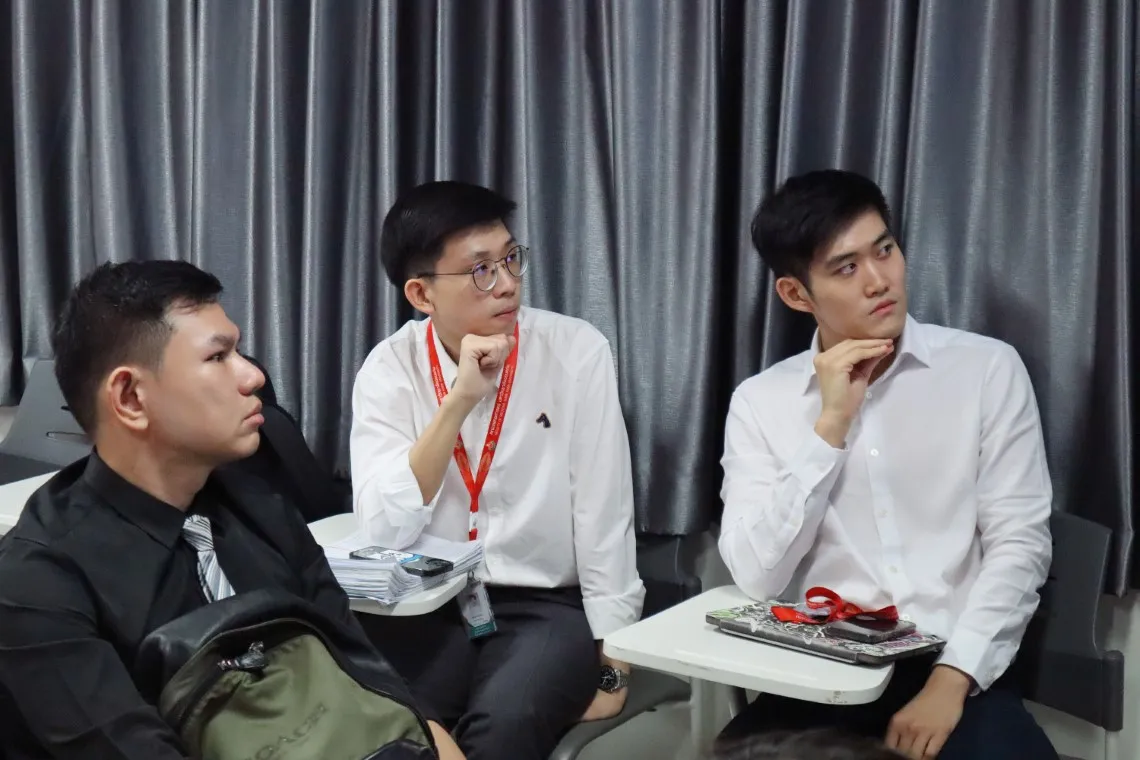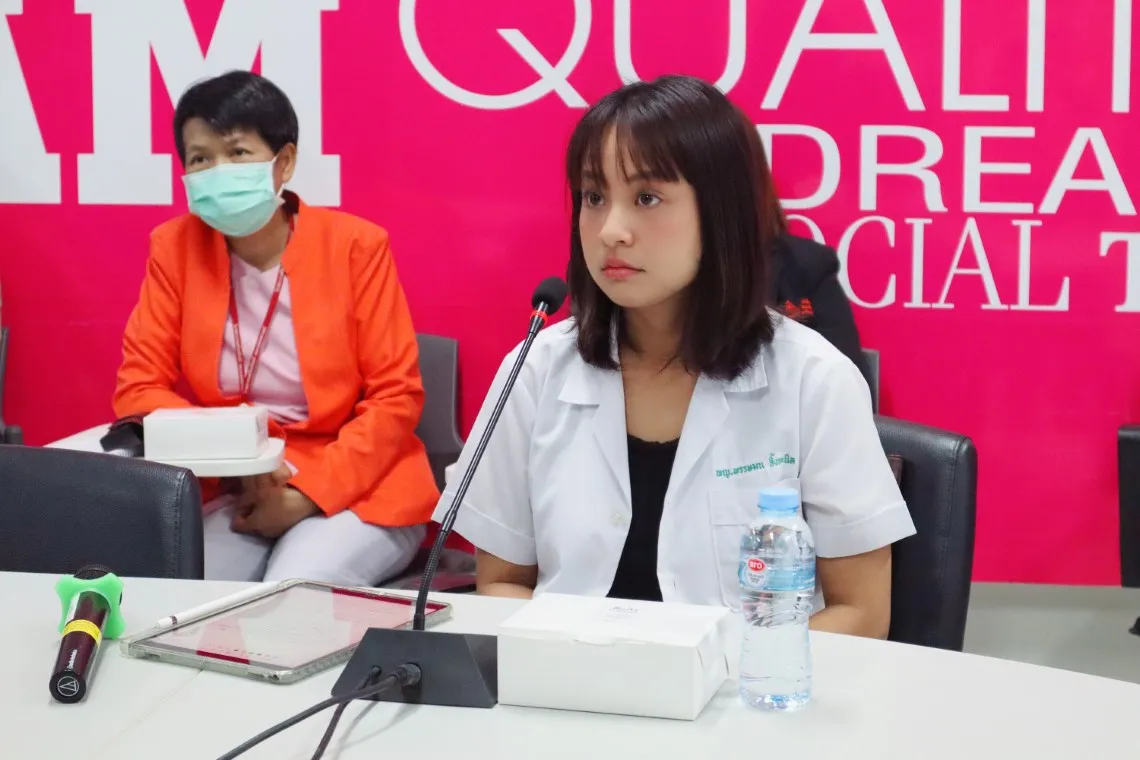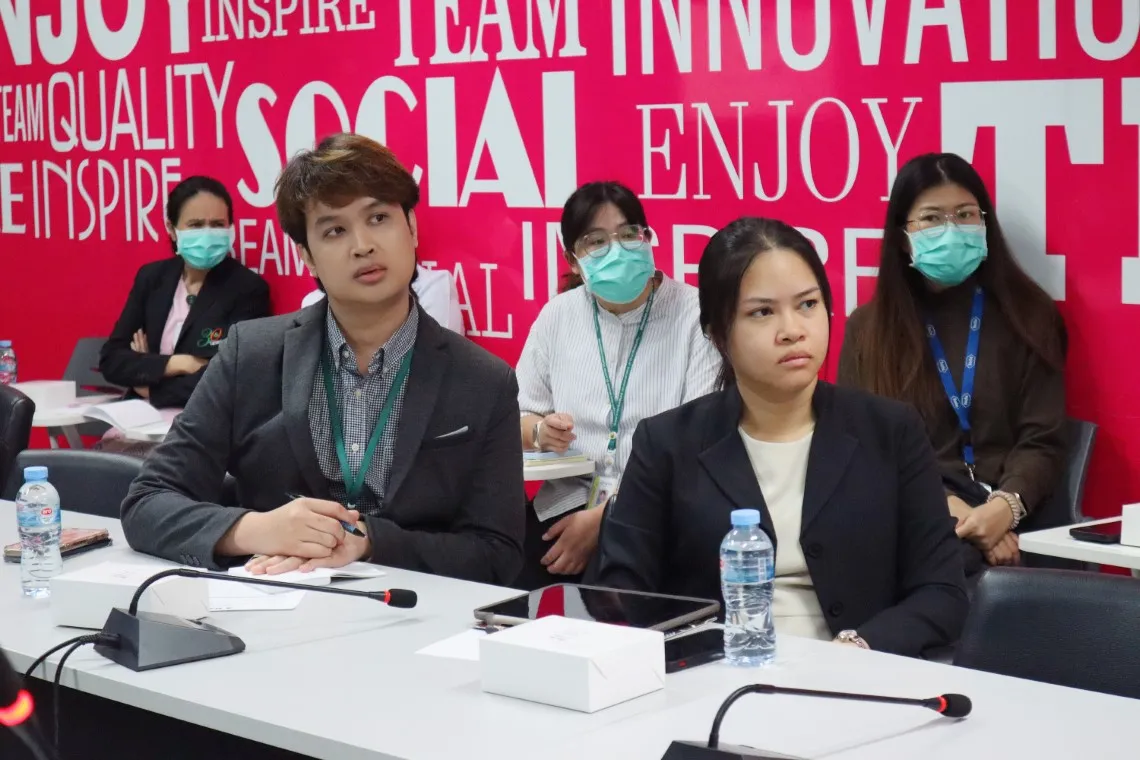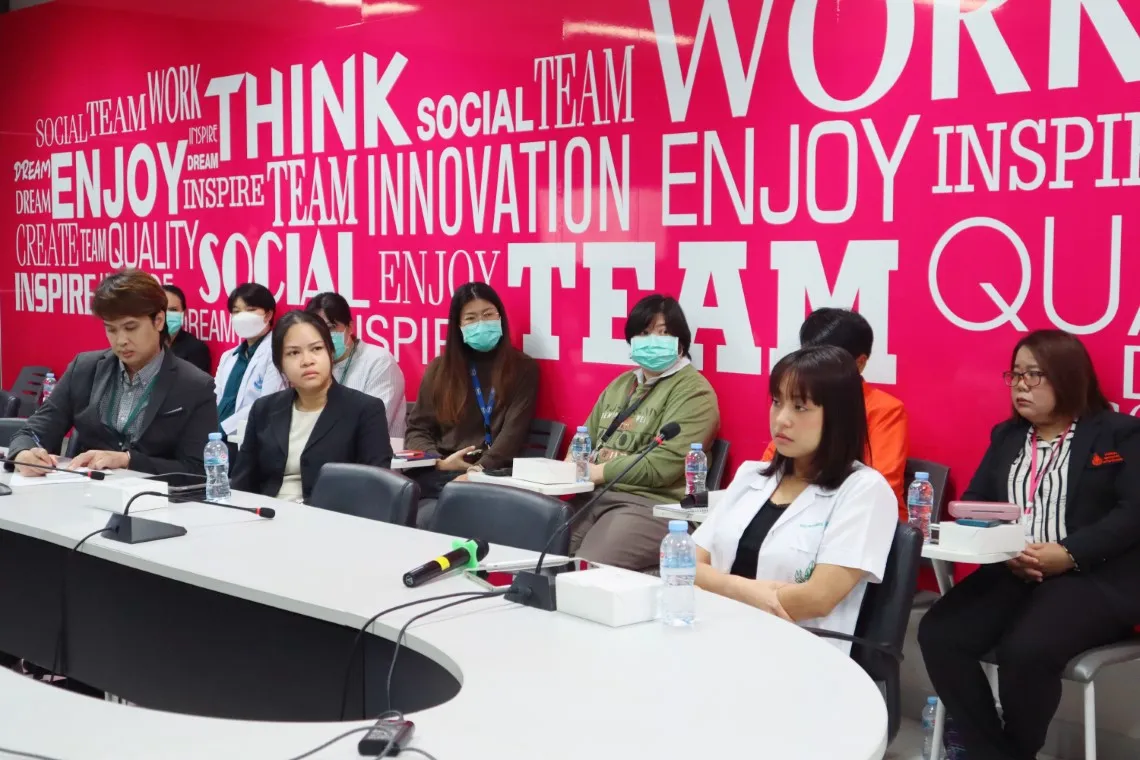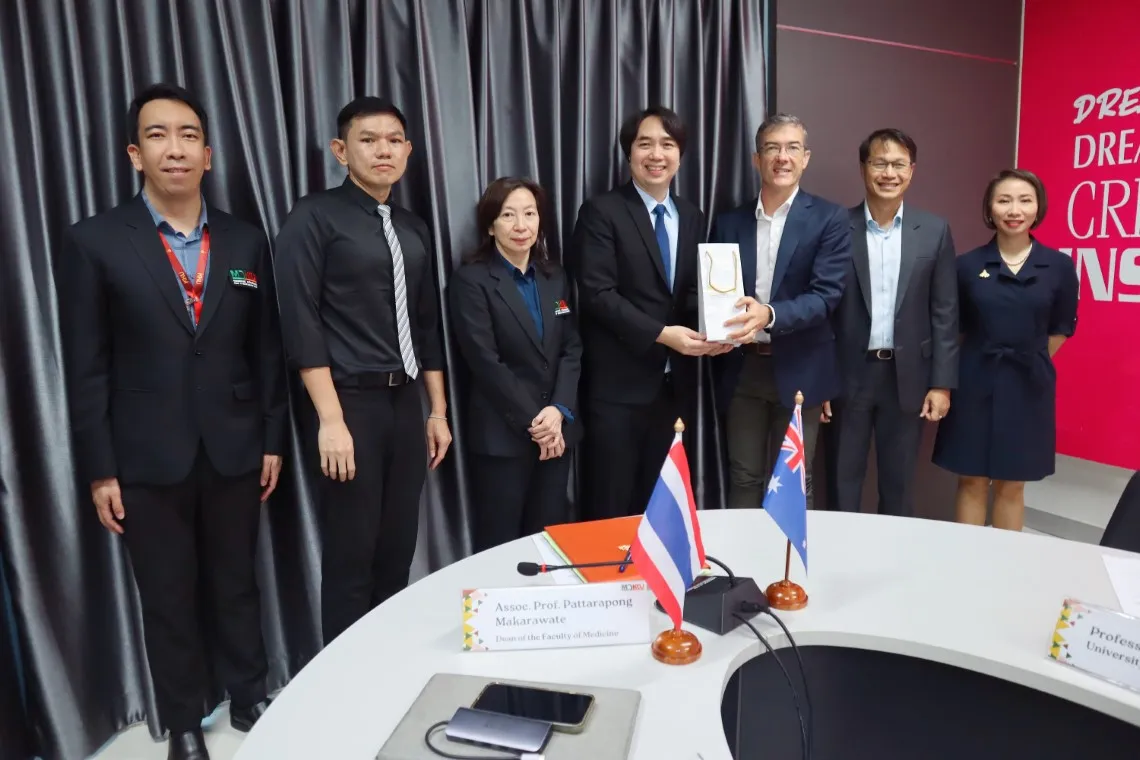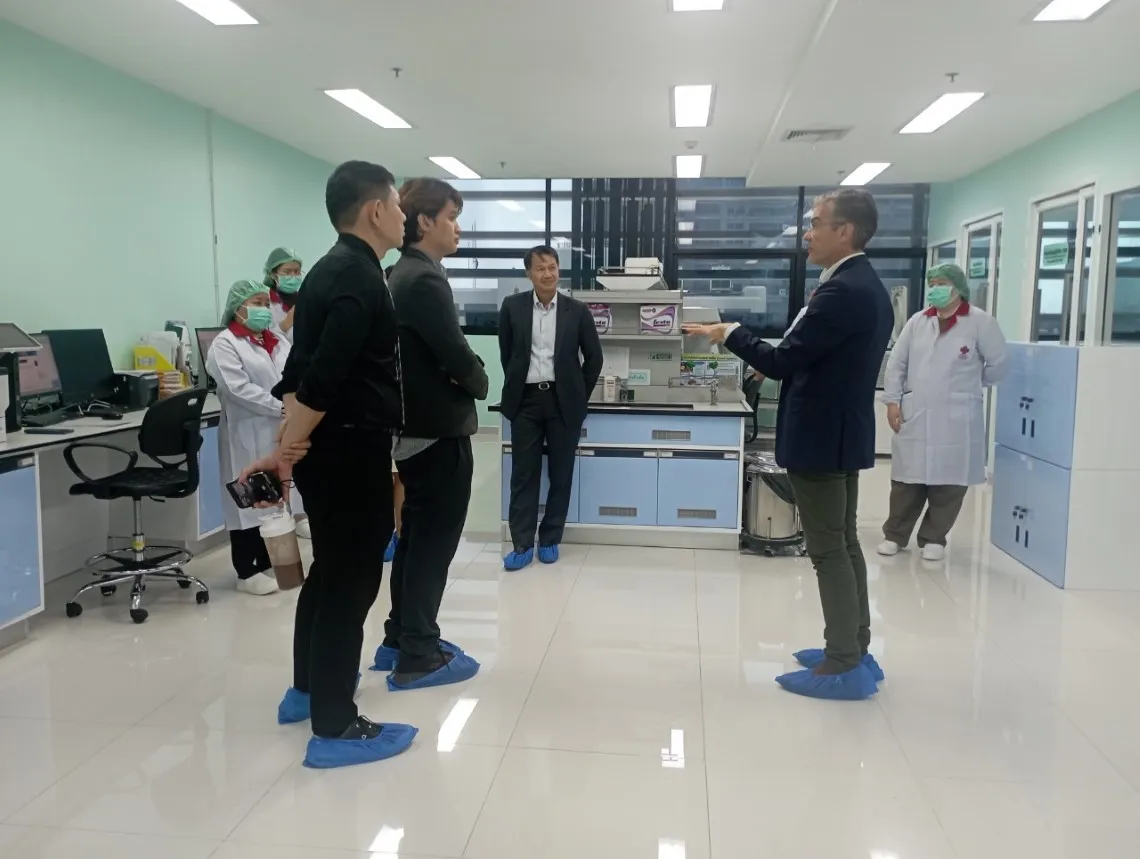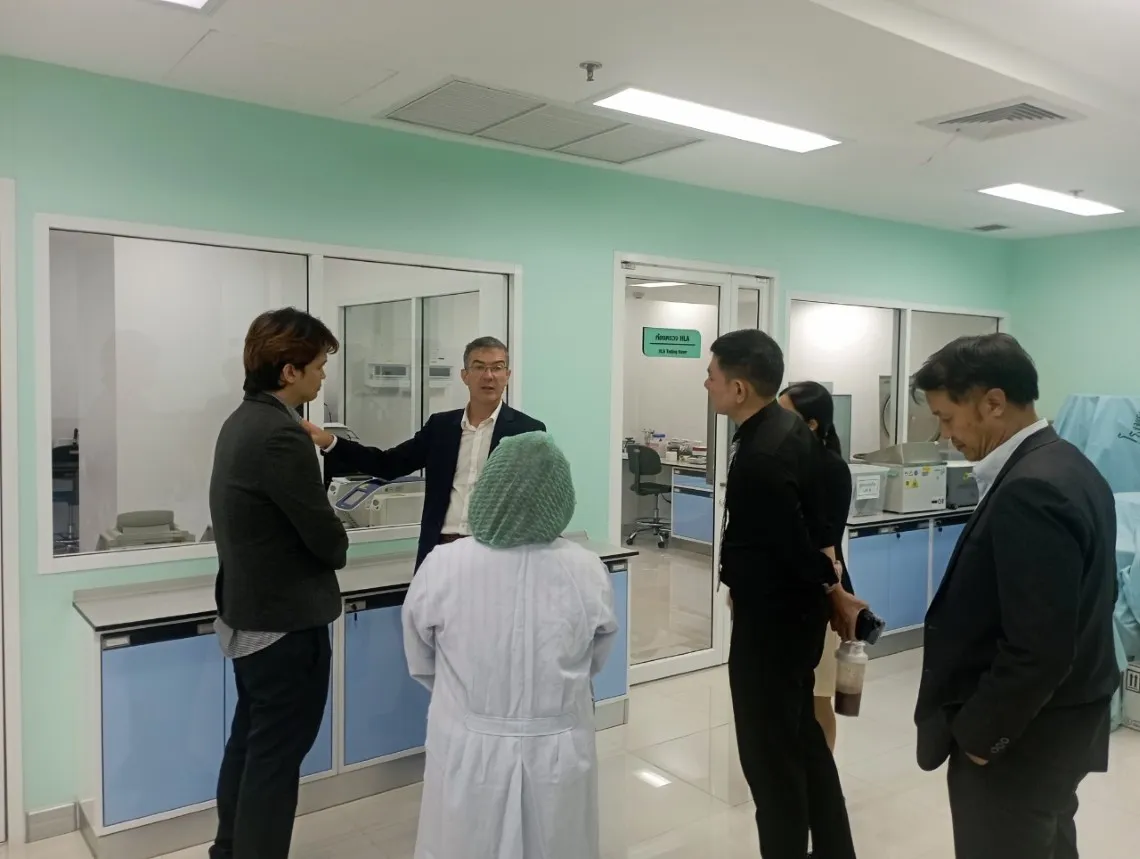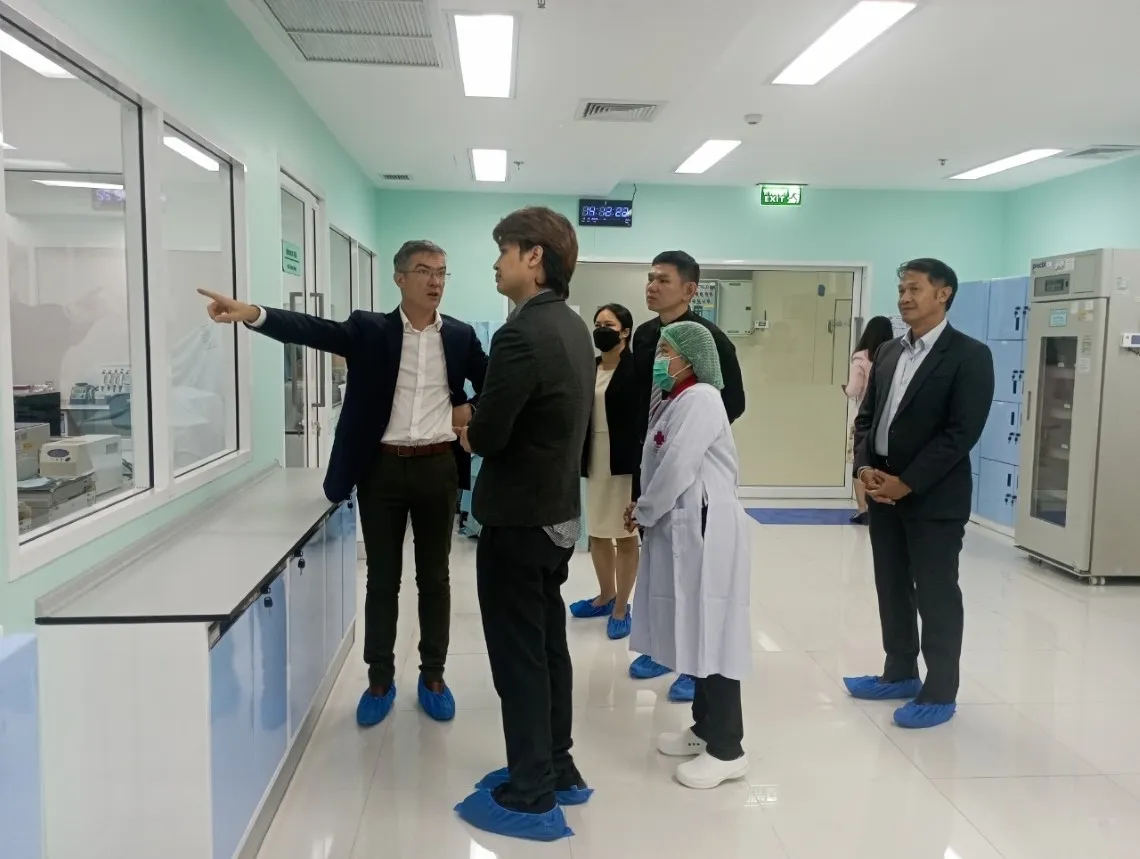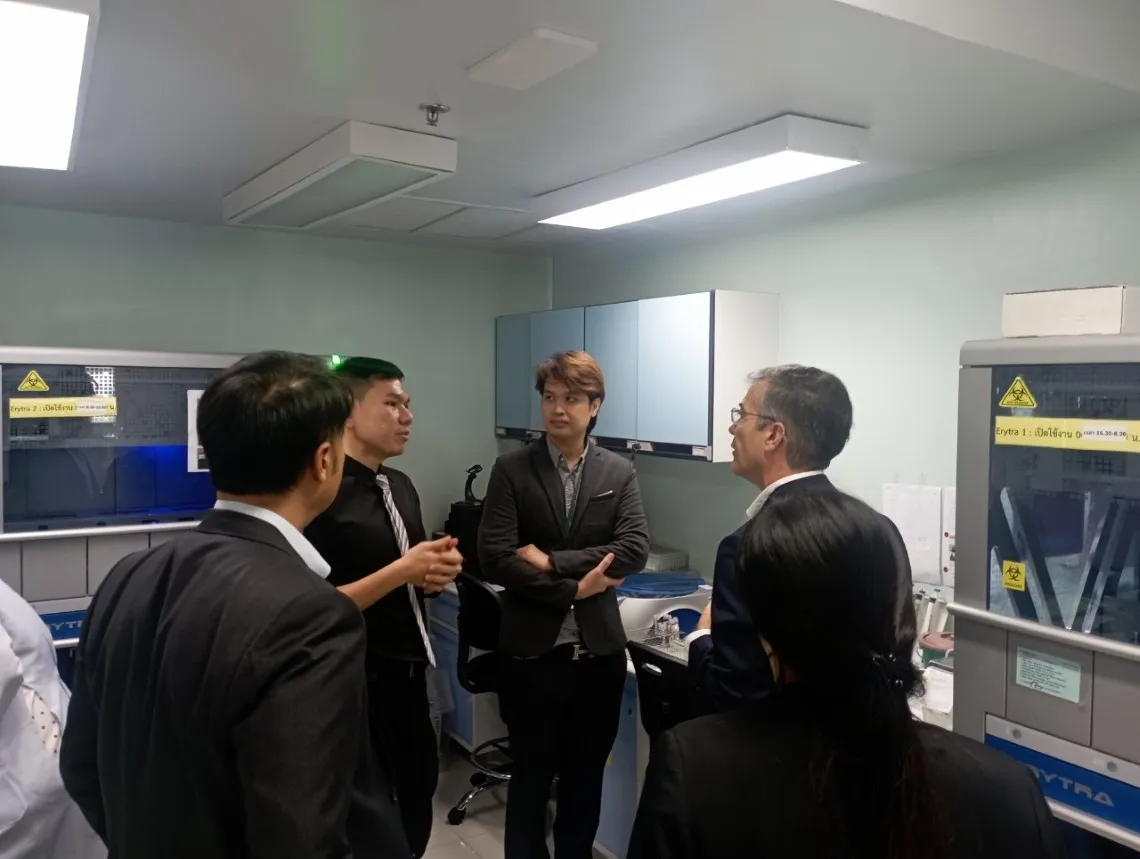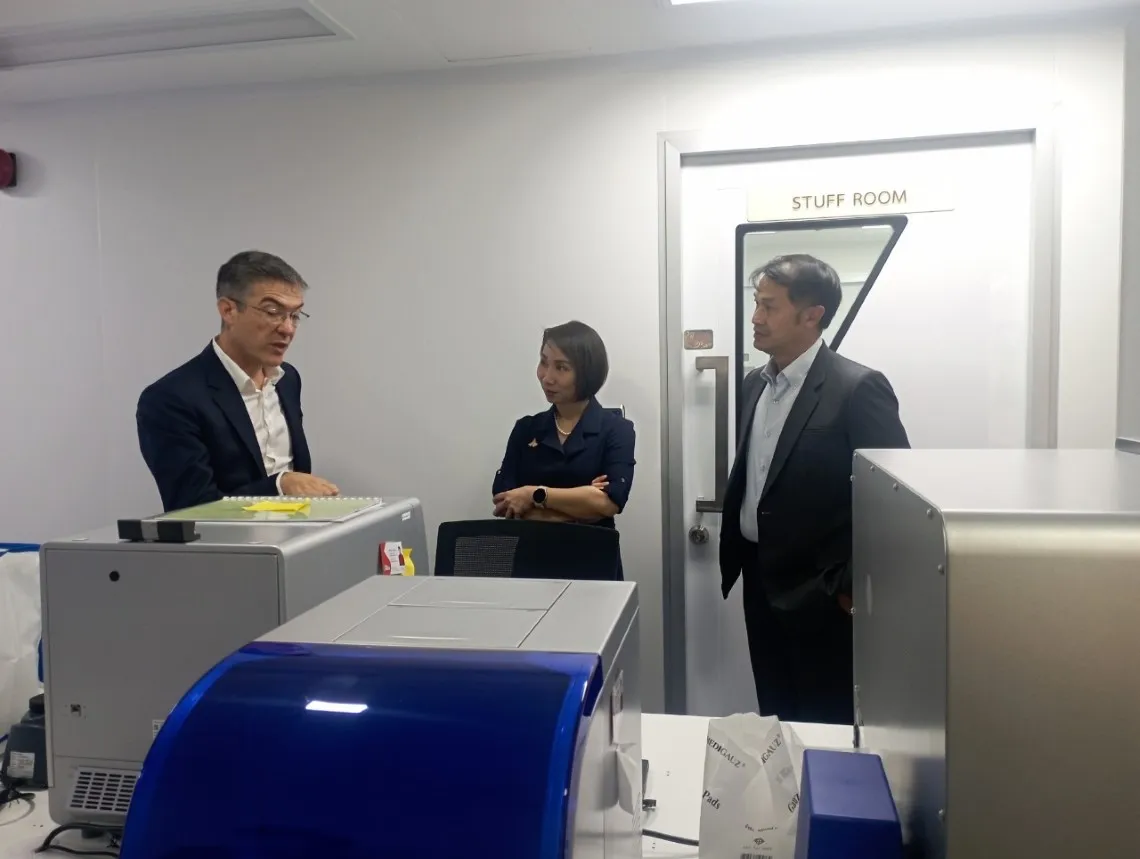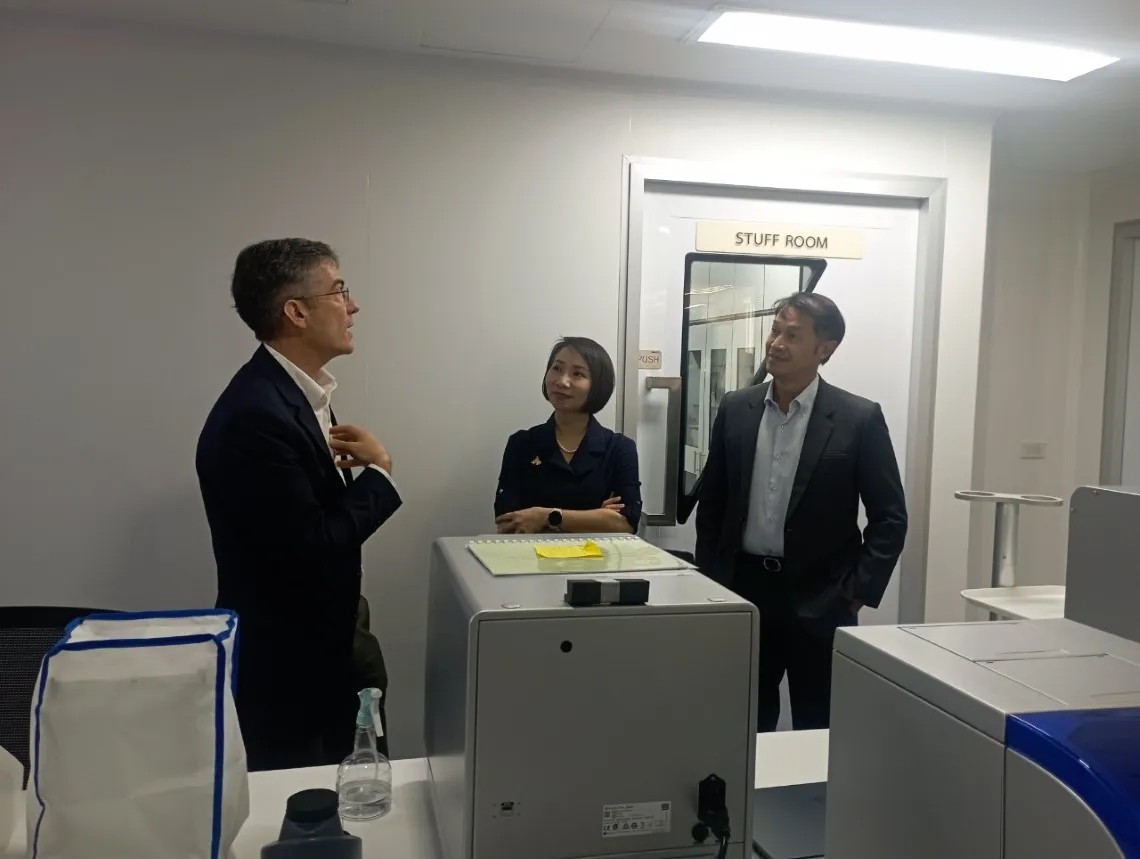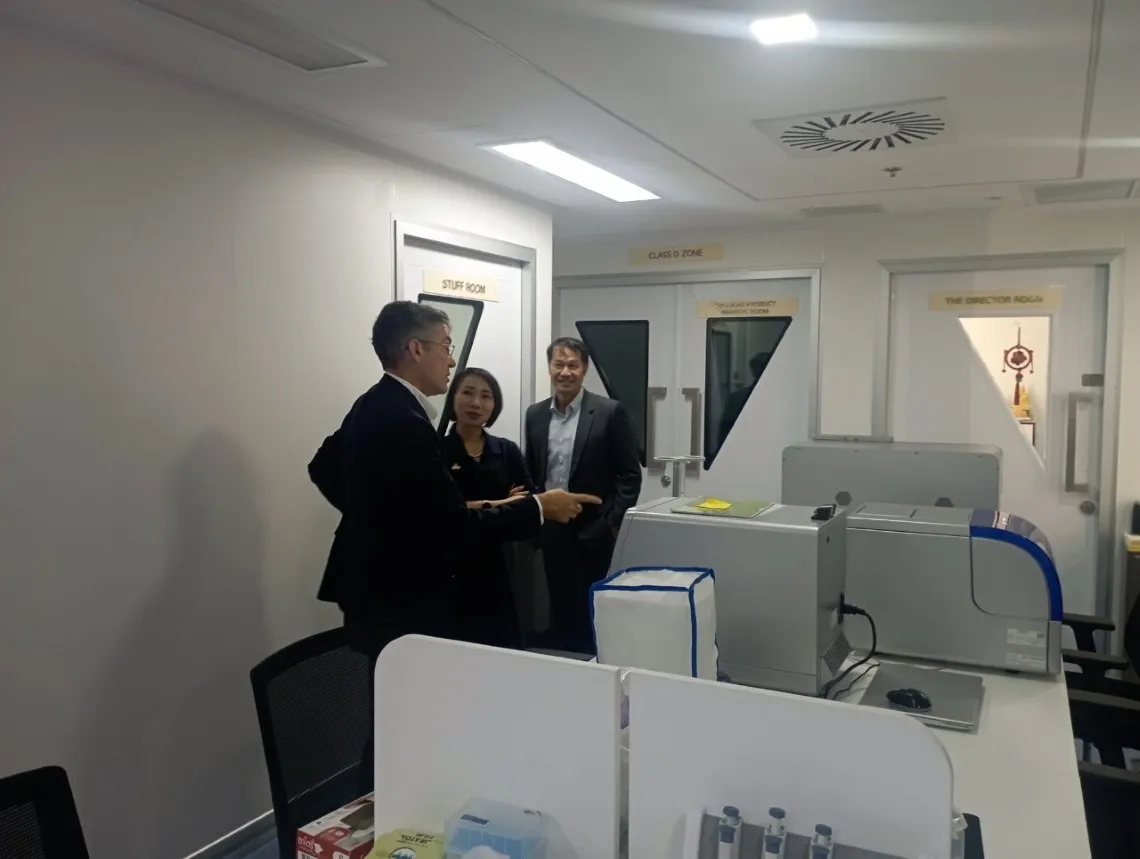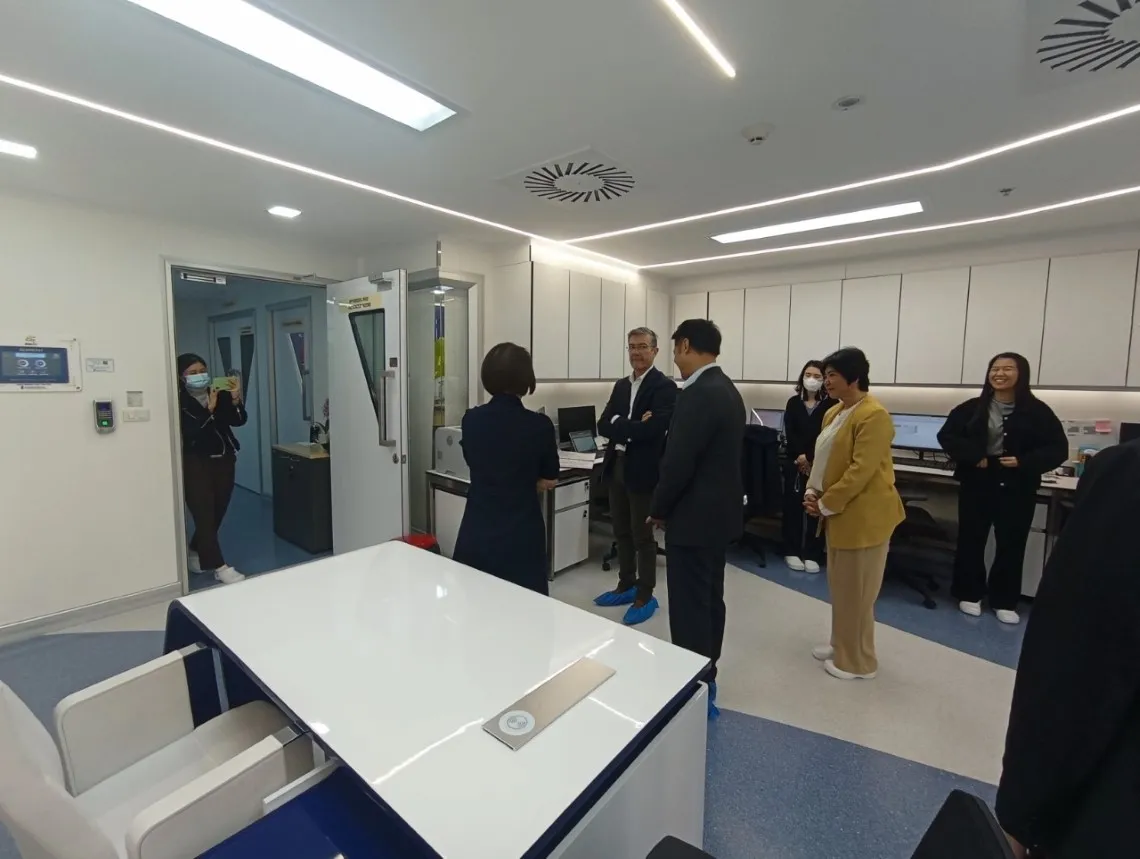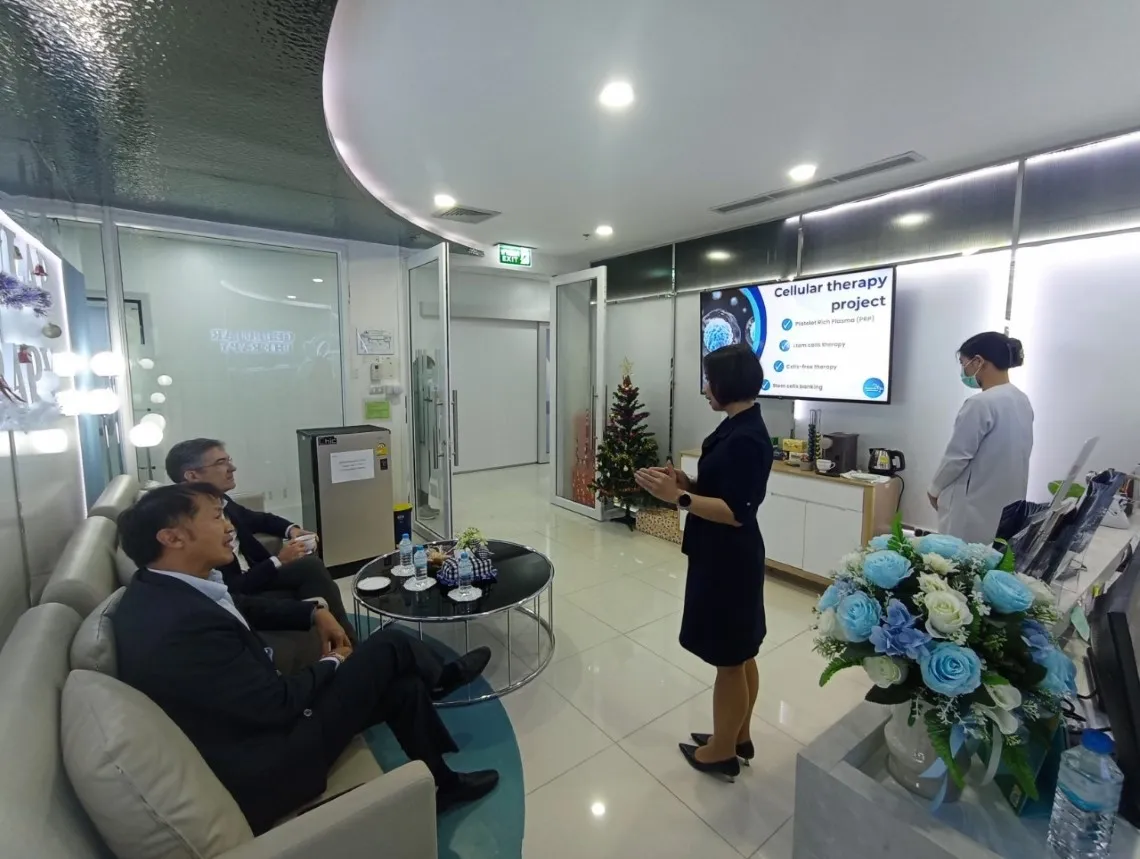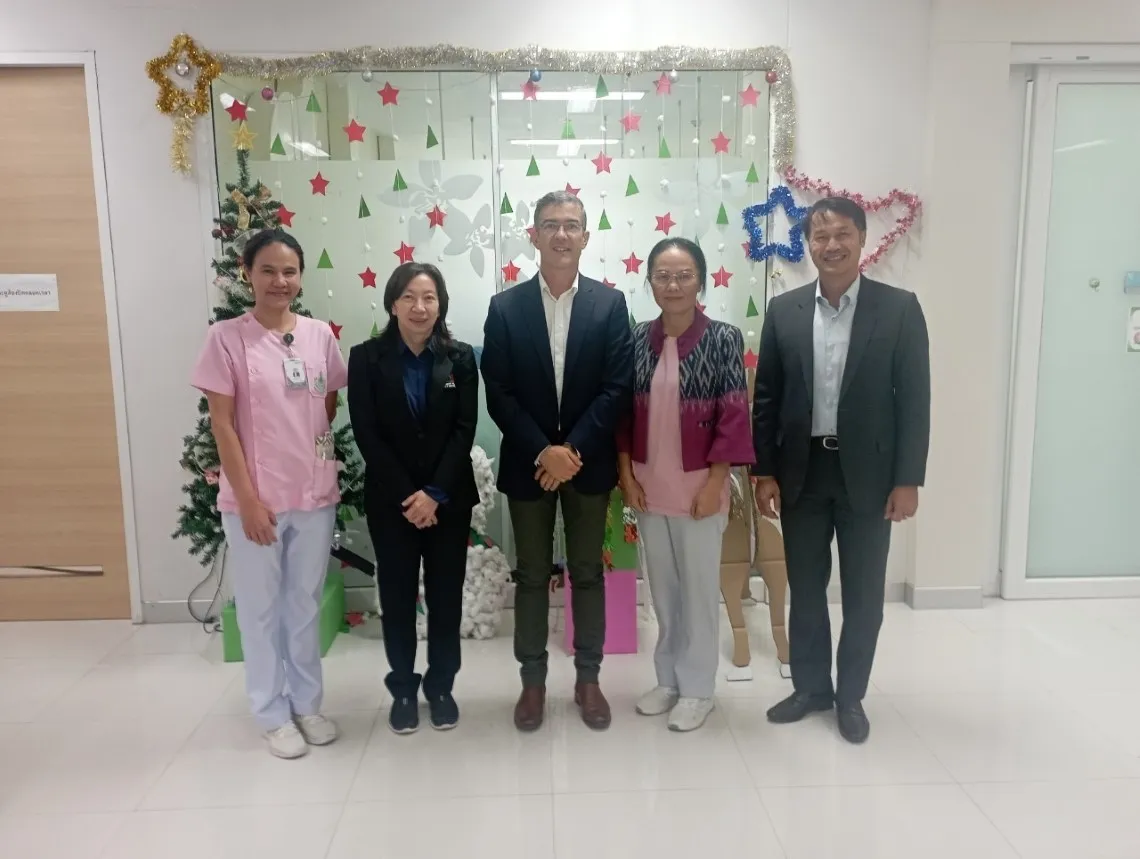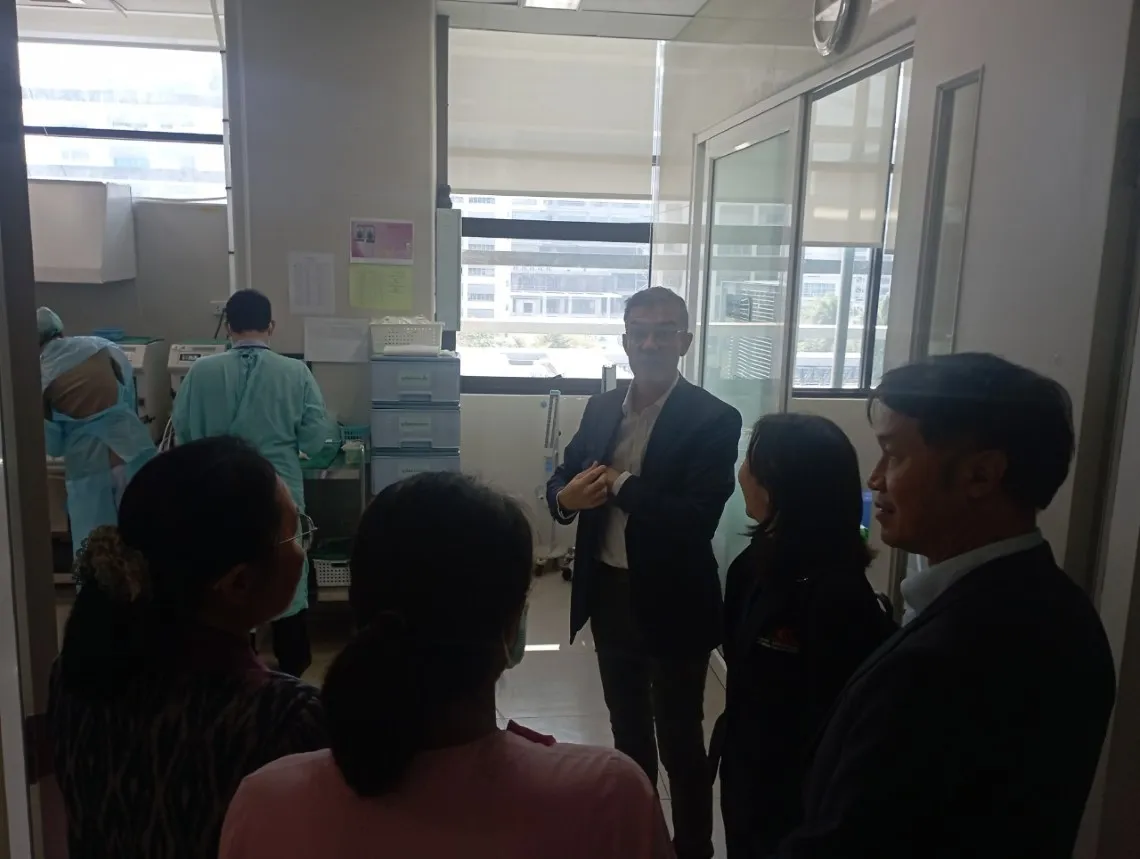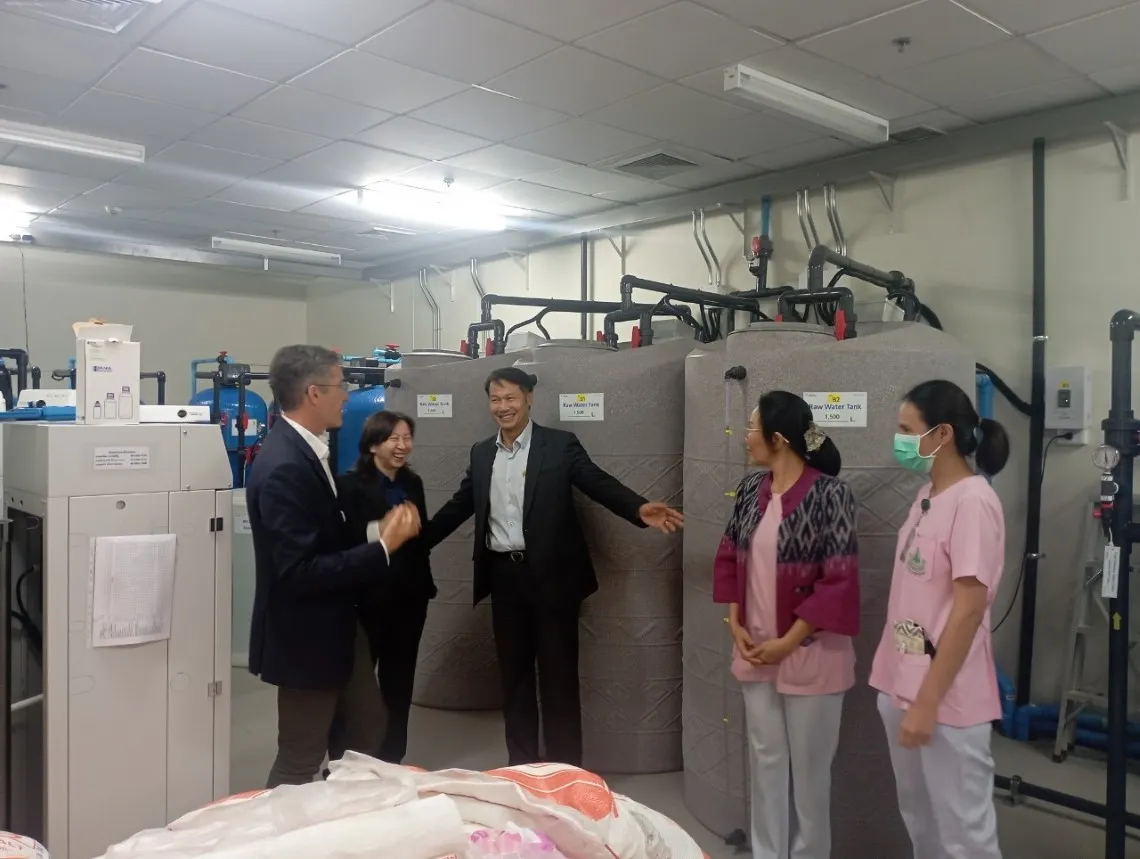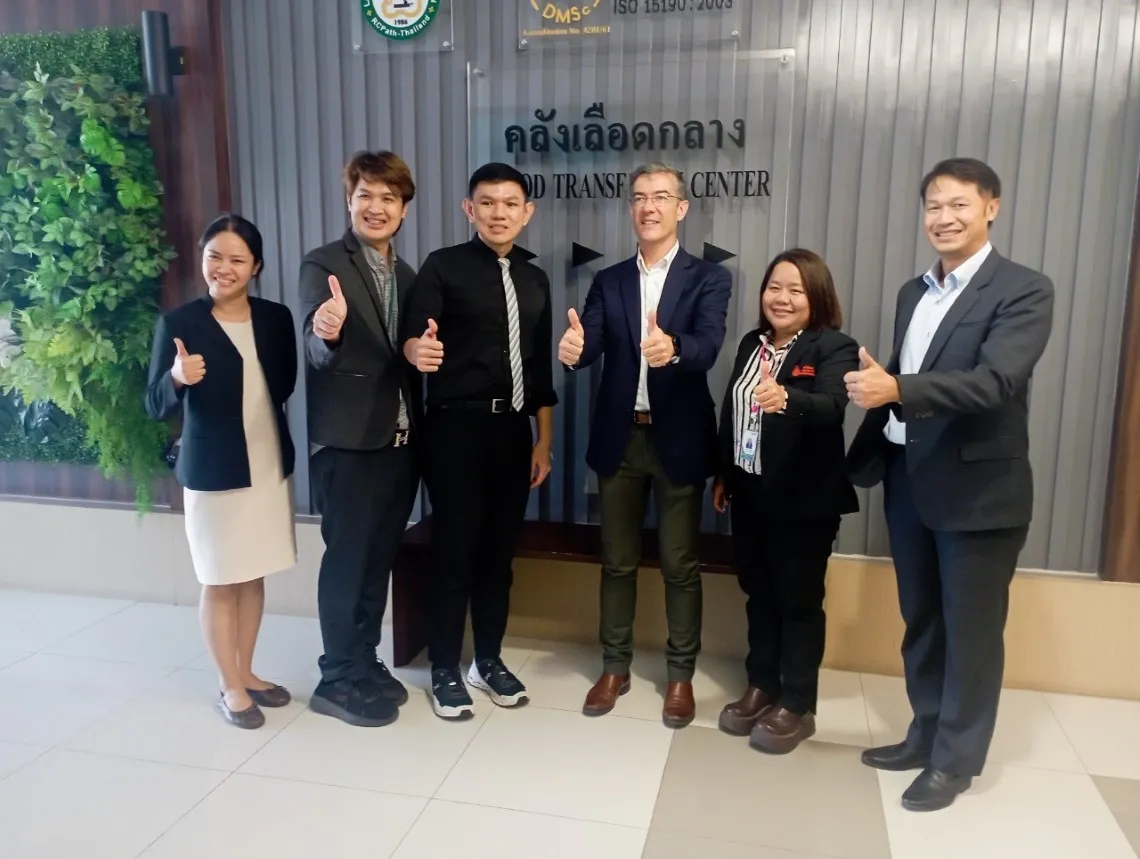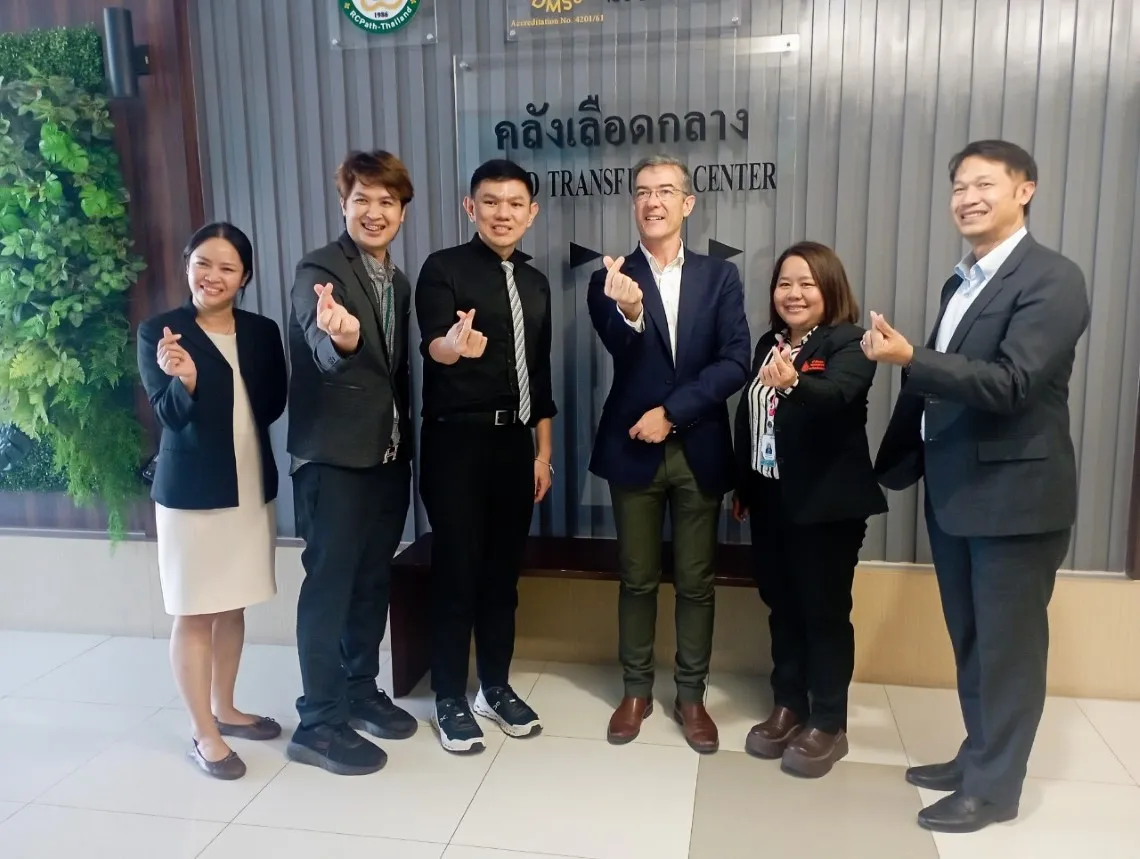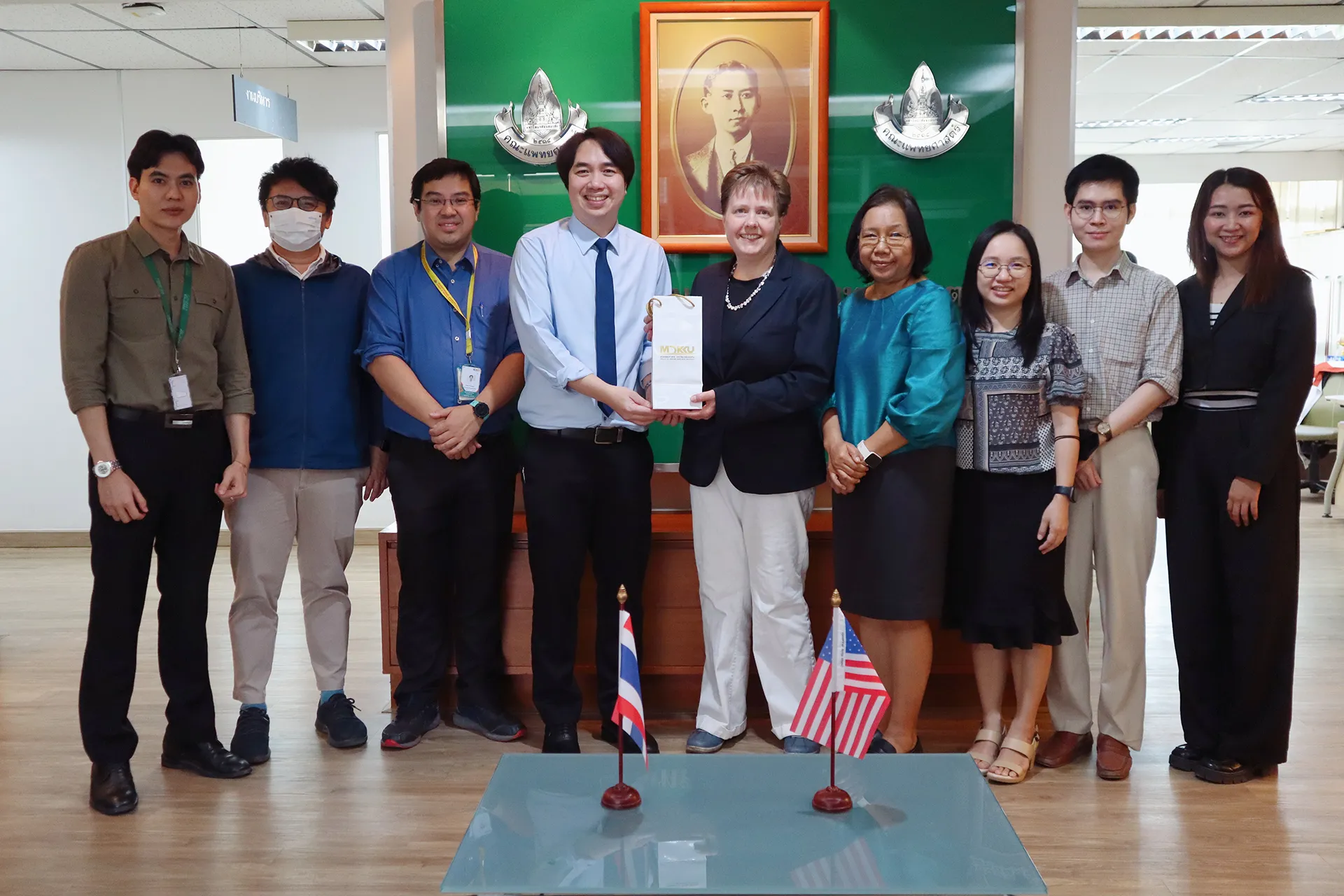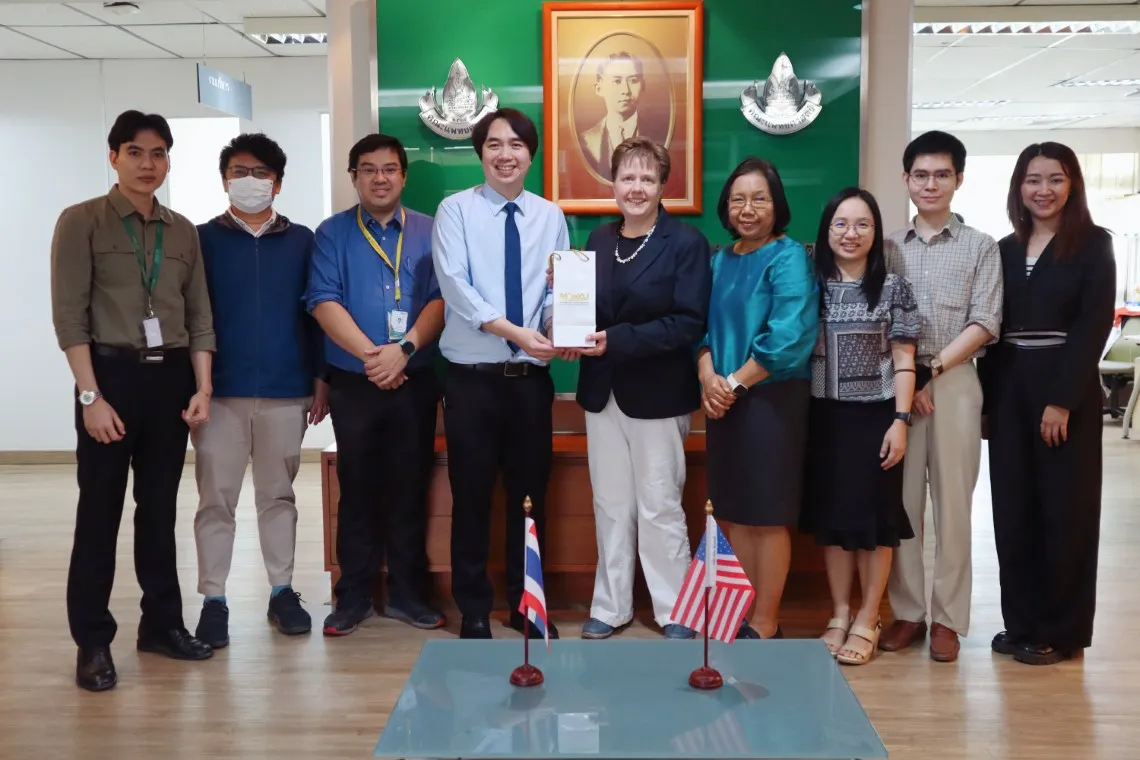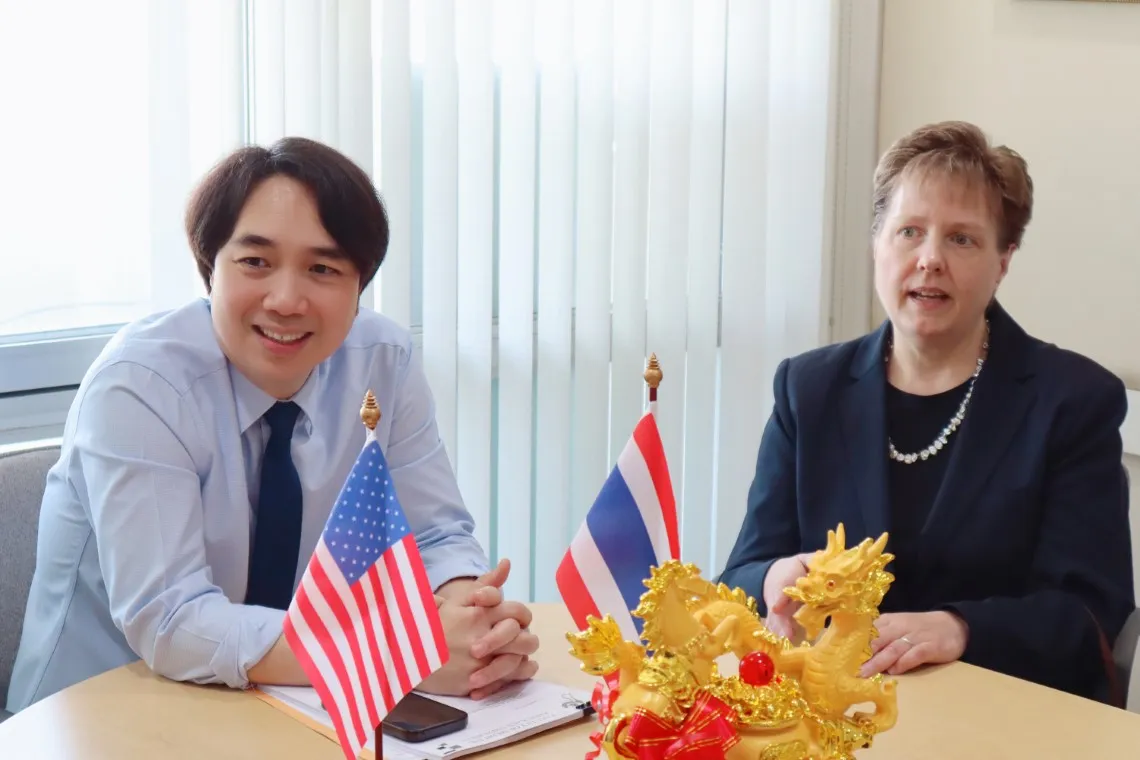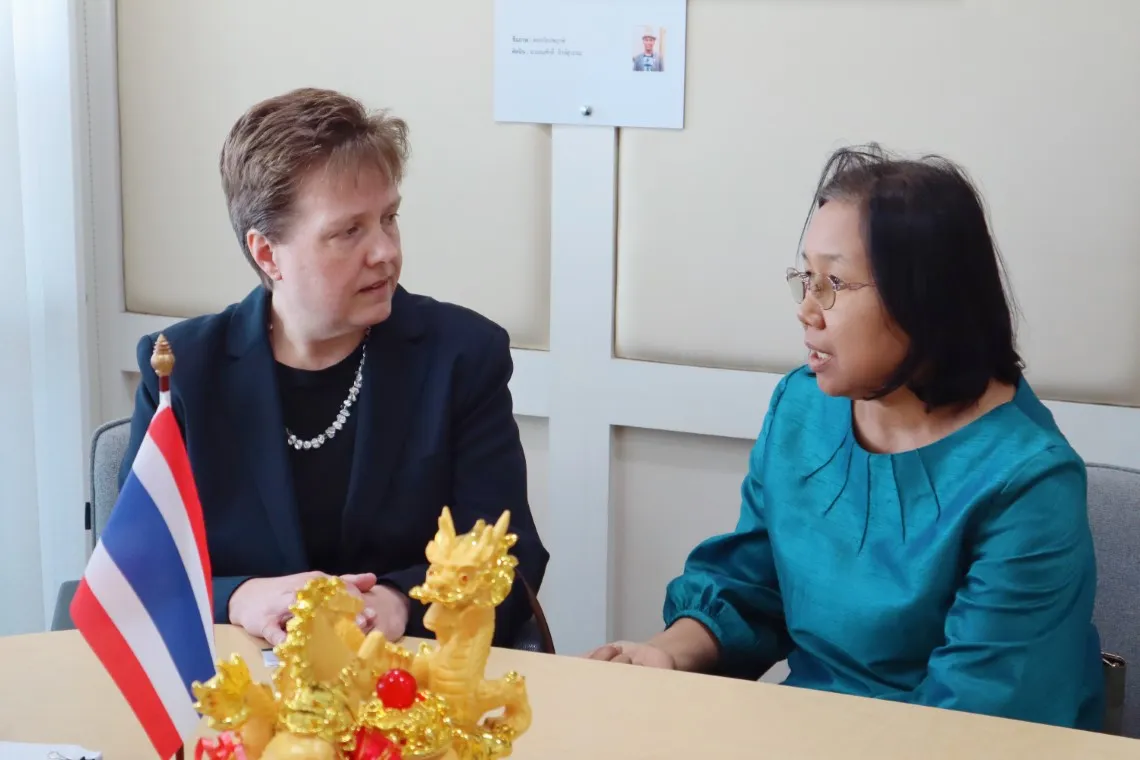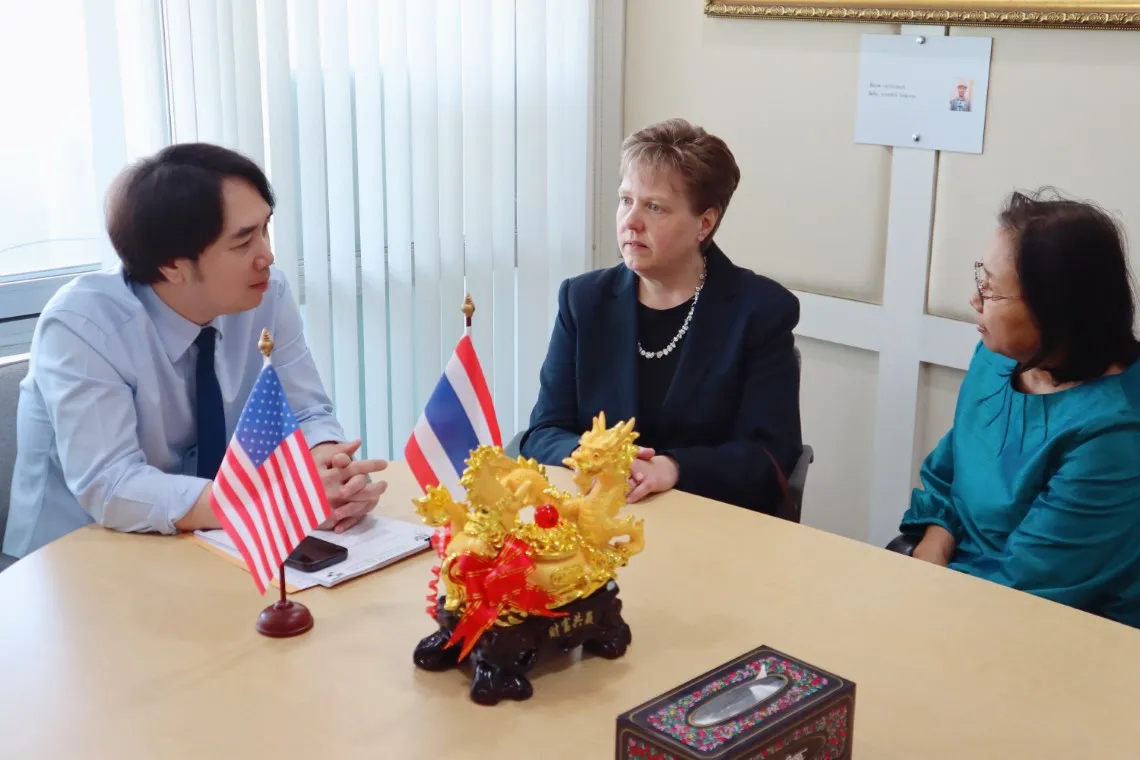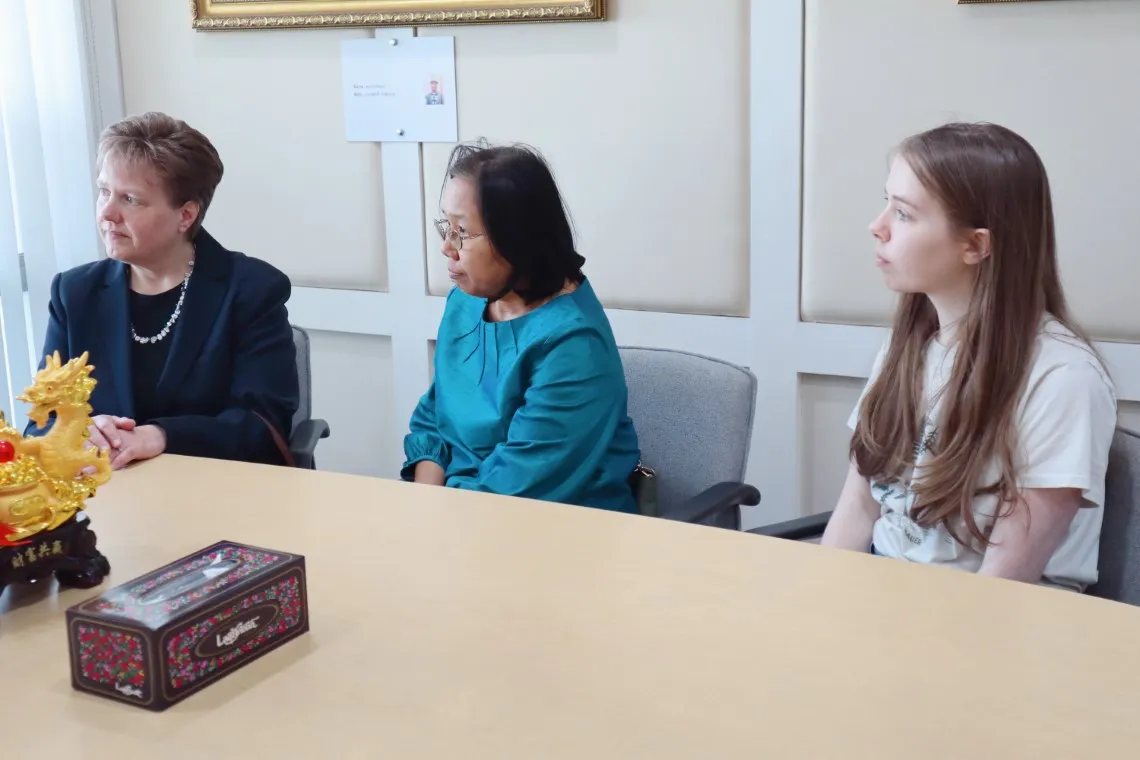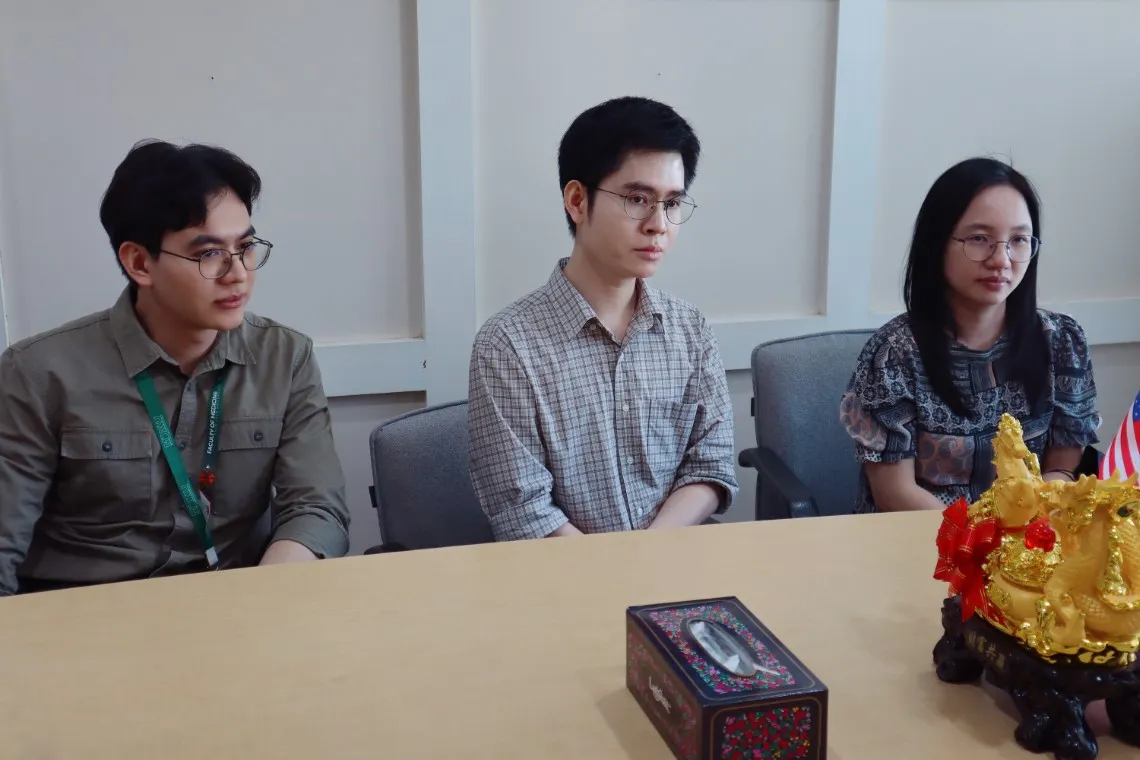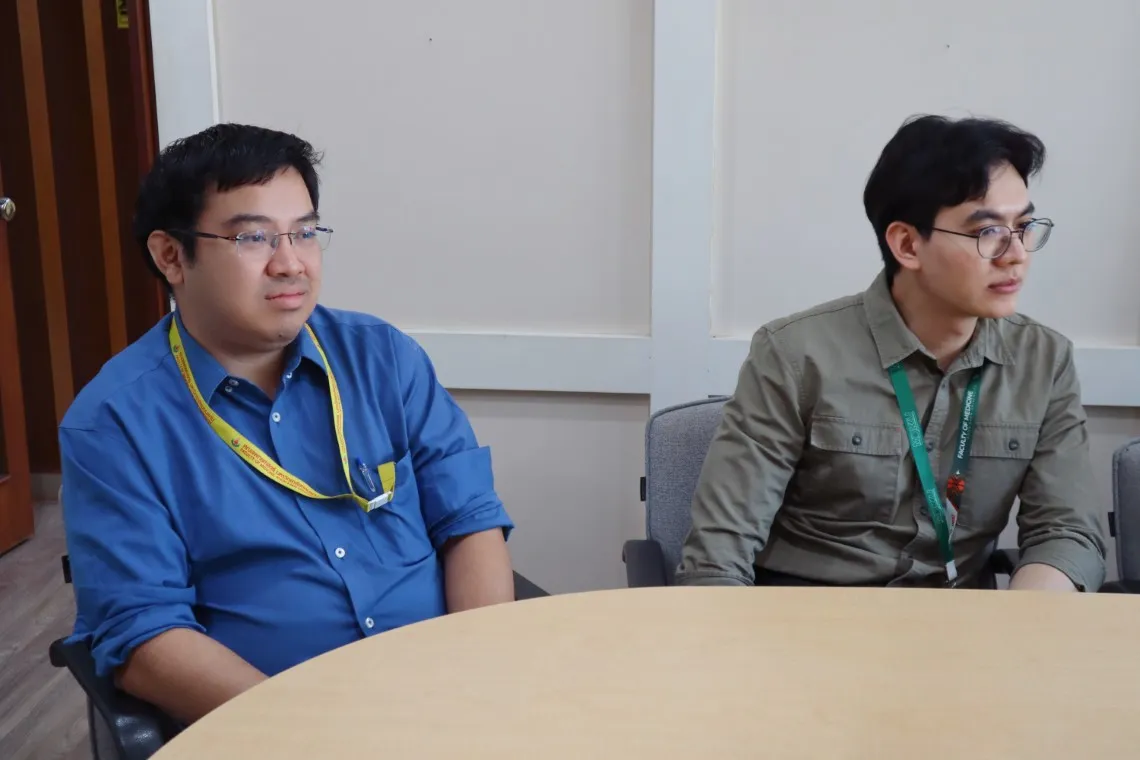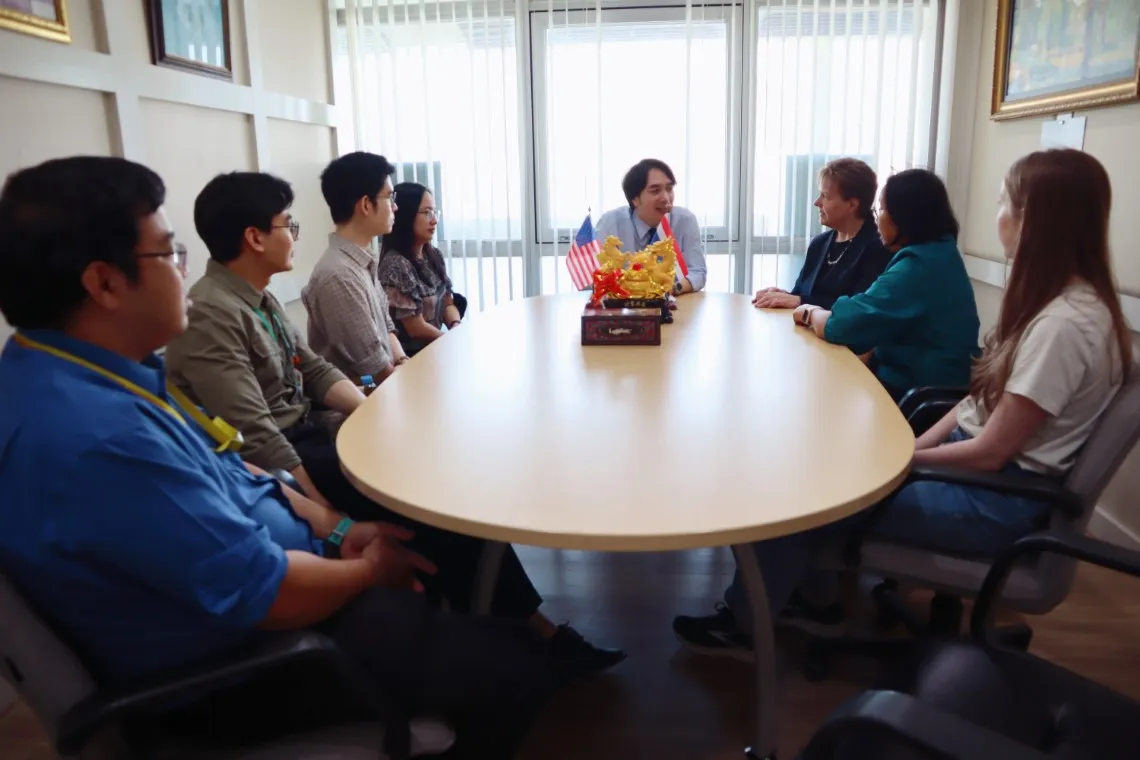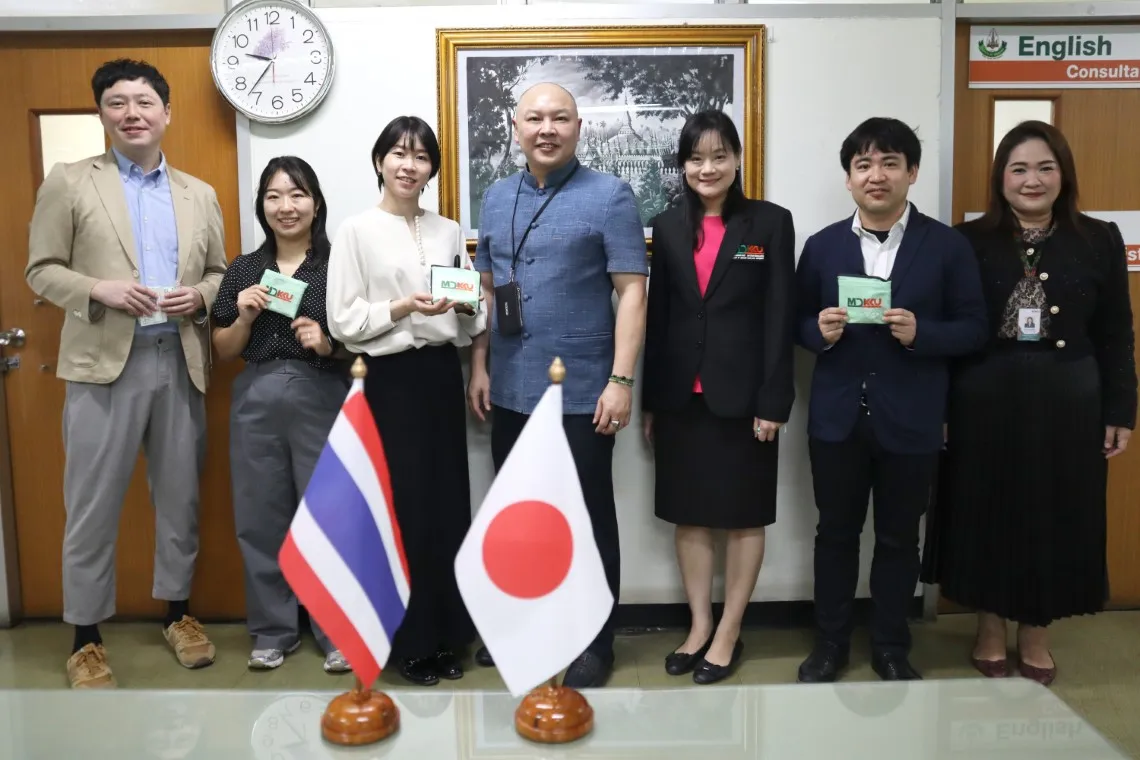
A team of Japanese healthcare professionals from Keio University Hospital—including nurses, a pharmacist, and a physiotherapist—recently completed an immersive study visit at Srinagarind Hospital and Queen Sirikit Heart Center, Faculty of Medicine, Khon Kaen University (KKU) from February 4–6, 2025. Their goal: to gain insights into Thailand’s healthcare system, exchange medical knowledge, and explore advanced patient care techniques.
“A Transformative Experience” – Learning Beyond Borders
This visit followed a November 2024 delegation to Keio University in Tokyo led by Associate Professor Dr. Thuss Sanguansak, Associate Dean for International Relations and Corporate Communications, and Associate Professor Dr. Warachaya Phanphruk, Assistant Dean for International Relations and Corporate Communications. The meeting resulted in an expanded medical personnel exchange program, strengthening academic and professional ties between the two institutions.
During their visit, the Japanese team had the opportunity to observe and engage with Thailand’s multidisciplinary medical teams, gaining firsthand exposure to innovative patient care strategies.
Japanese Nurses Gain Insights into Thai Nursing Practices
Miss Kasumi Yanagi and Miss Erika Onuma, nurses from Keio University Hospital, engaged in various clinical observations aligned with their request. Their study visit focused on nursing workflows, patient safety protocols, and team-based care practices within multiple hospital units.
- Kasumi Yanagi, with experience in breast surgery, obstetrics-gynecology, and neurosurgery, observed preoperative and postoperative nursing care, including patient monitoring, pain management, and coordination with the surgical team.
- Erika Onuma, specializing in gastroenterology, respiratory medicine, and high-dependency unit (HCU) care, focused on nursing roles in outpatient care and critical care management, studying nurse-led patient assessments and interprofessional collaboration.
In addition to their planned study areas, both nurses expressed a strong interest in learning more about palliative and end-of-life care in Thailand. The nursing team at Srinagarind Hospital arranged additional visits to observe palliative care units and discuss patient-centered approaches in managing terminal illnesses.
Japanese Pharmacist Applauds Thailand’s Cancer Medication Management
Mr. Yusuke Kasai, a clinical pharmacist specializing in oncology, praised Thailand’s patient-centered approach to pharmaceutical care.
“Thai hospital pharmacists are not just dispensing medication; they play a crucial role in monitoring side effects and optimizing treatment plans. This level of integration into patient care is impressive,” he noted after engaging with KKU’s pharmacy department.
His study focused on anticancer drug management, adverse effect monitoring, and Thailand’s pharmacovigilance system, offering valuable insights that could enhance Japan’s clinical pharmacy practices.
Physiotherapy in Thailand: A Model for Post-Stroke and Cardiac Rehab
Mr. Shogo Fukui, a physiotherapist specializing in cardiovascular rehabilitation, explored advanced rehabilitation techniques at both Srinagarind Hospital and the Queen Sirikit Heart Center.
“The role of physiotherapists in Thailand extends far beyond basic recovery exercises. The personalized rehabilitation programs I observed here significantly improve patients’ quality of life,” he said.
He engaged in case studies related to stroke rehabilitation and post-cardiac surgery recovery, taking home valuable strategies for enhancing Japan’s physiotherapy protocols.
Thailand-Japan Medical Collaboration Strengthens Global Healthcare
This exchange program, part of the KKU-Keio University partnership, is designed to develop medical professionals, foster knowledge-sharing, and enhance patient care innovations across both countries.
“Collaboration between Thailand and Japan enriches both nations’ healthcare systems. Through knowledge exchange, we can develop new treatment methodologies and strengthen our medical workforce,” said Associate Professor Dr. Thuss Sanguansak.
This visit marks just the beginning of a broader collaboration. Future plans include sending Thai medical students and professionals to Keio University, ensuring a continuous exchange of expertise and best practices.
Written by Miss Andi Nurul Fadillah, Student Intern (Chit Chat in KKU Workplace Program)
“พยาบาล-เภสัชกร-นักกายภาพญี่ปุ่น ชื่นชมการดูแลผู้ป่วยไทย” – ผลจากความร่วมมือ คณะแพทยศาสตร์ มข.-เคโอะ
ทีมบุคลากรทางการแพทย์จาก Keio University Hospital ประเทศญี่ปุ่น ประกอบด้วย พยาบาล เภสัชกร และนักกายภาพบำบัด เดินทางมาศึกษาดูงานที่ โรงพยาบาลศรีนครินทร์ คณะแพทยศาสตร์ มหาวิทยาลัยขอนแก่น ระหว่างวันที่ 4-6 กุมภาพันธ์ 2568 เพื่อเรียนรู้ระบบสาธารณสุขไทยและแลกเปลี่ยนองค์ความรู้ด้านการดูแลผู้ป่วย
“เป็นประสบการณ์ล้ำค่า” ทีมญี่ปุ่นเผย ได้เรียนรู้แนวทางใหม่ ๆ
การมาเยือนครั้งนี้เกิดขึ้น หลังจากที่ รองศาสตราจารย์ ดร.ธรรศ สงวนศักดิ์ รองคณบดีฝ่ายวิเทศสัมพันธ์และการสื่อสารองค์กร และ รองศาสตราจารย์ ดร.วรัชญา พันธุ์พฤกษ์ ผู้ช่วยคณบดีฝ่ายวิเทศสัมพันธ์ฯ เดินทางเยือน มหาวิทยาลัยเคโอะ กรุงโตเกียว เมื่อเดือนพฤศจิกายน 2567 ซึ่งนำไปสู่ข้อตกลงขยายโครงการแลกเปลี่ยนบุคลากรทางการแพทย์ระหว่างสองสถาบัน
ในโอกาสนี้ รองศาสตราจารย์ ดร.ธรรศ สงวนศักดิ์ และ รองศาสตราจารย์ ดร.วรัชญา พันธุ์พฤกษ์ ได้เข้าร่วมรับฟังผลการศึกษาดูงานจากผู้เข้าร่วมโครงการ ซึ่งสะท้อนถึงการพัฒนาความร่วมมือเชิงลึก และการถ่ายทอดองค์ความรู้ที่สามารถนำไปประยุกต์ใช้จริงในระบบสาธารณสุขของทั้งสองประเทศ
พยาบาลญี่ปุ่นศึกษากระบวนการทำงานของพยาบาลไทย
Miss Kasumi Yanagi และ Miss Erika Onuma พยาบาลจาก Keio University Hospital ได้เข้าศึกษากระบวนการทำงานของพยาบาลในหลายหน่วยงาน ตามหัวข้อที่พวกเธอสนใจ ได้แก่ การดูแลผู้ป่วยก่อนและหลังผ่าตัด การจัดการความเจ็บปวด และบทบาทของพยาบาลในการดูแลผู้ป่วยโรคเฉพาะทาง
Kasumi Yanagi มีประสบการณ์ด้านการพยาบาลใน แผนกศัลยกรรมเต้านม สูติ-นรีเวช และศัลยกรรมกระดูกและระบบประสาท เธอให้ความสนใจในการสร้างแผนการดูแลผู้ป่วยร่วมกับ ทีมแพทย์ พยาบาล และนักสังคมสงเคราะห์
Erika Onuma ทำงานใน แผนกผู้ป่วยนอกด้านโรคทางเดินอาหารและทางเดินหายใจ รวมถึงหอผู้ป่วยวิกฤต (HCU) โดยมุ่งเน้นศึกษาระบบ การจัดการพยาบาลและการดูแลผู้ป่วยแบบบูรณาการ
การศึกษาดูงานในครั้งนี้ช่วยให้พยาบาลญี่ปุ่นได้เห็นแนวทางการทำงานเป็นทีมของพยาบาลไทยที่มี การสื่อสารอย่างมีประสิทธิภาพกับทีมแพทย์และบุคลากรทางการแพทย์ ซึ่งเป็นแนวคิดที่พวกเธอจะนำไปพัฒนาการทำงานในญี่ปุ่น
นอกจากนี้ พวกเธอแสดงความสนใจใน การดูแลแบบประคับประคอง (Palliative Care) ทีมพยาบาลของโรงพยาบาลศรีนครินทร์จึงจัดโอกาสให้ได้เข้าเยี่ยมชมการดูแลผู้ป่วยระยะสุดท้าย และเรียนรู้การทำงานร่วมกันของทีมสหสาขาวิชาชีพ
เภสัชกรญี่ปุ่นยกนิ้วให้ระบบบริหารยาไทย
Mr. Yusuke Kasai เภสัชกรเฉพาะทางด้านมะเร็ง กล่าวว่า “ระบบเภสัชกรรมของไทยให้ความสำคัญกับการมีส่วนร่วมของเภสัชกรในทีมรักษาอย่างชัดเจน”
เขาได้เข้าร่วมดูงานที่ฝ่ายเภสัชกรรม โรงพยาบาลศรีนครินทร์ เพื่อศึกษาการจัดการ ยาต้านมะเร็ง และการทำงานร่วมกับแพทย์ผู้เชี่ยวชาญ โดยระบุว่า “เภสัชกรไทยไม่ได้ทำหน้าที่จ่ายยาเพียงอย่างเดียว แต่ยังเป็นส่วนหนึ่งของทีมแพทย์ในการติดตามผลข้างเคียงของยาและวางแผนการรักษาให้เหมาะสมที่สุด”
นักกายภาพบำบัดญี่ปุ่นศึกษาเทคนิคฟื้นฟูสมรรถภาพที่ทันสมัย
Mr. Shogo Fukui นักกายภาพบำบัดจาก Keio University Hospital ให้ความสนใจเป็นพิเศษกับการฟื้นฟูสมรรถภาพหัวใจและหลอดเลือด โดยกล่าวว่า “นักกายภาพบำบัดที่นี่มีบทบาทสำคัญในการช่วยให้ผู้ป่วยกลับมาใช้ชีวิตได้อย่างมีคุณภาพ”
เขาได้เยี่ยมชม แผนกเวชศาสตร์ฟื้นฟูของโรงพยาบาลศรีนครินทร์และศูนย์หัวใจสิริกิติ์ เพื่อศึกษาการฟื้นฟูสมรรถภาพหัวใจและระบบไหลเวียนโลหิต พร้อมแลกเปลี่ยนองค์ความรู้เกี่ยวกับ เทคนิคกายภาพบำบัดสำหรับผู้ป่วยโรคหัวใจและอัมพาต ซึ่งเป็นหัวข้อที่เขาสนใจนำไปพัฒนาต่อที่ญี่ปุ่น
ความร่วมมือไทย-ญี่ปุ่น ขยายโอกาสทางการแพทย์ระดับโลก
โครงการศึกษาดูงานครั้งนี้เป็นส่วนหนึ่งของ ความร่วมมือระหว่างคณะแพทยศาสตร์ มหาวิทยาลัยขอนแก่น และมหาวิทยาลัยเคโอะ ที่มุ่งเน้นการพัฒนาบุคลากรทางการแพทย์ และขยายโอกาสในการฝึกอบรมทั้งในไทยและญี่ปุ่น
รองศาสตราจารย์ ดร.ธรรศ สงวนศักดิ์ กล่าวถึงโครงการนี้ว่า “การแลกเปลี่ยนองค์ความรู้ระหว่างบุคลากรไทยและญี่ปุ่นช่วยเพิ่มพูนทักษะและแนวคิดใหม่ ๆ ให้กับทีมแพทย์ พยาบาล และเภสัชกรของทั้งสองประเทศ ซึ่งจะเป็นประโยชน์ต่อการพัฒนาระบบสาธารณสุขในระยะยาว”
โครงการนี้เป็นเพียงจุดเริ่มต้น ของการเชื่อมโยงองค์ความรู้ระหว่างประเทศไทยและญี่ปุ่น โดยคณะแพทยศาสตร์ มข. มีแผนจะส่งนักศึกษาและบุคลากรไปฝึกอบรมที่มหาวิทยาลัยเคโอะในอนาคต
เขียนโดย: นางสาวกชกร อ่อนจังหรีด นักศึกษาฝึกสหกิจศึกษา
“日本医疗专家高度评价泰国患者护理——加强 MDKKU 与 Keio 大学合作“
近日,来自Keio University Hospital的护理人员、药剂师和物理治疗师一行抵达泰国,赴Khon Kaen University(KKU) Faculty of Medicine 附属 Srinagarind Hospital 和 Queen Sirikit Heart Center进行交流访问。此次访问于2025年2月4日至6日进行,旨在深入了解泰国医疗体系,并与泰方医护团队就患者护理、药物管理及康复治疗等方面展开交流。
交流促提升,日本医疗团队高度评价泰国医疗体系
此次访问源于2024年11月,Associate Professor Dr. Thuss Sanguansak(国际关系与企业传播副院长)和 Associate Professor Dr. Warachaya Phanphruk(国际关系与企业传播助理院长)率领的代表团访问东京Keio University,双方达成深化医疗人员交流合作的协议,促进跨国医学知识共享。
日本护理专家:泰国的姑息治疗模式令人印象深刻
Miss Kasumi Yanagi 和 Miss Erika Onuma,两位来自 Keio University Hospital 的资深护理专家,对泰国的**姑息治疗(Palliative Care)和临终关怀(End-of-Life Care)**给予高度评价。
“泰国的姑息治疗不仅关注患者的身体状况,同时也重视患者及其家属的心理需求。这种全人护理理念令人钦佩,我们希望能深入学习并借鉴这一模式,“ Miss Erika 在 ICU 观察临终护理后表示。
Kasumi Yanagi 专注于乳腺外科、妇产科、骨科和神经外科护理,在泰期间,她深入学习了跨学科患者护理计划,与医生、护士及社会工作者共同优化护理方案。
Erika Onuma 主要负责 消化系统、呼吸系统护理以及高依赖病房(HCU)管理,她对泰国综合护理管理体系表现出浓厚兴趣。
两位护理专家均表示,泰国医院在团队协作和院内沟通方面表现出色,为提升医疗效率提供了宝贵经验。
日本药剂师:泰国的抗癌药物管理值得借鉴
Mr. Yusuke Kasai,一名专注于肿瘤治疗的临床药剂师,在泰国的药剂部门交流学习后,对其以患者为中心的药物管理体系给予高度认可。
“泰国的药剂师不仅负责配药,还深度参与到患者治疗过程中,包括监测副作用并优化治疗方案。这一模式值得我们学习,“ 他在考察 KKU 药剂管理体系后表示。
他的学习重点包括抗癌药物管理、副作用监测及药品安全,并计划将相关经验带回日本,推动本土药剂服务的优化。
日本物理治疗师:泰国康复治疗体系先进,为患者提供高质量生活
Mr. Shogo Fukui,一名专注于心血管康复治疗的物理治疗师,此次访问期间,他在Srinagarind Hospital 和 Queen Sirikit Heart Center 进行了深入学习。
“泰国的物理治疗不仅限于基本康复训练,而是以患者为核心,提供个性化的康复方案,帮助患者更快、更好地恢复正常生活,“ 他在学习中风康复及心脏术后恢复案例后表示。
泰日医疗合作推动全球医疗发展
本次交流项目作为 KKU 与 Keio University 战略合作的一部分,旨在推动两国医疗专业人才培养、共享最新医疗技术、优化患者护理模式。
“泰国与日本的医疗合作不仅为双方提供了宝贵的学习机会,也推动了全球医疗事业的发展。通过知识交流,我们可以共同探索新的治疗方法,提升医护人员的整体素质,“ Associate Professor Dr. Thuss Sanguansak 说道。
此次访问只是合作的第一步,未来,KKU 计划派遣更多泰国医护人员及医学生前往 Keio University 学习,进一步深化医疗交流。
写作:Miss Ratchanikon Thatuwisai 实习生
“Profesional Medis Jepang Puji Sistem Perawatan Pasien Thailand – Kolaborasi MDKKU dan Universitas Keio Semakin Erat”
Tim tenaga medis dari Keio University Hospital, Jepang, yang terdiri dari perawat, apoteker, dan fisioterapis, telah menyelesaikan kunjungan studi ke Rumah Sakit Srinagarind dan Queen Sirikit Heart Center, Fakultas Kedokteran, Universitas Khon Kaen (KKU), Thailand pada 4–6 Februari 2025. Kunjungan ini bertujuan untuk mempelajari sistem kesehatan Thailand, berbagi pengetahuan medis, serta mendalami teknik perawatan pasien yang inovatif.
Kolaborasi Lintas Negara: Jepang Pelajari Sistem Medis Thailand
Kunjungan ini merupakan tindak lanjut dari delegasi Universitas Khon Kaen ke Universitas Keio di Tokyo pada November 2024, yang dipimpin oleh Associate Professor Dr. Thuss Sanguansak, Dekan Bidang Hubungan Internasional dan Komunikasi Korporat, serta Associate Professor Dr. Warachaya Phanphruk, Asisten Dekan Bidang Hubungan Internasional dan Komunikasi Korporat.
Dalam pertemuan tersebut, kedua universitas sepakat untuk memperluas program pertukaran tenaga medis, guna memperkuat hubungan akademik dan profesional di bidang kedokteran.
Perawat Jepang Terpukau dengan Pendekatan Palliative Care di Thailand
Miss Kasumi Yanagi dan Miss Erika Onuma, perawat dari Keio University Hospital, mengungkapkan kekaguman mereka terhadap sistem perawatan paliatif (Palliative Care) dan perawatan akhir hayat (End-of-Life Care) di Thailand.
“Pendekatan di sini tidak hanya berfokus pada pengobatan fisik, tetapi juga mencakup dukungan emosional bagi pasien dan keluarganya. Filosofi perawatan holistik ini sangat menginspirasi, dan kami ingin mempelajarinya lebih dalam,” ujar Miss Erika, setelah mengamati perawatan pasien kritis di ICU.
Kasumi Yanagi, yang memiliki pengalaman dalam bedah payudara, obstetri-ginekologi, serta bedah saraf dan ortopedi, mempelajari perencanaan perawatan pasien berbasis tim multidisiplin, bekerja sama dengan dokter, perawat, dan pekerja sosial.
Erika Onuma, yang mengkhususkan diri di gastroenterologi, pulmonologi, dan unit perawatan intensif (HCU), meneliti sistem manajemen keperawatan terpadu di Thailand.
Mereka juga menyoroti kerja sama tim yang luar biasa di rumah sakit Thailand, yang dapat menjadi referensi bagi sistem keperawatan di Jepang.
Apoteker Jepang Apresiasi Manajemen Obat Kanker di Thailand
Mr. Yusuke Kasai, seorang apoteker klinis spesialis onkologi, memuji pendekatan berbasis pasien dalam farmasi klinis Thailand.
“Apoteker di rumah sakit Thailand tidak hanya bertugas mendistribusikan obat, tetapi juga memainkan peran aktif dalam pemantauan efek samping dan perencanaan terapi yang lebih optimal. Ini adalah model yang patut kami contoh,” ujarnya setelah mengunjungi Departemen Farmasi di KKU.
Ia secara khusus meneliti pengelolaan obat kanker, pemantauan efek samping, serta sistem farmakovigilans di Thailand, yang dapat memberikan wawasan untuk pengembangan farmasi klinis di Jepang.
Terapis Fisik Jepang Pelajari Teknik Rehabilitasi Jantung dan Stroke di Thailand
Mr. Shogo Fukui, seorang fisioterapis spesialis rehabilitasi kardiovaskular, mendalami teknik rehabilitasi di Rumah Sakit Srinagarind dan Queen Sirikit Heart Center.
“Di Thailand, peran fisioterapis tidak terbatas pada latihan pemulihan dasar, tetapi mereka juga merancang program rehabilitasi yang dipersonalisasi untuk meningkatkan kualitas hidup pasien,” ungkapnya.
Ia juga mempelajari kasus rehabilitasi pasca-stroke dan pemulihan pasca-bedah jantung, dengan harapan dapat mengadaptasi strategi yang efektif ini ke dalam praktik fisioterapi di Jepang.
Kolaborasi Medis Thailand-Jepang untuk Masa Depan Kesehatan Global
Program pertukaran ini merupakan bagian dari kemitraan antara KKU dan Universitas Keio, yang bertujuan untuk mengembangkan tenaga medis, berbagi teknologi terbaru, serta meningkatkan inovasi dalam perawatan pasien.
“Kolaborasi antara Thailand dan Jepang tidak hanya menciptakan peluang pembelajaran yang berharga, tetapi juga mendorong kemajuan global dalam dunia medis. Melalui pertukaran pengetahuan, kita dapat mengeksplorasi metode pengobatan baru serta meningkatkan kualitas layanan kesehatan,” ujar Associate Professor Dr. Thuss Sanguansak.
Kunjungan ini baru merupakan awal dari kerja sama yang lebih luas. KKU berencana mengirim mahasiswa kedokteran dan tenaga medis Thailand ke Universitas Keio, mempererat hubungan akademik antara kedua negara.
Ditulis oleh Miss Andi Nurul Fadillah, Student Intern (Chit Chat in KKU Workplace Program)

